




Boost engagement, raise morale, and elevate the overall employee experience with a performance management process that speaks to your unique culture and people.
Learn more:
As CFO, Susan Pikitch helped shepherd the USGA through an intensely complicated period so the nonprofit could support one of the few sports that was safe to play during the pandemic. Pikitch spoke with Profile about USGA’s ability to pull together in a crisis and about how providing sound numbers as a finance leader isn’t enough.
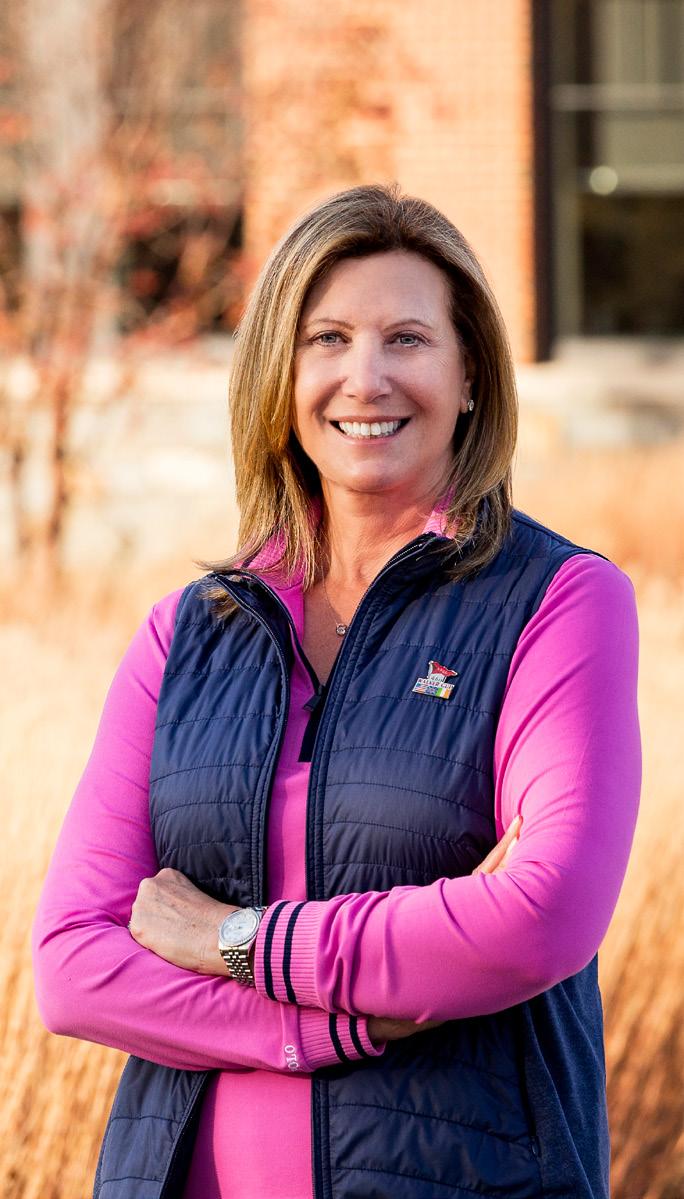
P70
With a twenty-six-year tenure at Dominion Energy Virginia, Ed Baine is helping lead the largest offshore wind project in the US
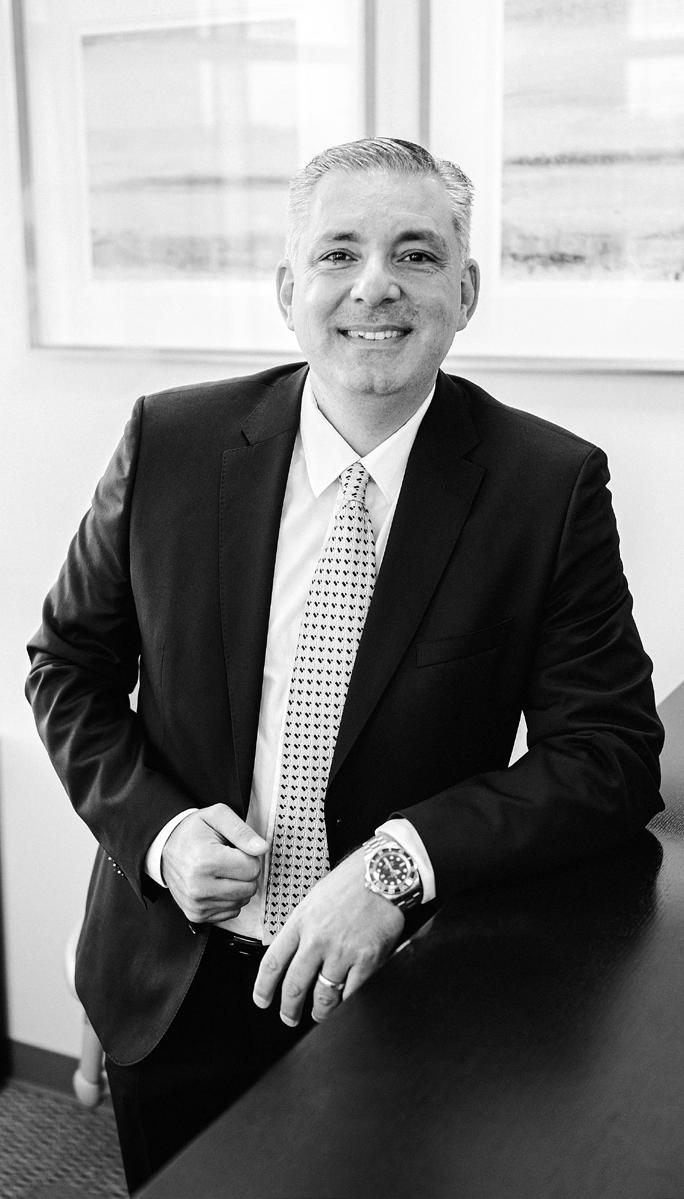
P16
As CIO and chief digital officer at data company Snowflake, Sunny Bedi ensures the organization has no equal
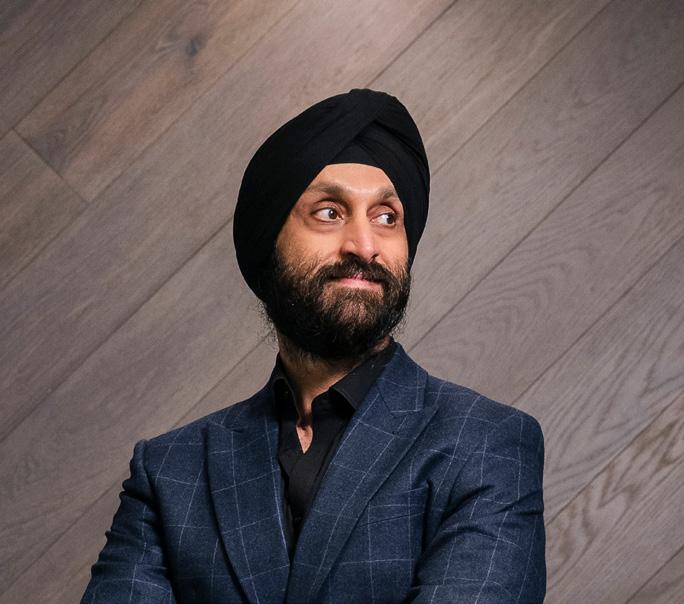
P28
Brian Keys leverages technology to help the baseball team come out strong as the league enters the modern era
P42
Denise Novey builds a world-class tax function and accounting strategies to breathe life into the Tupperware brand
P59
Pablo Brizi found a perfect match in Hilton Grand Vacations, a company committed to fostering a culture of acceptance
P118
Michelle Labbe brings a new meaning to “people” and “talent” to support one of the largest, completely remote, global freelance networks at Toptal
P125
Editor’s Letter P6
Focus P7
Index P145
Christina Khosravi supported the Los Angeles Lakers during a pandemic and championship run with a focus on business analytics and strategy
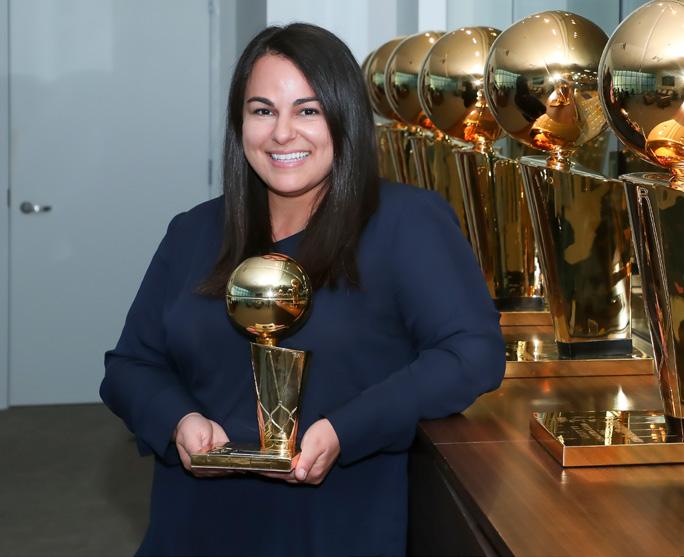
P46
Jacqueline De Souza never stops looking for ways to improve operations, whether it’s fraud prevention, process digitalization, or employee development
P136
Stephanie Lepori uses her knowledge as chief accounting officer to lead Caesars
Entertainment during a time of change
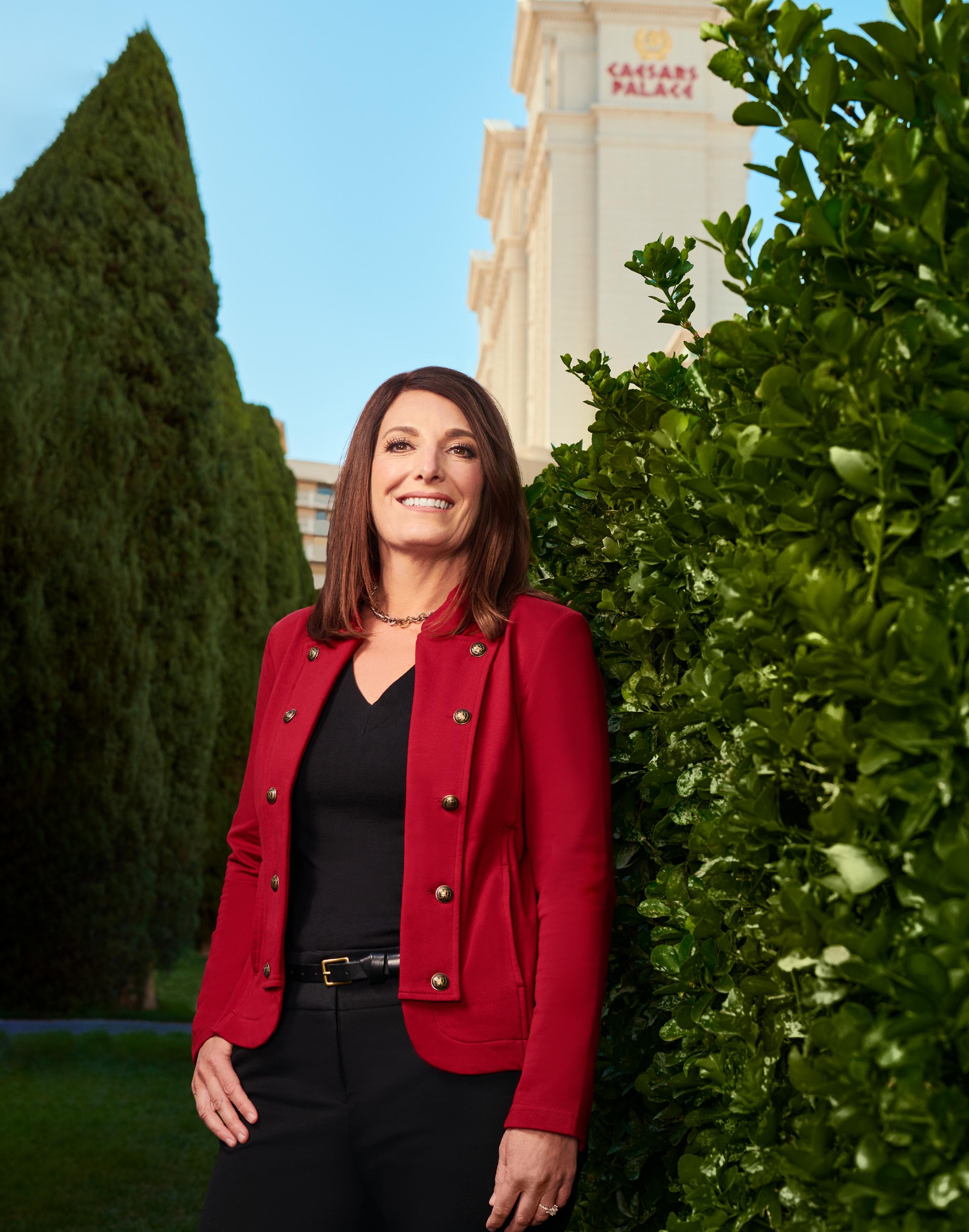
CREATIVE
VP, Creative Production
Kevin Warwick
Managing Editor
Frannie Sprouls
Editors
Melaina K. de la Cruz
Sara Deeter
KC Esper
Julia Thiel
Hana Yoo
Staff Writers
Zach Baliva
Billy Yost
Contributing Writers
Pamela Bloom
Lucy Cavanagh
Peter Fabris
Will Grant
Taylor Karg
Russ Klettke
Natalie Kochanov
Keith Loria
Maggie Lynch
Abigail Sutter
Designer
Anastasia Andronachi
Senior Photo Editor/Staff
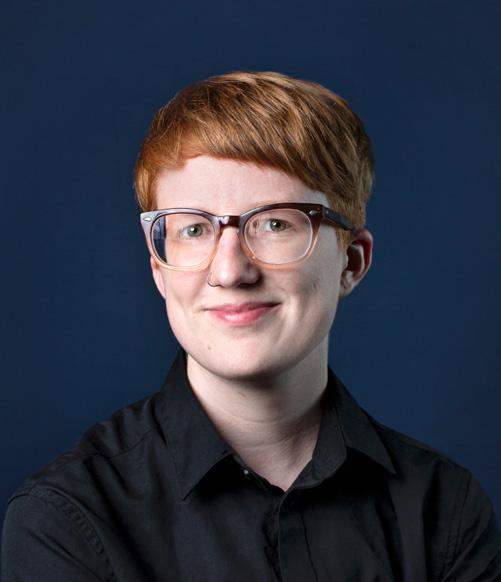
Photographer
Sheila B. Sarmiento
Photo Editor/Staff
Photographer
Cass Davis
Social Media Manager
Ashley Rupprecht
Profile® is a registered trademark of Guerrero, LLC.

© 2022 Guerrero, LLC
guerreromedia.com
1500 W. Carroll Ave. 2nd Floor Chicago, IL 60607
Subscriptions + Reprints
For a free subscription, please visit profilemagazine.com/ subscribe. Printed in China. Reprinting of articles is prohibited without permission of Guerrero, LLC. For reprint information, contact Reprints & Circulation Director Stacy Kraft at stacy@guerreromedia.com.
CEO & Publisher
Pedro A. Guerrero
Chief of Staff
Jaclyn Gaughan
President, Group Publisher
Kyle Evangelista
VP, Hispanic Division
Head of Audience & Engagement
Vianni Lubus
VP, Finance
David Martinez
VP, Sales
Ben Julia
Senior Director, Client Operations
Cheyenne Eiswald
Senior Client Services Manager
Rebekah Pappas
Client Services Manager
Brooke Rigert
Director, Client Services–
Corporate Partnerships
Taylor Frank
Director, Talent Acquisition & Engagement
Haylee Himel
Director, Talent Acquisition
Heather Steger
Senior Director, Corporate Partnerships & DEI Solutions
Krista Horbenko
Director, Events
Jill Ortiz
Communications Manager
Cristina Merrill
Director, Sales
Kelly Stapleton
Director, Sales Training & Development
Alexa Johnson
Director, Sales Onboarding
Justin Davidson
Content & Advertising Managers
Allyssa Bujdoso
Rebekah Crone
Samantha Eberly
Brandon Havrilka
Annie Peterson
Zak Shelton
Hannah Tanchon
Drew Thomas
Ashley Watkins
Facebook: @profilemagazineofficial
LinkedIn: @Profile-Mag
Twitter: @Profile_ExecMag
Instagram: @profilemagazineofficial
Math was never my favorite subject. I lost interest during grade school, and my focus drifted to English and history. I didn’t go above and beyond to reach calculus in high school, opting instead to continue taking German through senior year.
In college, the math course I chose was specifically created for journalism majors with a focus on scenarios that would come up during reporting. And my copy of Math Tools for Journalists is tucked in with my various editing-related books, the page about calculating percentage change tabbed with a yellow Post-It.
When I first started on Profile, I assumed that the finance function focused only on numbers—budgets, taxes, cash flow, etc. But the past couple years, I’ve seen the conversation evolve into how finance leaders should go beyond the numbers and help shape business strategies.
Our Guest Editor Susan Pikitch, CFO at the United States Golf Association, notes that early in her career, the finance function was viewed as command and control. Now, she says she wants to be thought of the “CFGo” and be more than just a “numbers reporter.”
“It’s about helping the business understand why they should care by providing insights into the data,” she explains. “Put yourself in the shoes of the people you’re trying to help. How do I help you achieve your goal?”
Pikitch leads an impressive lineup of finance executives—with titles including CFO, chief accounting officer, and chief investment officer—who are shaping the future of the finance function. Cover star Stephanie Lepori, chief administrative and accounting officer at Caesars Entertainment, leans into technology innovation to improve not only team member experience but also customer experience.
The Hershey Company’s Jennifer McCalman takes a process improvement approach to her role as chief accounting officer. University of Miami’s Charmel Maynard, RingCentral’s Vaibhav Agarwal, and Shift4’s Gail Miller create development opportunities for their team members and seek to diversify the finance leadership pipeline. And David Stephenson shares how he took a long-term perspective on guiding Airbnb through the COVID-19 pandemic.
Finance is not just about reporting the numbers. It’s about how finance leaders can secure their seat at the table, interpret the meaning behind the data, and guide business strategy.
FrannieSprouls Managing Editor Gillian Fry
FOCUS FOCUS FOCUS FOCUS FOCUS FOCUS
FOCUS FOCUS FOCUS FOCUS FOCUS FOCUS
FOCUS FOCUS FOCUS FOCUS FOCUS FOCUS
FOCUS FOCUS FOCUS FOCUS FOCUS FOCUS
FOCUS FOCUS FOCUS FOCUS FOCUS FOCUS
FOCUS FOCUS FOCUS FOCUS FOCUS FOCUS
FOCUS FOCUS FOCUS FOCUS FOCUS FOCUS
FOCUS FOCUS FOCUS FOCUS FOCUS FOCUS
HR in FINANCE FOCUS: HR IN FINANCE
FOCUS FOCUS FOCUS FOCUS FOCUS FOCUS
Stacy Klevay Newton, Oportun Inc. P8 Jim Minogue, Mizuho Americas P12
FOCUS FOCUS FOCUS FOCUS FOCUS FOCUS
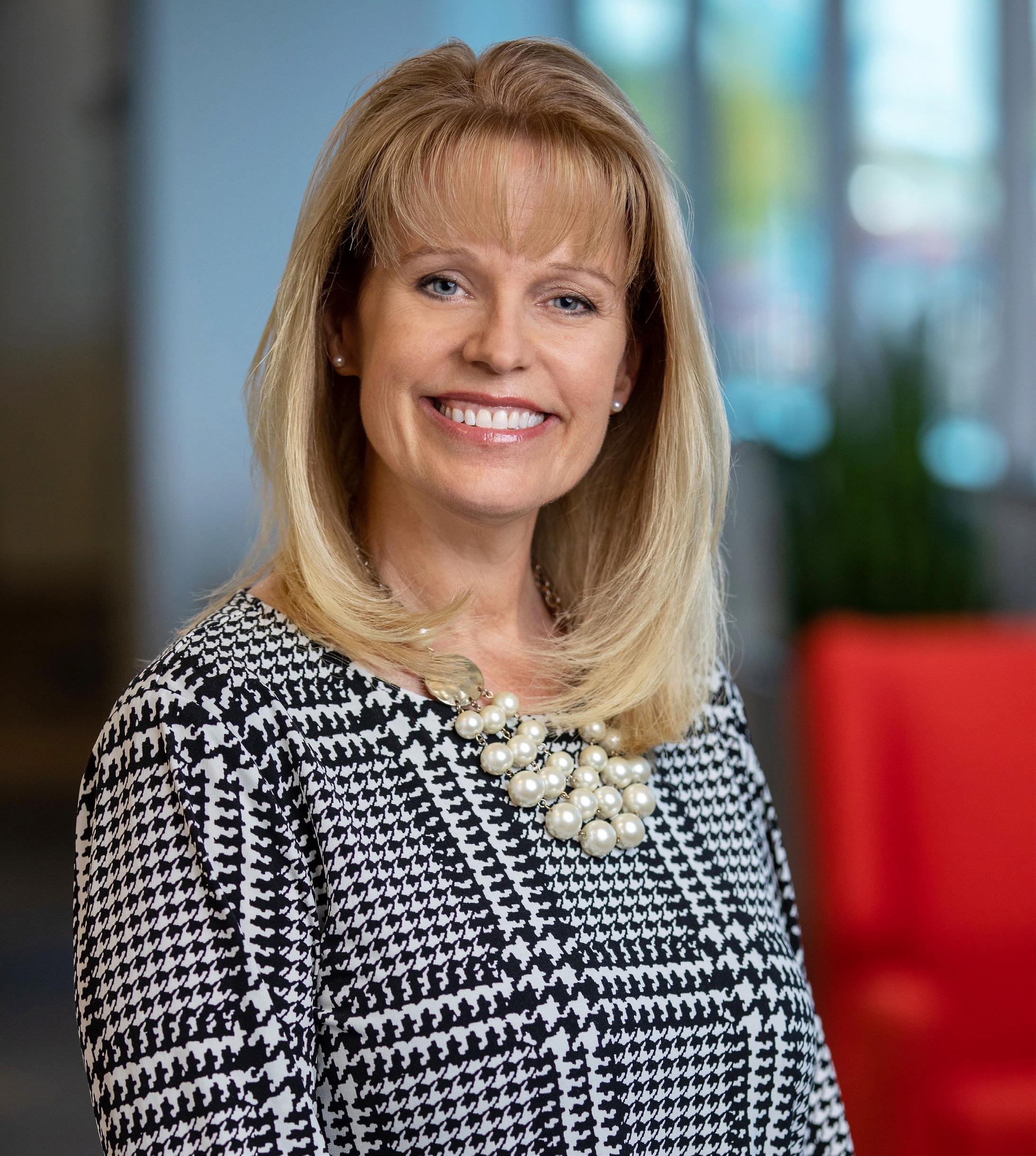 Stacy Klevay Newton Chief People Officer Oportun
Stacy Klevay Newton Chief People Officer Oportun
Oportun’s mission is to provide hardworking people with affordable capital and integrate them into the financial mainstream, all the while helping them establish a credit history. This is also a personal goal for Chief People Officer Stacy Klevay Newton.
When Klevay Newton was twenty-seven years old, she was a newly divorced single mother who was $27,000 in debt and making $27,000 a year. “I literally could not make ends meet,” she remembers. “We had macaroni and cheese with hot dogs many nights because it was the cheapest option.”
Klevay Newton pawned her grandmother’s earrings to afford the new tires she needed to make it to a job interview. She also estimates that she spent thousands of dollars renting furniture for what was probably a $400 couch.
These stories aren’t rare. But Klevay Newton’s firsthand experience with the hardship of those who are working to extricate themselves from difficult situations provides a compelling lens as a leader at Oportun.
Since arriving just a few years ago, Klevay Newton has helped foster a feeling of community and family in an organization that was already excelling at it. During the COVID-19
pandemic, Klevay Newton has also helped completely reshape Oportun’s in-person protocols and ushered in a new, permanent era of remote work while finding ways to keep employees connected to one another and the company’s mission of service.
NO PERSONA REQUIRED
When it comes to establishing a familial rapport with her team, Klevay Newton says the work of trying to maintain two different personas just doesn’t make sense for anyone.
“I don’t separate between my family at work and my family at home,” she explains. “My father and his brother built a metal manufacturing organization, and I grew up feeling like every person there was a member of my own family. I love and value the great people I work with at Oportun and those within my home. I think that integration is one solution to a lot of what we are all struggling with right now.”
More concretely, Klevay Newton says she doesn’t have to shed one persona when she ends her workday. It allows her to bring her most authentic and present self to work, and she wants everyone at Oportun to feel the same.
Klevay Newton has helped promote those efforts by serving as an executive sponsor of Oportun’s Women’s Initiative Network as well
“All of the wonderful things that I knew were true about this company were really brought to life [in 2020].”
Stacy Klevay Newton
as its True Colors Pride Network. “Both of those groups are just roaring along,” she says, “and it’s so exciting to be connecting with people through these groups and the fantastic events they put on.”
She has also noticed something about everyone she works with: if your mission and values don’t align with the organization, Oportun probably isn’t the place for you. “You just can’t survive here because it becomes obvious so quickly,” Klevay Newton explains. “That alignment with mission is such an authentic part of our culture that the very few people who have come through here who didn’t have it didn’t last long.”
The COVID-19 pandemic has undoubtedly been one of the more challenging periods in Klevay Newton’s tenure, but she says it’s also a career highlight. “All of the wonderful things that I knew were true about this company were really brought to life during that period of time,” Klevay Newton explains.
She recalls nine consecutive months of morning calls where the entire focus was on caring for Oportun’s people and strategizing innovative ways to support them during such a difficult period. Programs to address mental, emotional, and financial wellness were created
along with mindfulness seminars, health webinars, and other resources.
To maintain a feeling of comradery as Oportun sent its workforce home, Oportun hosted “Oportun’s Got Talent,” a chance for employees to show off their skills, such as singing, art, or even world-class weightlifting. “The day before Christmas, we were sent a video from all five of the finalists who had gotten together to record a song wishing peace and joy to everyone,” Klevay Newton says. “It was so amazing for these people to get together on their own to do this for us, and it really speaks to the spirit of what remote work can be.”
Oportun has taken lessons from the pandemic that will truly reshape the nature of work for its people. They will continue to be a remote-first organization, which Klevay Newton believes will provide a true strategic advantage for the company.
“The feedback we’ve received is that people really have no interest in looking to be in an office to do their base work,” Klevay Newton says. “Instead, they want more opportunities to connect and collaborate with other people. That’s the missing link that we’ll continue to work to solve for in this environment. We’ll continue to find those connection points over and over again.”
As a proud graduate of the Ohio State University, Stacy Klevay Newton quotes the great Woody Hayes: “You can never pay back, so you should always try to pay forward.”
Klevay Newton currently mentors seven people within Oportun. “Raul Vazquez, our CEO, has invested in me. Our previous chief people officer invested in me. There’s just a continual sense of help and service here, and I want to provide that same opportunity to everyone that I can,” she explains.
She also spends a great deal of time volunteering on behalf of her church and in her community. She currently serves on the interim-pastor search committee, the finance committee, and participates in the church’s Community Coalition for Haiti. She has also done volunteer work with Big Brothers, Big Sisters; United Way; and the Virginia Zoo.
“I don’t separate between my family at work and my family at home. . . . I think that is one solution to a lot of what everyone is feeling right now.”
“To achieve long-term success [from an HR perspective], you have to be able to have an environment, where yes, you’re producing results, but in a way that’s flexible and fair and concerned about the welfare of your people,” remarks Jim Minogue, chief human resources officer at Mizuho Americas on his management of his team during the COVID-19 pandemic. “The
last eighteen months have really been an example of what we can accomplish when we put our minds to it.”
Minogue recalls, “I was at the job two months when we were all sent home. Thankfully, my experience with the transition and my ability to be flexible helped the firm that I’d just gotten to know transition to this period.”
He explains that his background in HR, which spans a broad spectrum of roles and
Jim Minogue on the effective practices that have enabled company development during the COVID-19 pandemicindustries, contributes to his ability to be flexible. “I’ve had global roles, regional roles, and functional roles. My HR knowledge is pretty extensive,” he says.
“I went through two phases of my career,” Minogue adds. “The first was very technically oriented—I ran comp, recruiting, training. I have a deep knowledge in the disciplines of HR. The second phase of my career was really talent management and the more advanced side of
human resources, such as succession planning and organizational development.”
Some of his experience extends beyond his time in HR. “When you’ve been around long enough, you’ve been through many different world events and national events,” he says. One of the ways that he has led companies through these massive transitions is by relying on his ability to pivot and remain flexible and strong in the face of major events.
For example, Minogue was the HR global head at Brown Brothers Harriman when September 11 happened. “Our ability to keep our people safe and secure during those periods of time— being able to conduct business and making sure our environment was safe—was very critical,” he emphasizes.
Minogue describes managing Mizuho’s transition during the COVID-19 pandemic as “an incredible undertaking,” but he credits the
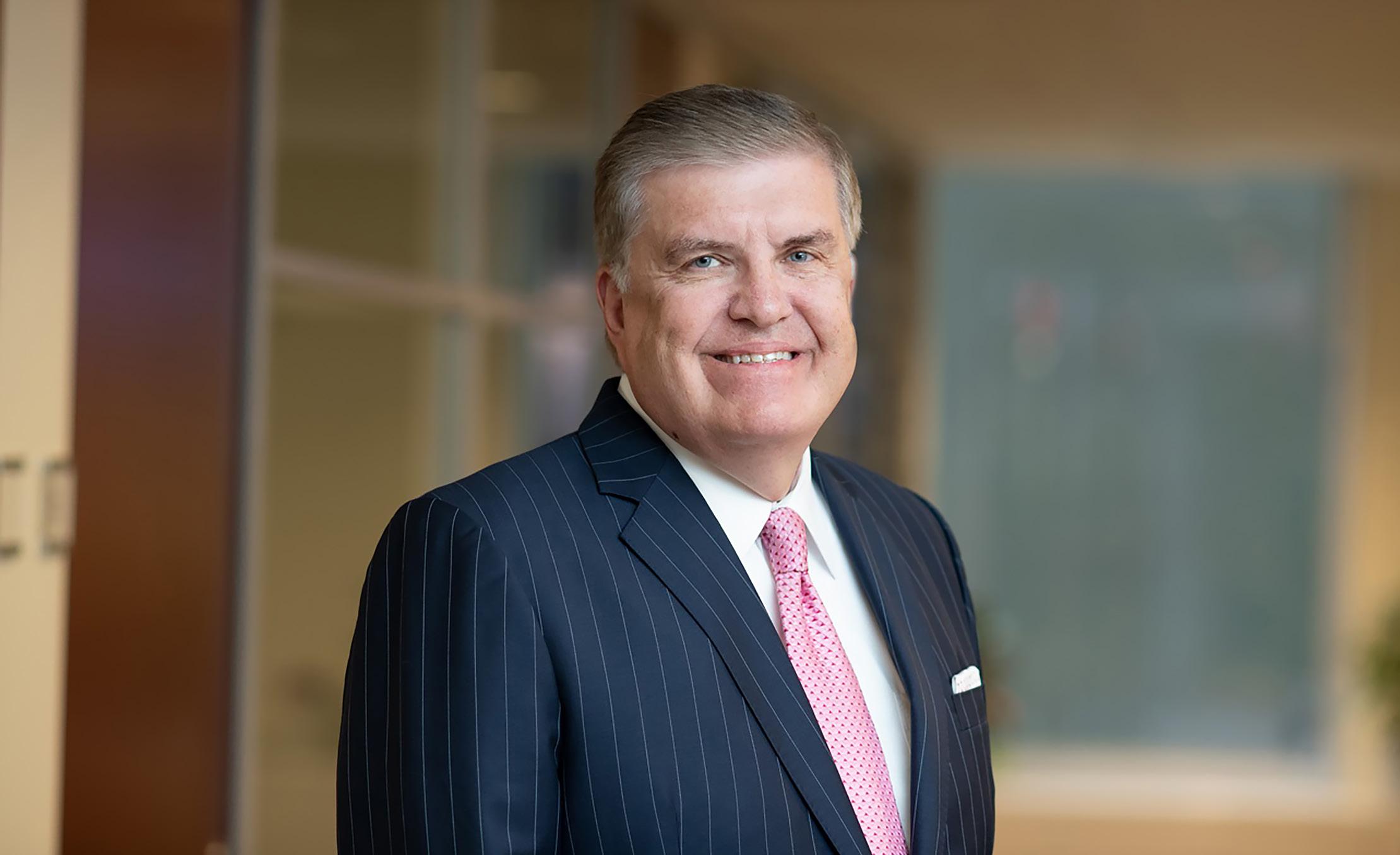 Jim Minogue CHRO Mizuho Americas
Jim Minogue CHRO Mizuho Americas
company’s commitment to flexibility to make the adjustment from senior management, frequent communication, tested processes, and programming as a team to make the adjustment. His contribution as a leader was done by taking the “extra steps.” He adds that being a successful leader during a time of this type of transition demands “positively taking steps to show people that you care.”
Taking these steps requires credibility that you gain through experience and going the extra mile to ensure that people can rely on you as a leader. “Credibility is important when it comes to being courageous,” Minogue says. “You have to lead in a positive and forward-looking way. Have the courage to advocate a solution for an organization, which a lot of times the organization may not know it needs. But if you have the credibility and courage to present that solution, that’s so much more effective than if you just throw out those ideas.”
To create these solutions, especially during transitionary times, he says that he wakes up with the thought process of, “What can I do today that will make the environment better for people in HR and the firm as a whole?”
For Minogue, one way to improve the organization is by bringing forward diversity, equity, and inclusion (DEI) initiatives. “I’ve been a big, big champion of diversity and inclusion for
a long, long time, probably before they called it diversity and inclusion,” he says. “What [Mizuho] is trying to do, is build a diversity and inclusion initiative from two perspectives. One is from a strategic perspective, and one is a strategic form of grassroots.”
To support Mizuho’s DEI efforts, Minogue and his team have reorganized the company’s employee resource groups. He has also presented both diversity and career development strategies. However, the grassroots initiative is one that Minogue says is “unique.” He says, “We’re holding diversity dialogues to really increase sensitivity to what our colleagues of color are going through in dayto-day situations.”
Minogue states that the diversity dialogues have been very impactful. “When a colleague gets up and tells a very personal story—that has a much different impact on you than reading it in the paper. Believe me, it does.”
These types of initiatives also help establish the company’s set of values, which is a primary tenet of leading a company from an HR perspective. “If you understand those [values], then that gets you well on the way to getting you to achieve. I’m really reflecting on the last eighteen months, which have really highlighted what can be done and what can’t be done in the direst of circumstances.”
“Have the courage to advocate a solution for an organization. . . . If you have the credibility and courage to present that solution, that’s so much more effective than if you just throw out those ideas.”
Jim Minogue
What is a company without those who lead it? Executives provide their blueprint for cultivating a successful career.
Ed Baine, Dominion Energy Virginia P16 Fred Schacknies, TechnipFMC P22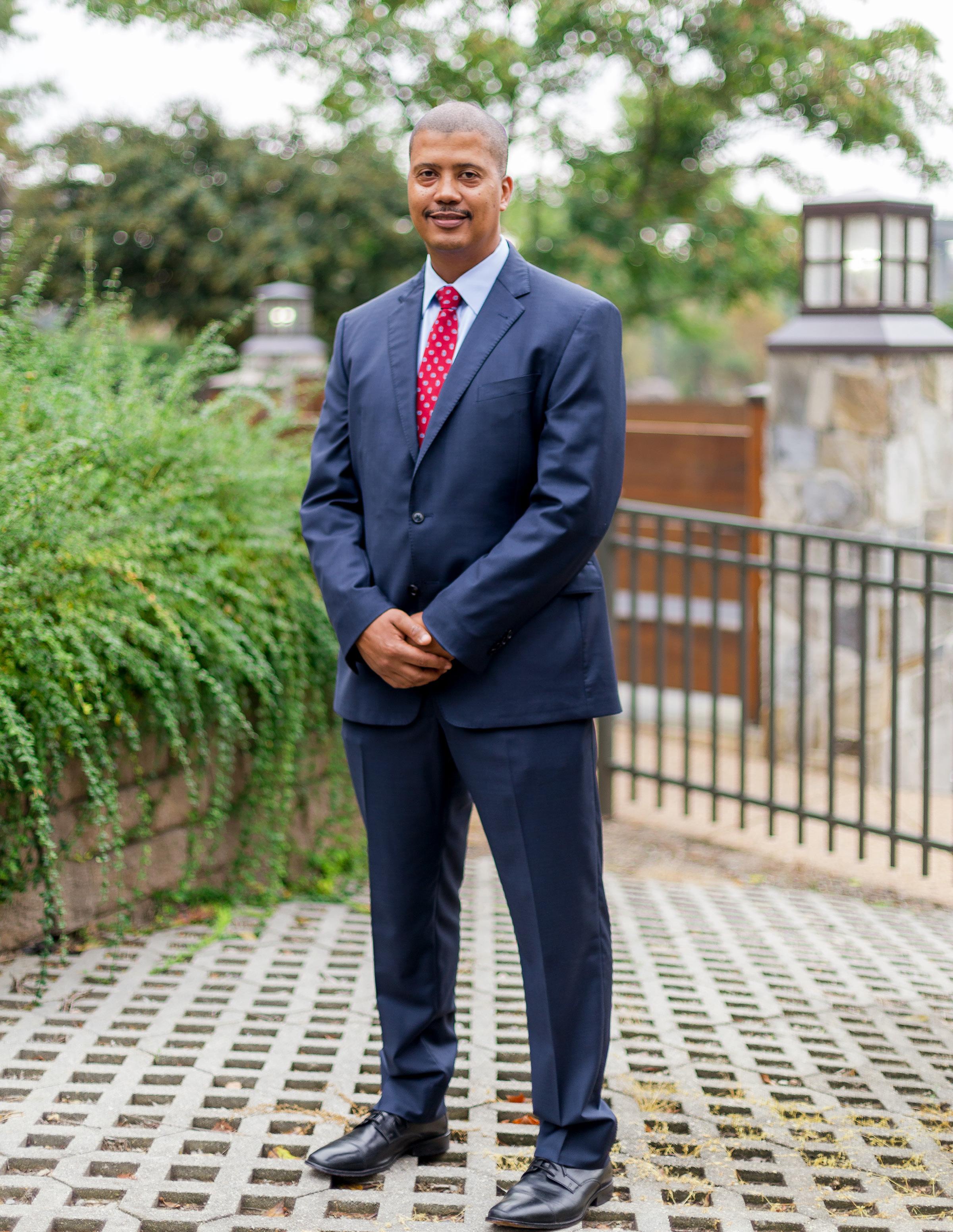 Ed Baine President Dominion Energy Virginia
Ed Baine President Dominion Energy Virginia
Ed Baine has seen Dominion Energy Virginia transform throughout his twenty-six years at the company. Now, he’s leading its clean energy transformation and grid modernization efforts.
By BILLY YOSTEd Baine, president of Dominion Energy Virginia, is currently overseeing the company’s critical effort to provide customers with safe, reliable, affordable, and clean energy. The company is developing the largest offshore wind project in the United States, growing its solar and energy storage portfolio, pursuing license extensions of four nuclear units, and enhancing the energy grid to not only be more resilient and reliable but also provide better service.
The transformational period at the Richmond, Virginia-based company is in many ways reflective of the journey of its president. Baine has risen through many positions over the past twenty-six years, continuing to accrue new responsibilities before ultimately finding himself at the helm of the company’s largest segment.
It’s a long way to climb from the Lunenburg County tobacco farm on which Baine was raised, a farm that had originally been part of a 2,000-acre plantation. Twohundred acres were eventually purchased by his grandfather and siblings and turned into a family business.
“What I learned very early was that no one can be successful alone,” Baine remembers. “We were in a place where no one had much, so people had to help each other. To
this day, our family lives by the Bible verse [Luke 12:48] ‘To whom much is given, much will be required.’”
One of the highlights of Baine’s leadership during Dominion Energy Virginia is the Coastal Virginia Offshore Wind (CVOW) project, which is located twenty-seven miles off the coast of Virginia Beach. The Project Construction Group expects to complete CVOW in 2026.
The clean, sustainable energy of the 180 projected turbines will power up to 660,000 homes, annually bypassing as much as 5 million tons of carbon dioxide.
In conjunction with solar projects, the complementary resources will line up with wind and solar energy production peaking
at different times of the day and during the year.
Dominion Energy is also growing its energy storage efforts and working to make sure the four nuclear units in Virginia continue to provide zero-carbon energy. Work is underway to enhance the energy grid to meet customer needs.


“It’s an exciting time to be in our industry, within the Commonwealth of Virginia in particular,” Baine says. “We always talk about being better tomorrow than we are today, and since there have been more changes in the industry in the past five years than probably the previous twenty, there is never a shortage of ideas and projects to think about how we can constantly improve the customer experience and our operations.”
When Baine speaks of changes at Dominion Energy, the scale is immense. In September 2021, the company acquired the 20-megawatt Dry Bridge Energy Storage project in Chesterfield County. It is expected to go live in 2022 and will be capable of powering five thousand homes at peak usage.
It’s just one of eleven recently proposed new solar and energy storage projects, and if approved by state regulators, the entire rollout would produce more than 1,000 megawatts of solar power and energy storage.
“Ed’s broad experience and collaborative leadership style will be instrumental in
“I’ve learned to trust those who have seen something in me.”
ED BAINE
Pike is the leading, integrated provider of construction, repair and engineering services for distribution and transmission powerlines and substations, with a growing portfolio of turnkey and renewable projects. In addition, we offer storm restoration and gas distribution services. We work with investor-owned, cooperative and municipal utility clients across the country. We continuously expand our offerings to supply our customers with the ideas, technology, experience, manpower and equipment to perform any job.





navigating unprecedented industry change and delivering Dominion’s clean energy future,” notes Miki Deric, managing director for utilities and business advisory services in North America at Accenture.
To ensure reliability and resiliency for customers during this clean energy transition, Dominion Energy is also modernizing the grid. It is making significant investment in transmission infrastructure, while also moving forward on a ten-year effort to transform the distribution grid. The company has also made significant progress on its strategic undergrounding program and is partnering with others on rural broadband to help close the digital divide in Virginia.
“Ed is the rare leader that combines transformational vision with an exceptional operations background and ability to execute. Pike is honored to partner with Ed and his team,” says Matt Simmons, senior vice president at Pike Electric.
Baine says leadership at this level wasn’t his initial motivation, but he remains grateful that those around him saw something in him.
“As an engineer early on, I took the MyersBriggs personality test and was a strong introvert,” he says, laughing. “But I had leaders who took an interest in me and were willing to provide me with opportunities in my career to grow and develop.”
As Baine has moved along in his own career, he’s taken the mentorship and guidance he received and done his best to give it back to those on their own journeys. The piece of advice he most adamantly works to impart is to just go for it, even if you don’t think you’re ready.
“Don’t be afraid, because you have the capability and talents but just might not be leveraging, or even aware of, all the abilities you have,” Baine says. “When I was a planning
engineer, I had a leader come and tell me he wanted me to be a supervisor of operations. I was really nervous, but I’ve learned to trust those who have seen something in me.”
Baine says it’s always been imperative for him to interact with more than just those at the leadership level. He always took note of the leaders who would take time to speak with him earlier in his career, even if they were just walking down the hall. He also remembers the feeling of those who didn’t feel the need to speak.
“People will judge you,” Baine says. “If you go to a jobsite, if you stop to talk to people, if you try and get to know them, if you listen, then people will know that you care, and you will be able to build trust within the organization. You can understand what is going well and what needs to be improved, and then you can be a better decision-maker as a leader.”
Baine takes those conversations seriously and has regularly offered mentorship and guidance to future leaders. Often the best thing a mentor can do is simply listen, he says. Most of the time, answers can be found simply by discussing an issue out loud.
“It is great to read the leadership books, but experience is one of the greatest teachers as well,” Baine says. “It’s so valuable to be able to pick up a phone, call someone, and ask ‘How did you handle this type of situation?’”
Baine doesn’t think he’s reached any pinnacle. He says he always sees himself as a work in progress. “But when I think about my journey here,” he notes, “I am humbled and honored by it and realize that there is still much to do.”
West Cary Group: “As one of the largest Black-owned advertising agencies in the country, West Cary Group is honored to provide our creative, data science, and technology solutions in pursuit of Dominion Energy’s mission to deliver clean, reliable, and affordable energy.” —Moses Foster, President and CEO
“It is great to read the leadership books, but experience is one of the greatest teachers as well.”
ED BAINE

Fred Schacknies is ready for anything. He’s spent more than twenty years in corporate treasury roles where he’s managed risk and led investment strategies for top global companies competing in complex industries like technology, hospitality, and oil and gas.
It takes a special kind of person to thrive in business environments where uncertainty and volatility are common elements. Schacknies learned how to navigate the unexpected when he was just fourteen years old. Like most American teenagers, he was enjoying time with friends and preparing for a year at a typical high school. That’s when Schacknies got some surprising news: his family was moving to Egypt.
The news didn’t come as a total shock. Schacknies’s parents were United States diplomats, after all. But when they accepted a foreign assignment in the Middle East, the young student had to pack his bags, say goodbye to his friends, leave everything he knew, and fly around the world to make a new home in Cairo.
Schacknies found himself in the middle of an Arab culture he didn’t know surrounded by people who spoke a foreign language he didn’t understand. Poverty was prevalent and threats of violence were real. He remembers once obeying orders to shelter in place ahead of a possible air evacuation that never materialized.
Life as a US foreign service dependent made Schacknies resilient. Despite the
From mergers to spinoffs to crises to IPOs, Fred Schacknies has seen it all. Now he’s helping TechnipFMC chart a new path forward
inherent struggles and challenges, he ultimately learned to accept something that has become a theme in his life. “Circumstances can change at any time,” he says, “and people who can learn to be comfortable when everything changes unlock opportunities that others miss.”
Schacknies came back to the United States to study economic and international relations at Brown University. Upon graduation, he realized he could leverage his unique experience in new ways and took a job for a financial group in Riyadh, Saudi Arabia.
Over the next many years, Schacknies continued to develop his expertise and leadership in tax and corporate treasury, first as the director for an in-house bank at Lucent Technologies (Nokia), and later as
In 2009, Schacknies moved to Hilton Worldwide. He became senior vice president and treasurer and stayed at the iconic global hospitality company for more than ten years.
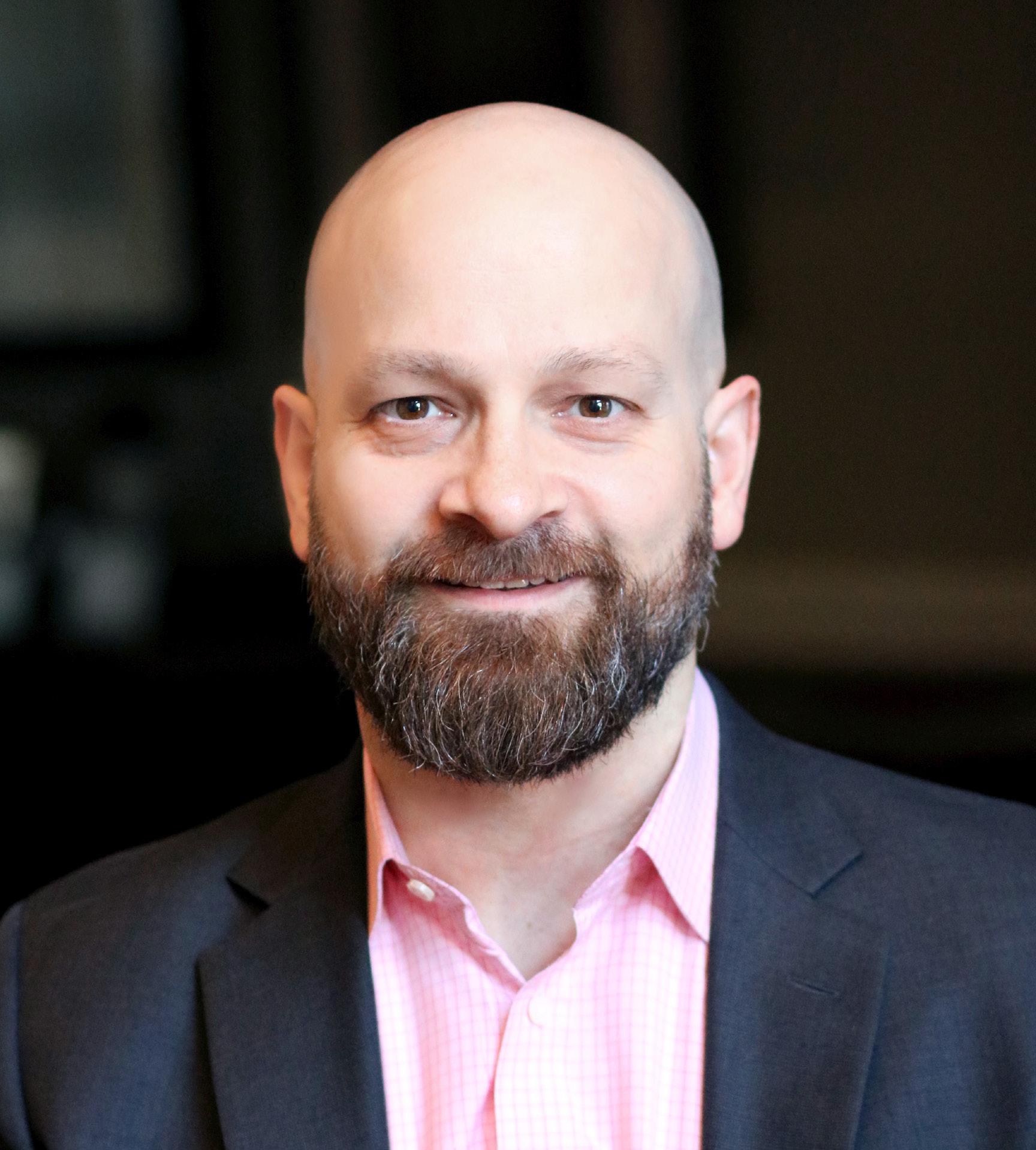
Before Schacknies joined the corporation, the Blackstone Group bought Hilton Hotels for $26 billion. A year later, with Schacknies serving as assistant treasurer, the two companies restructured the deal with Blackstone pouring $800 million in to reduce Hilton’s debt from $20 billion to $16 billion. In 2013, Hilton went public with what was at the time the highest ever hotel IPO.
But perhaps Schacknies’s most important deal at Hilton came in 2016 when he simultaneously orchestrated two massive and important spin-offs that created a total of
three public companies. In February of that year, Hilton Worldwide Holdings moved most of its real estate into a real estate investment trust (REIT). The shrewd move maximized returns to investors because REITs funnel all but 10 percent of their taxable dollars to shareholders. The REIT was created to hold about three-fourths of Hilton’s hotel assets.
The company also spun its timeshare business into another standalone company known as Hilton Grand Vacations. The divestitures helped Hilton focus on its core while Schacknies moved to adjust finance strategies in response.
Today, Schacknies serves as treasurer for TechnipFMC, an international oil and gas company with twenty-three thousand employees and $13.4 billion in annual
“Circumstances can change at any time, and people who can learn to be comfortable when everything changes unlock opportunities that others miss.”
FRED SCHACKNIES
revenue. TechnipFMC operates in forty-one countries. The company helps its clients in big energy maximize profitability from seabed and surface oil and gas hardware systems, and it also owns a fleet of twentyone vessels that install oil pipelines deep on the seabed.
“Fred joined TechnipFMC in December 2020 at the pivotal point of a transformational spin-off, a recapitalization, and the departure of a highly regarded CFO,” says Kevin Joyce, director for Societe Generale Americas Securities/Energy. “When the industry was seeing only glimpses of recovery, he immediately contributed to the rapid positive financial and operating trajectory we’ve witnessed by TechnipFMC.”

TechnipFMC, like Hilton, is a company facing shifting market dynamics and consumer behaviors. “Energy is in a huge transition as demand goes up and technology moves forward,” Schacknies says. “I’ve lived through enough dynamic change to know I can thrive here and help make a difference no matter what we face.”
One way that Schacknies can make a difference is by bringing stability to the balance sheet. TechnipFMC was created through complex mergers and partnerships. It was reformed when leaders spun off Technip Energies, a part of the company that held massive amounts of cash for its biggest projects.
TechnipFMC is using proceeds from the deal to pay down its debt, and with the
Energies component gone, what remains is a lean company that has a smaller cash footprint by “intent and design.” Schacknies says he can now be more aggressively efficient and get the company back to investment-grade metrics with industry-appropriate leverage.
Doing so will take what Schacknies calls a marriage of talent and culture. “We want to get the right people in the right roles to do the right things,” he explains. “We support a company that designs and builds incredible machines that operate in the most hostile environments in the world, and that permeates my team. We are problem-solvers at heart.”
Schacknies is the kind of leader who loves developing others and helping them identify growth opportunities. Although he recognizes not everyone shares his innate ability to remain calm in the face of astounding difficulty, he says it’s something anyone can learn. When it comes to making hires and building his team, he’s not just looking for experience, technical skill, and cultural fit—he’s also looking for people of good character.
Character matters because Schacknies’s teams are trusted to deliver consistent results against all odds. Treasury is working with every other part of TechnipFMC to drive innovation and serve clients working in an unpredictable era in a dangerous and turbulent industry. It’s a big job, but one for which Schacknies has been preparing his whole life.
“We support a company that designs and builds incredible machines that operate in the most hostile environments in the world, and that permeates my team. We are problem-solvers at heart.”
FRED SCHACKNIES
Societe Generale Corporate & Investment Banking (SG CIB) is a marketing name for the corporate and investment banking businesses of Societe Generale and its subsidiaries worldwide. In the United States, certain securities activities are conducted by Societe Generale Group’s wholly-owned subsidiary SG Americas Securities, LLC (“SGAS”), a registered broker-dealer and member of NYSE, FINRA and SIPC. Services provided outside the United States may be provided by affiliates of SGAS. This material has been prepared solely for information purposes, and does not constitute an offer, a solicitation of an offer or invitation, or any advice or recommendation, from Societe Generale or any of its affiliates (“SG”) to buy or sell any security or financial instrument or product, or participate in any trading strategy, activity or arrangement. Not all securities or financial instruments or products offered by SG are available in all jurisdictions. This communication is not intended for or directed at retail clients/investors in or outside the United States. It is for institutional and/or qualified investors only. Please contact your local SG office for any further information. © 2021 Societe Generale and its affiliates. All rights reserved.

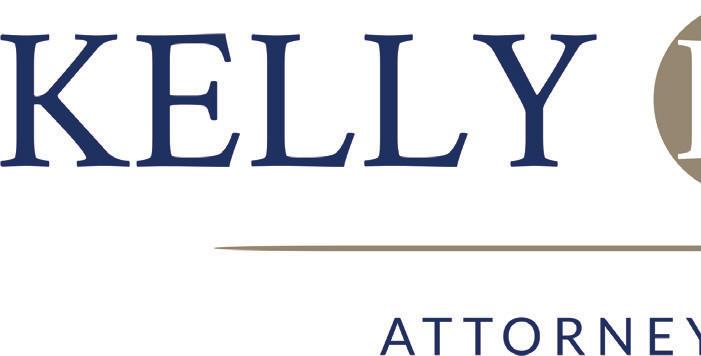
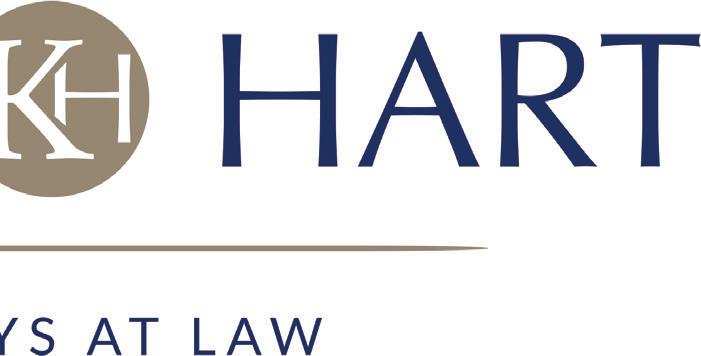
Throughout his career, Sunny Bedi has been attracted to positions where he is involved in problem-solving and process automation. Ever since graduating from the University of San Francisco with a BS in biology and an MBA in international business, those are the top things he has considered when contemplating joining a company.
“When you look at building things, creating things, establishing the right process and structure around it, IT is in the middle of it all,” he notes. “I didn’t want to be limited to (or) confined to one function, and since IT has the ability to touch all of them, I have been associated with it my entire career.”
Bedi’s impressive résumé includes stints at Accenture, Deloitte, JDSU, VMware, and Nvidia. In January 2020, he joined Snowflake, an $83 billion data company located in San Mateo, California. As CIO and chief digital officer, he became responsible for running the entire IT, security, and data team to support the company across global markets.
“What excites me about content is going to companies that are small, that are
trying to get big, and really putting all the right infrastructure, processes, people, and tools together,” he shares. “Snowflake was embarking on that journey two years ago when I joined, which was the same path I took at VMware and NVIDIA when they were smaller companies, and they are both now massive companies.”
His intention is to repeat that same success at Snowflake. For instance, when he started with NVIDIA, the company had fewer than two thousand people, and when he left, it had more than sixteen thousand. When he came aboard Snowflake, it likewise had a workforce of fewer than two thousand, which has now almost doubled in size in a short time.
“Success starts by developing long-term road maps, partnering and aligning with the business functional leaders to lay out what happens in the next couple of years—what type of initiatives should we be staggering, which should come sequentially, and initiatives that should be handled in parallel,” Bedi explains. “We need to make sure IT is looked at as an enabler for all implementations and by no means slowing business
down in the automation they need for each functional area.”
One important lesson he learned from his past jobs is that teams shouldn’t all have to be in one geographical location. Rather, hiring employees should be a truly global process.
For example, when Bedi joined Snowflake, all its headcount was slated to be in the Bay Area, but he knew that it would be “super expensive” and nearly impossible to hire that many people for the type of growth the company was expecting.
“Now we have a truly global employee base that we are creating. We’re extremely fast in getting projects completed and scaling the company in a manner that is very natural and organic and doesn’t have any waste in it,” he says. “We wouldn’t have been able to do that if we had not invested in the global workforce. Now we have more than 50 percent of our headcount that doesn’t sit in the Bay Area, which allows us to have 24/7 coverage and scale initiatives in a graceful manner.”
Another valuable lesson he’s learned is the importance of investing in the right
platforms right from the get-go. That means avoiding ad hoc or Band-Aid solutions.
“Don’t buy or invest for the next six months, because those things don’t scale with [the company]. You know how the company is going to grow,” he declares. “Have a longer-term vision and a longer-term strategy on what is needed for the company and invest appropriately. It may take a little more time to get there, but then you’re setting the company up for success.”
One thing Bedi is passionate about is the philosophy of being customer zero, meaning that Snowflake has implemented the products it’s selling internally, and its own employees are finding value in them.
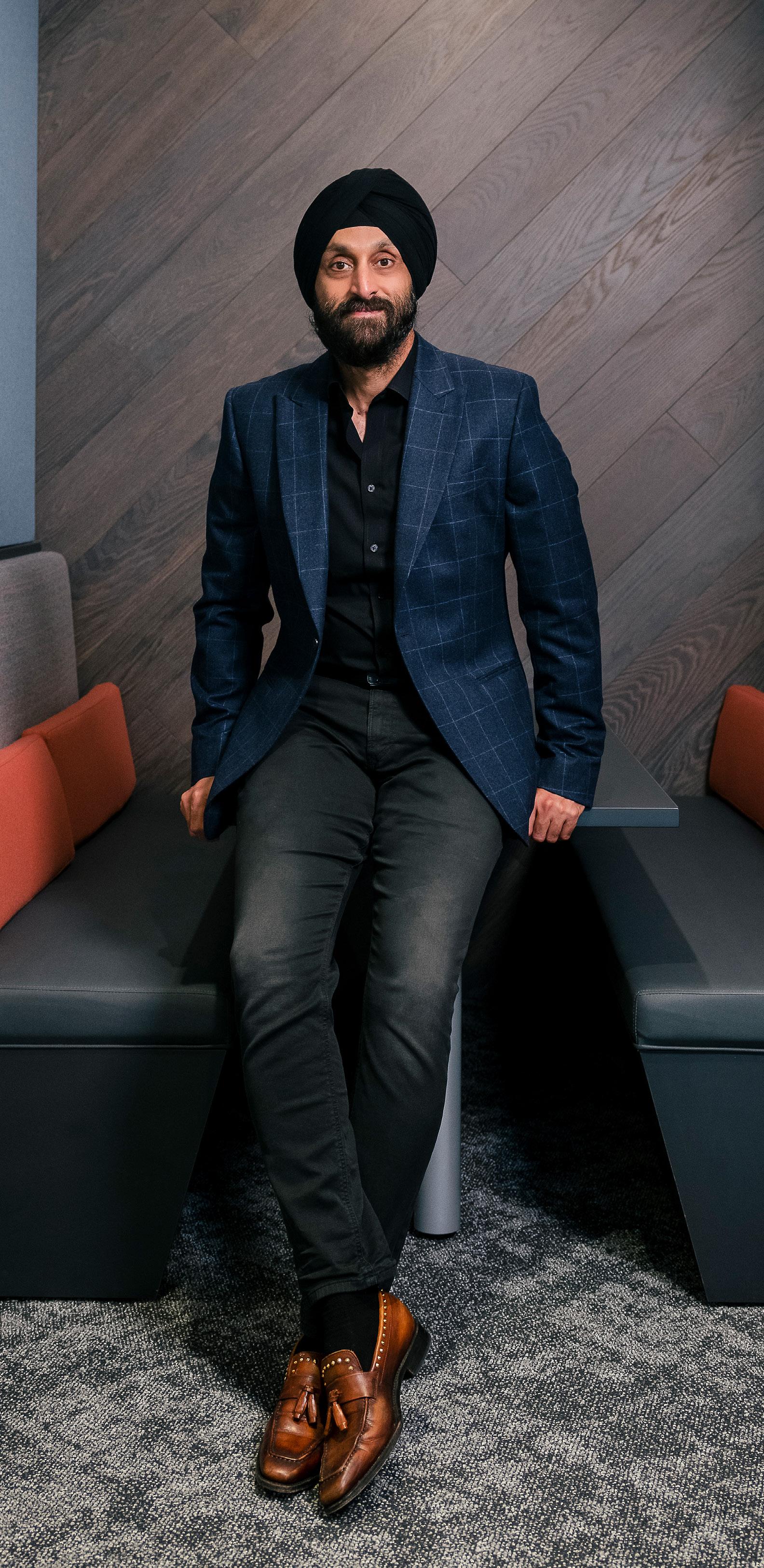
Snowflake on Snowflake is an initiative that is something that is very close to Bedi’s heart, as Snowflake teams use Snowflake to make critical, data-driven decisions.
“The customers on the other side of the transaction are people who are like me, who talk like me, who run functions like me—they are the chief data officers, chief information officers, security officers,” he explains. “So when our sales team goes and talks to them, a good customer will ask, ‘How do you guys use the product?’ And if we haven’t implemented that product that we’re selling to customers in the most incredible way, then
Nat and Cody Gantz Sunny Bedi CIO and Chief Digital Officer Snowflakewe don’t really have a leg to stand on. So it’s a validation, and externally, that messaging becomes even stronger.”






By using the products in-house, Bedi’s team is also able to work with Snowflake’s engineering and product management team on tweaks that can improve the products before customers get their shot with them.
Bedi also subscribes to the notion that companies need to look at where they want to go if they’re going to get ahead. That helps him plan out the future.
“On the IT side, we have road maps established for finance, for sales, and we’re going to new markets and still heavily investing in key skills and people,” he shares. “We are rolling out new products. So there is a significant NPI and growth related demand between now and the next year; and IT is in the middle of all this action enabling transformation and scale. that are out there between now and next year, and IT is in the middle of all those initiatives.”
TCS is an IT services, consulting, and business solutions leader. As a strategic partner of Snowflake, TCS worked with their CIO organization to implement ITSM processes and launch a global service desk. TCS’ domain and next-gen technologies expertise helped Snowflake build a future-ready system, improve user-experience, and reduce operational costs.

“What excites me about content is going to companies that are small, that are trying to get big, and really putting all the right infrastructure, processes, people, and tools together.”
SUNNY BEDI
Eliminate passwords to stop credential-based attacks.

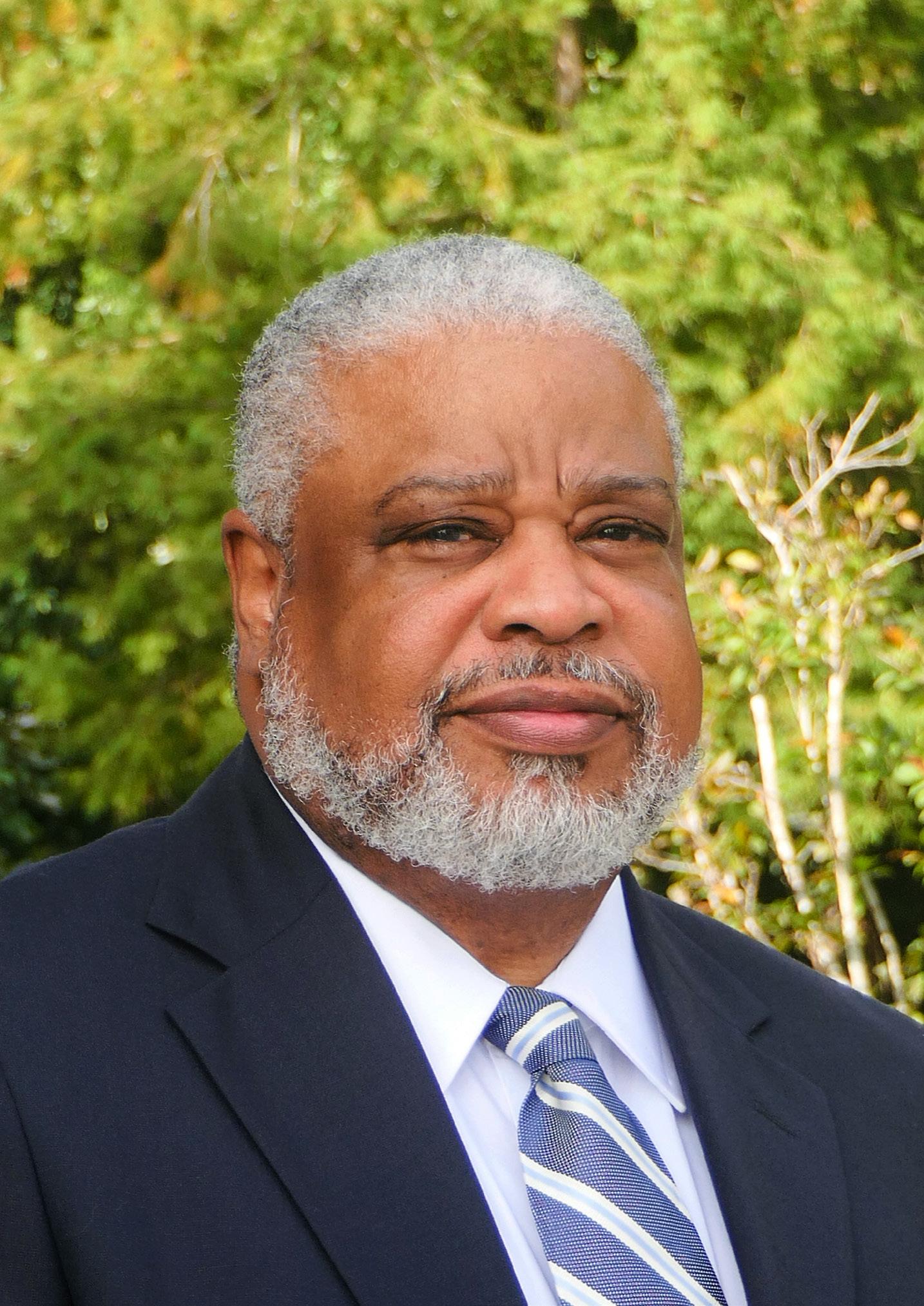
After thirty-three years at Sonoco, Jerry Cheatham remains dedicated to making a positive difference for his colleagues
Jerry Cheatham was driving with his buddies from Charlotte, North Carolina, to Myrtle Beach, South Carolina. The highway took them through Hartsville, South Carolina, where they stopped to get gas. Cheatham remembered people from his college days who lived there. “This place is in the middle of nowhere,” he remembers thinking. “Why would anybody live here?”
A year later, he would be one of those people. Cheatham accepted a position with the Hartsville-based Sonoco, the multibillion consumer, industrial, healthcare, and protective packaging company. Sunoco, the gas company, he had heard of; Sonoco, the global packaging company, he had not. Last July, he celebrated his thirty-third year with the company.
But the story gets better. “From the very place at the gas station where I uttered those words,” he says with a laugh, “my wife-to-be lived right across the street. I got a great job, a great career, and a great wife.”
Cheatham is Sonoco’s staff vice president of finance for industrial North America. He grew up in Greenville, South Carolina, upstate in the foothills of the Blue Ridge Mountains,
with three brothers and two sisters. “We were very much a working-class family,” he says. “Money was never in abundance, but both of my parents were loving and supporting.”
They were also inspiring role models who instilled in their children an indelible work ethic and respect for education. Neither of his parents finished high school, and Cheatham became the first in his family to attend college (first at South Carolina State University, and later, at Vanderbilt, where he earned his MBA).
The Cheatham children were never told to get a job, he said, “but we always knew we needed one. My first was as a paperboy when I was between ten and eleven. I hit the federal payroll in 1977 working in restaurants and have been gainfully employed ever since.”
Cheatham’s path to Sonoco was guided in part by four mentors. One was a high school accounting teacher. The second was a former pro football player and educator who worked in a local recreation department.
“I spent a lot of time in that rec center,” Cheatham says. “I didn’t know anyone directly who had been to college. He was the individual who really planted that seed, along with my grandfather. He was a contractor. I worked one summer for him laying bricks, and in the hot sun of South Carolina I learned pretty quick that I wasn’t going to survive in that kind of work, so I’d better hit the books a little harder than I had been.”
And then there was Frank Jonas of Arthur Andersen & Company, the public accounting firm, which recruited on the South Carolina State University campus. During the interview, Jonas asked Cheatham if he could live in Charlotte. “For the right money, I could live in Montana,” Cheatham replied.
“He gave me my first professional job,” Cheatham recalls. “I’m grateful he took a chance on me.”
“I know what a lifechanger education can be.”
JERRY CHEATHAM
After four years, Cheatham pursed an opportunity to join Sonoco. He would evolve his role from finance to a process improvement role. He was later asked to lead the effort to consolidate Sonoco’s accounting functions. In essence, he considers his job to provide leadership, to use financial information to drive business performance, and to uphold Sonoco’s core values of integrity, respect, service, and accountability.
Cheatham attended Vanderbilt University from 1997 to 1999 while he was working for Sonoco in Nashville. “I had a goal of obtaining an MBA from a top-tier business school as a means of equipping me with skills that would help advance my career,” he says.
“I accomplished that goal by attending Vanderbilt’s Executive MBA program while working full time.”
Cheatham is currently the staff VP of finance for Sonoco’s Industrial North American businesses that is comprised of five operating units. Among his current initiatives include optimizing Sonoco’s Shared Service Center in North America, expanding the footprint of its pricing analytics and optimization software application and serving as co-executive sponsor for the Work Environment team that is a part of Sonoco’s Diversity & Inclusion Council.
As to his own leadership style, he considers a statue outside of Sonoco’s corporate office that says, “People build businesses.” He expresses pride in every member of his team. “They make me look better,” he says. “What I value the most in others is humility and believing in something bigger than themselves. Someone who is driven and who has an insatiable curiosity.”
Cheatham and his wife, Carla, are celebrating their thirtieth anniversary this year. They have three daughters. One is a nurse. Another is a financial analyst. “She once told me that spending the day with me at work was the single most boring day ever,” he says, laughing. “But she had a change of heart after one semester of chemical engineering at Clemson.” The third daughter is an early education major at the University of South Carolina and dreams of opening her own dance studio.
Education is a key component of his charitable efforts as well. Cheatham has been a member of the South Carolina Independent Colleges and Universities, an advocacy organization representing twenty-one of South Carolina’s nonprofit colleges and universities, since 2014. He is the current chair on the Board of Trustees. He is also president of the Darlington County Education Foundation, which raises funds and awards grants for teachers to enhance the educational experience for public school students across Darlington County. He also serves on the Board of Trustees for Coker University.
“I’m always looking for ways to make a difference,” he says. “I know what a lifechanger education can be.”
Pricefx: “We believe that successful pricing needs visionaries. Jerry Cheatham had the vision to improve profitability by optimizing pricing at Sonoco. He needed to partner with a team he could trust. With the guidance of Pricefx, Big Data Pricing, and internal alignment at Sonoco, we were able to show an ROI within six months and have now expanded to multiple business units.”
 —Vicki Roberts, Senior Account Executive
—Vicki Roberts, Senior Account Executive
“What I value the most in others is humility and believing in something bigger than themselves.”
JERRY CHEATHAM
The combination of Quaker Chemical and Houghton International is best described as a marriage of equals. The two companies were both founded more than a hundred years ago, both headquartered in the Philadelphia area, and both roughly the same size with a similar client base and global footprint.
Internally, company leaders were effusive about the largest transaction either company had ever undertaken, giving the deal initiative the acronym “MIH” for “Made in Heaven.”
It took a long courtship before the two industrial process fluids manufacturers made it to the altar, though.
Robert T. Traub, vice president, general counsel, and corporate secretary for Quaker Houghton, began his career with Quaker Chemical in 2000 and says there’s been
informal talk of combining the two companies since before the 1990s. “The talk never went very far, but a transaction of some sort was always out there as a possibility,” he says.
In 2016, talks got serious, culminating in a deal in 2017 and a closing in August 2019 that formed the new Quaker Houghton entity. A lengthy regulatory approval process provides an interesting case study, and Traub, along with the legal teams from both companies, were key players. How they and corporate leaders executed the deal set the stage for what appears to be the makings of a happy, long-lived marriage.
Defining the financial parameters of the deal was the trickiest issue in the early stages of negotiations. Houghton was a private company, with a majority stake held by one family. While the transaction was essentially a merger of equals, the financial mechanism would involve a
“We looked at the best of both worlds, or even some new things in some cases. . . . Everyone agreed to listen courteously to new ideas.”
ROBERT T. TRAUB
purchase by Quaker of Houghton’s stock. Thus, determining a fair value for Houghton shareholders and a fair price for Quaker’s shareholders to pay required detailed, patient negotiation.
As Quaker’s general counsel, Traub provided legal counsel as the leaders of the two companies hashed out cash to be paid to Houghton’s shareholders, stock to be provided in the new Quaker Houghton and percentage of ownership for stakeholders in the discussions leading to a letter of intent and then to the stock purchase agreement to send to regulators. The discussions led to a deal in which Houghton owners would be the largest shareholder, but the new entity would be a public company. Houghton owners would hold three seats on Quaker Houghton’s Board of Directors.
Deciding who would occupy corporate leadership roles was another challenge for the negotiators, but this process was completed without acrimony, according to Traub. “It was decided during the negotiations that the Quaker CEO would be CEO of the new company,” he says. “The makeup of the rest of the executive leadership team was resolved through a comprehensive 360-degree review process between us at Quaker and our counterparts at Houghton.”
The antitrust review by US and European Union regulators took over two years. In order for the deal to be approved, the combined company had to divest a small part (about 3 percent) of its combined revenue at close. The fact that both companies were part of a somewhat specialized industry complicated this process, as the number of potential buyers was fairly small, and the assets were in several different regions. Buyers had to gain approval from regulators, so the divestment process was not a simple bidding process or typical divestiture.
As the two companies worked to find an appropriate buyer and negotiate a deal, they took advantage of the lengthy approval process by setting the groundwork for the post-merger corporate integration. Legal counsel was essential here, as the regulators strictly dictate what company leaders can discuss while a merger winds its way through the regulatory process and the companies took great care to not run afoul of regulatory “gun-jumping” parameters.
The two parties could not share information that could lead to charges of collusion should the deal fail to gain approval. “Neither party could disclose to the other party what it wouldn’t want disclosed to a competitor,” Traub says. “Lawyers were always in the




















Faegre Drinker is a firm with one shared focus: the client. We understand your priorities. We bring you fresh ideas that work. And we deliver excellence — without arrogance. With more than 1300 attorneys, consultants and professionals across 21 locations in the U.S., London and Shanghai, we’re ready to partner with you to overcome challenges and advance your most ambitious business and legal goals. How can we help?



room during these discussions, and we did a lot of educating of the clients to ensure only allowable planning occurred.”
Sharing data like sensitive customer information was strictly off-limits but hashing out which business process software platforms would best serve the post-merger entity was kosher. “We could design what the future might look like, but not take any steps to begin combining the organizations until the deal was closed,” Traub says. It was up to the lawyers to draw clear boundaries and educate functional leaders on these antitrust matters.
The two sides could have waited for regulatory approval before undertaking this preliminary integration planning work, but acting proactively paid off. “All that planning made for a much smoother integration,” Traub says.
“A combination such as the Quaker Houghton transaction requires leaders to walk the tightrope of planning for the future without getting ahead of the approval process,” says Doug Raymond, partner at Faegre Drinker Biddle & Reath. “When we represented Quaker Houghton in the combination, we witnessed firsthand the influence of Rob’s steady guidance and vision on the success of this merger.”
The success of any major corporate combination depends partly on the ability of leaders to merge two different company cultures as the two organizations become one. In this case, Quaker and Houghton were like cultural siblings. Both competed for the same contracts in the same industries, so they shared a similar organizational model. They also had many long-tenured key employees with low turnover.
This indicated that both had a healthy culture, Traub says, which boded well for integration.
“We decided early on that we wouldn’t take one culture and push it down through the organization,” Traub says. Instead, the leadership team analyzed cultural and organizational mores from both companies and looked to create a new culture by choosing what they considered the best practices from each.
“We looked for the best from both worlds, or even some new things in some cases,” Traub says.
As part of this philosophy, leaders devised a new set of core values and developed working norms for themselves. Chiefly, all communications between leaders would be open with everyone getting fair hearing of their ideas.
“Everyone agreed to listen courteously to new ideas even if they disagreed with them,” Traub says. Leaders also pledged to be fully engaged during meetings, even virtual meetings, and not be distracted by incoming email or texts.
Leaders are embracing new ideas in several operational areas, including environmental, social, and corporate governance (ESG). After the combination, the company formed a new Board-level sustainability committee. As the top lawyer and corporate secretary of Quaker Houghton, Traub has assisted in various parts of the overall sustainability and ESG efforts and helped this new board committee craft its initial charter.
The company is setting certain goals for carbon emission reduction, formulating products with less environmental impact, and boosting workforce diversity. “We’re putting some great young minds to work on this effort,” Traub says.
It’s a new era for Quaker Houghton, and the company is moving ahead smoothly thanks to a well-executed combination. With that work largely in the rearview mirror, Traub and his legal team will help the company reap the benefits of the combination of two former rivals and plot its future.
“We decided early on that we wouldn’t take one culture and push it down through the organization. We looked for the best from both worlds, or even some new things in some cases.”
ROBERT T. TRAUB
It’s an outdated business model. A day laborer looking for work goes to a contingent staffing branch location and fills out a stack of paperwork required to onboard before they can take a work shift. They get approved (often days later), return to a branch location, wait to be dispatched, get a ride to a job site, work a shift, check out, receive a day’s pay, and commute home. It’s time-consuming, inefficient and error-prone. Someone needed to disrupt the staffing industry, and Jeff Dirks was the right man for the job.
Dirks, a respected innovator and technology leader, is helping staffing and recruiting giant TrueBlue digitally transform
After building businesses and leading world-class tech organizations, Jeff Dirks helps TrueBlue redefine how people connect with work
and reimagine the way workers and employers connect. It’s big business. Each day, the company engages its massive database to assign and dispatch as many as twenty-five to thirty thousand associates to job sites. Incorporating new technologies to help improve the process attracts and retains better candidates, produces more satisfied clients, and helps TrueBlue stand out in a highly competitive landscape for workers.
Although Dirks, who joined TrueBlue in 2018, is new to staffing, his unique hybrid experience makes him the perfect person to shake up the industry. The veteran tech leader logged two decades building companies in senior business leadership positions as CEO and chief operating officer of venture
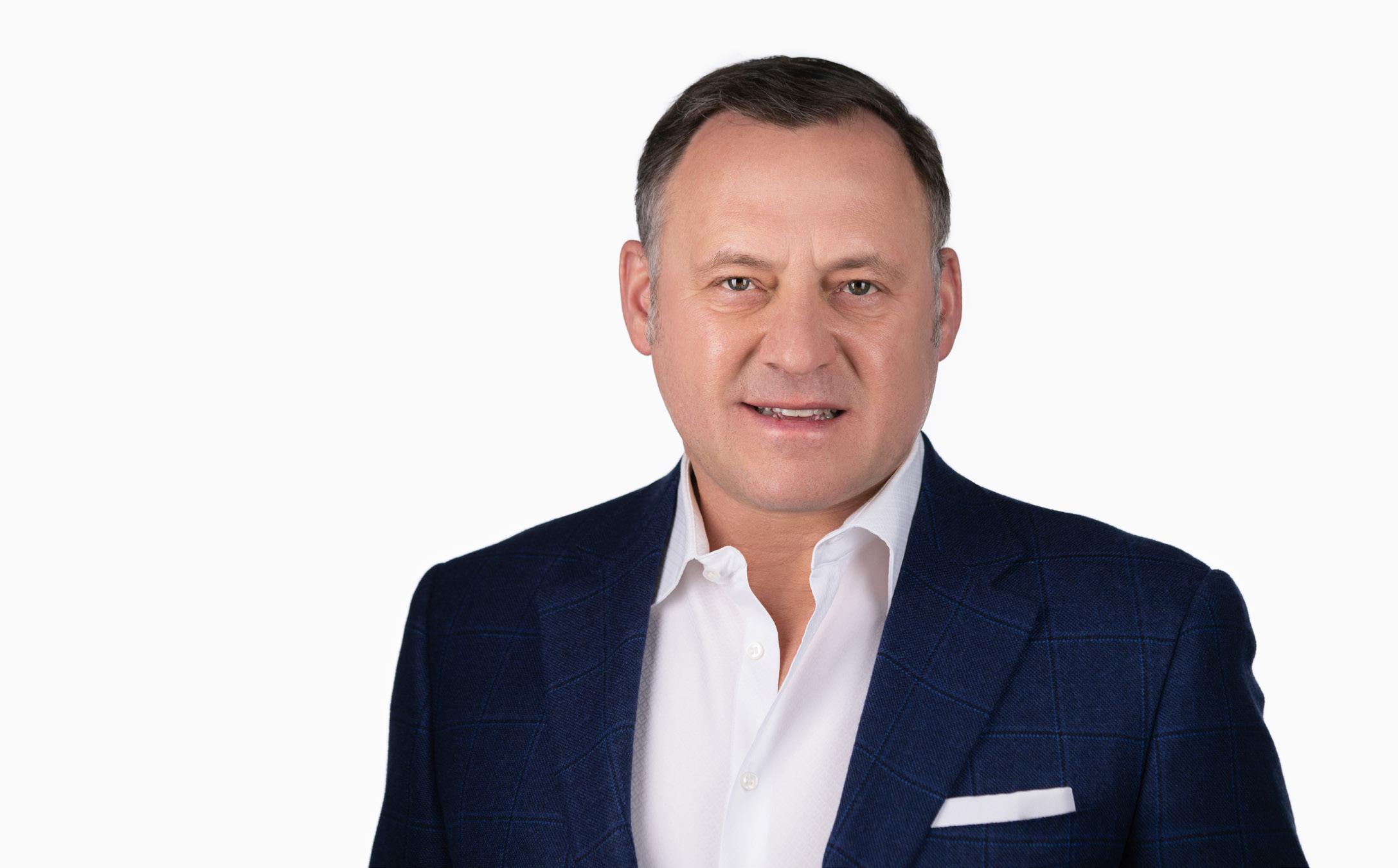
capital-backed startups. He then spent ten years in chief technology officer and chief information officer roles at larger public companies. As a result, he knows how businesses are built, and he understands the power of technology to help those businesses thrive.
After starting his career at IBM, Dirks was a vice president at a startup known as FourGen Software, where he was VP of R&D and led a team of 135 software developers developing supply chain management software for Fortune 500 companies. “I’ve always been interested and passionate about the intersection of tech innovation for business benefit,” he says. “I like to find inefficiencies and think backward to see how tech can solve a problem and create value.”
That’s exactly what Dirks did later at Seattle-based CapitalStream. As president and COO, he led the launch of banking’s first real-time web-based credit application and real-time credit scoring service. When Bank of America, Merrill Lynch, and others adopted the technology, CapitalStream attracted a major suitor that acquired the company.
After twenty years in startups and ten years leading companies, Dirks never pictured himself in staffing. But when TrueBlue started recruiting him, he noticed something that seemed surprisingly appealing.
“The legacy staffing industry had an old-school reputation and was generally a technology adoption laggard,” he notes. “While those facts were at first discouraging,
Jeff Dirks Chief Technology & Information Officer TrueBlue Mike NakamuraI soon realized they actually represented an opportunity for me to use technology and innovation to totally transform how people connect with work.”
At TrueBlue, Dirks began working with the business’s leadership to identify a problem and then work backward to introduce a novel and elegant solution. The problem is friction. It takes workers too long to find jobs, and companies often get inconsistent or unreliable results. Dirks’s vision is to “connect anyone, anywhere, anytime with any job” by introducing the complete virtualization of the client experience.
Dirks and his team aim data science and machine learning at huge amounts of historical data to create algorithms that identify TrueBlue associates with the highest levels of interest in a job and the highest probability of showing up for their shift. Then, they seamlessly match labor supply with demand as associates/workers, armed with a smartphone, swipe an app to search for jobs within their preferred radius, set their schedule, pick a job site, self-dispatch, check in, work, and get paid without encountering any of the obstacles that once stood in their way.
But it doesn’t end there. For Dirks, that’s just the starting point. He says TrueBlue is starting to invest in advanced tools like conversational AI guides that will help associates manage their work daily and provide a guided pathway to help them get their work done in a way that reduces human interaction and drives efficiency. While some of these steps are still underway, Dirks says the digital transformation of TrueBlue’s on-demand
business will be fully complete by the second half of 2022.
Dirks has also made some important internal changes. He took TrueBlue’s IT out of data centers and into the cloud to remove hardware costs and speed up performance time. In 2019, the team deployed about one thousand “changes” or project enhancements. In 2020, the more agile function deployed more than ten thousand changes. Improvements that once took a year to go from idea to approval to reality now speed through the process in weeks, days, or even hours.
Prior to starting his career in the civilian world, Dirks was a US Army intelligence analyst serving at Field Station Berlin before the fall of the Berlin Wall. At the time, he used technology for data collection. Now, he’s using it to help other veterans. Dirks knows that soldiers returning to civilian duty can encounter work-related challenges, and he is proud that TrueBlue puts about thirty thousand veterans to work each year.
The world, the workplace, and the way we work are all changing. Nobody can predict exactly what will happen next but whatever happens, Dirks and his colleagues at TrueBlue are building and perfecting the platform that will connect people to jobs in a whole new way.
ServiceNow Employee Workflows helps organizations support a hybrid workforce and manage flexible workplace experiences by providing a unified employee experience platform. Simplify complex employee journeys in the flow of work, while boosting employee productivity and operational efficiency across the enterprise. Learn more at servicenow.com/hybridwork.
Joey Votto was enjoying a career year when his team faced the Chicago Cubs in August of 2017. The lefthanded first baseman was batting .317 with 31 home runs and leading the National Leagues in walks. When Votto dug in for his at bat in the top of the fifth inning, what he saw surprised him. Cubs third baseman Kris Bryant had abandoned his usual position and was standing in the outfield.
MLB insiders call this defensive formation “the shift.” It’s a technique managers use to defend against hitters known for attacking or avoiding a certain part of the field. Cubs
manager Joe Maddon knew that Votto, a lefthanded power hitter, rarely hits the ball to the left side of the infield. In fact, Maddon had the exact information.
In 2017, Votto only hit a ground ball 39.6 percent of the time. He was more likely to hit a fly ball, a line drive, or a popup, which he did a combined 60.4 percent of the time. Furthermore, only 30.7 percent of Votto’s batted balls went to the third-base side of the diamond. By moving Bryant to the outfield, Maddon increased his chances of getting Votto to make an out.
The Cubs, like every other MLB team, know Votto’s tendencies because it has spray charts on every single player in the league.
The shift and other tactics are driven by data, science, and analytics. Today’s coaches and managers use searchable databases, wearable sensors, virtual reality, pitch tracking, motion capture, biomechanical cameras, and other tech tools to develop players, decrease injuries, boost performance, sell tickets, engage with fans, and gain a competitive edge.
Brian Keys helps Votto’s team harness the power and potential of these tools. Keys has been with the organization for nearly two decades. Over that time, he’s had a frontrow seat to baseball’s high-tech revolution. “Twenty years ago, IT in baseball was all about connecting a network and providing laptops,” he says. “Now we are developing
applications and analyzing data to help our team move up in the win column.”
As senior vice president of technology for the Cincinnati Reds, Keys manages a team of twenty-one business analysts, systems engineers, application developers, cybersecurity analysts, and others who work on solutions for their colleagues both in business and baseball operations. On the baseball side, they are building applications two hundred people use to scout and develop players around the world.
Those users collect photos, video flies, and other content Keys’s team feeds into a warehouse. Coaches, trainers, and managers can then access those assets in real time to
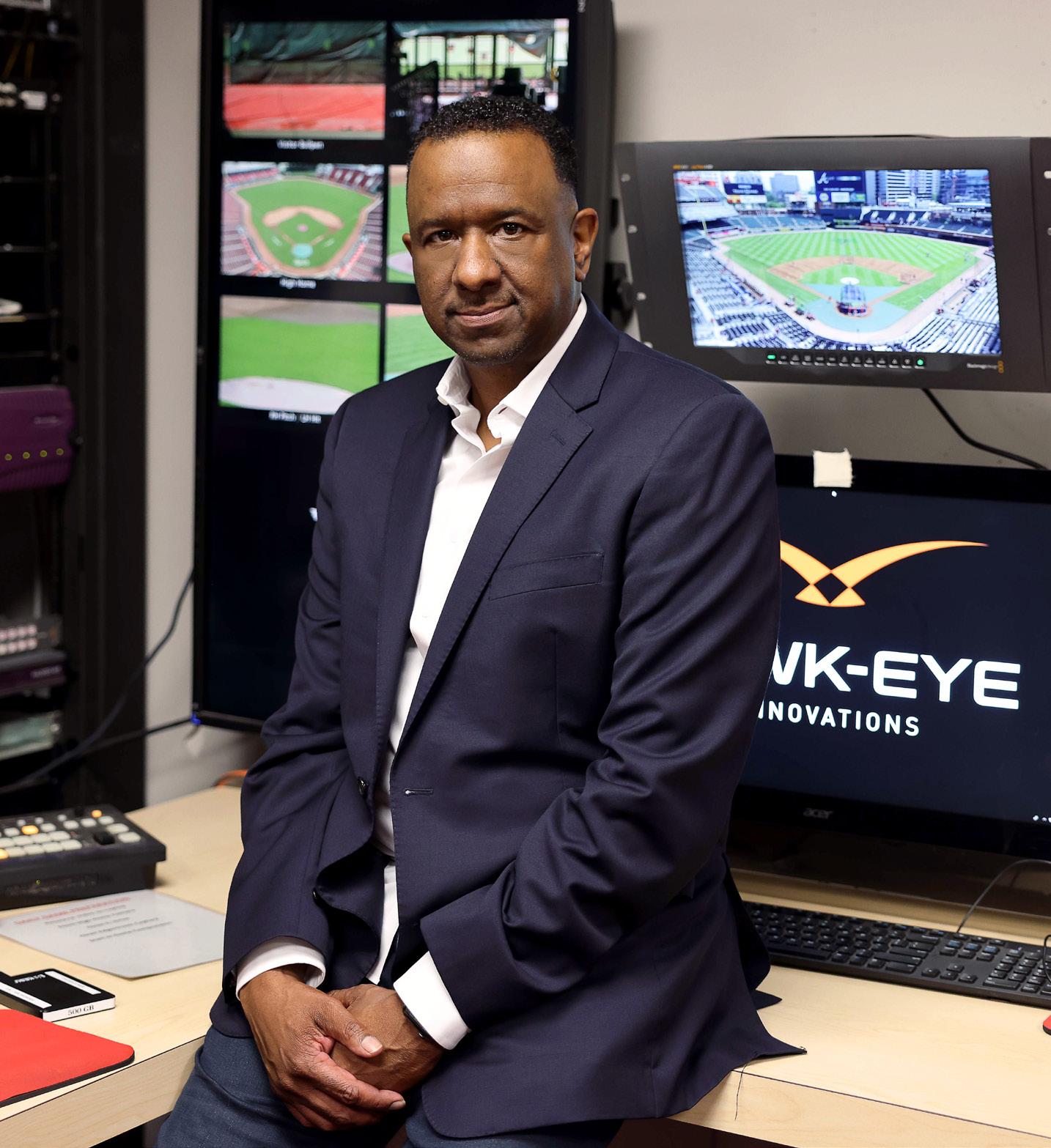
“Twenty years ago, IT in baseball was all about connecting a network and providing laptops. Now we are developing applications and analyzing data to help our team move up in the win column.”
BRIAN KEYS


Offload complex tasks of supporting, maintaining, expanding, and securing your network today. CBTS Network as a Service (NaaS) is a hosted and managed cloud-based solution combining the best of cloud-managed technologies like Cisco Meraki, VMware, Viptela, and more to create flexible networks opti
mized for over 90 percent of client environments—including the Cincinnati Reds. With NaaS, enterprise networks can quickly expand to new locations, automatically provision site-to-site VPNs, and ensure secure access to servers.
compare side-by-side footage of a player’s swing or scrutinize a pitcher’s arm angle.
In today’s ultracompetitive game, every move matters, and these tools give teams an edge over the opponent. Keys and his colleagues are working at all Major League, Minor League, spring training, and instructional-league facilities to install high-speed and biomechanical cameras. The high-speed units shoot twenty-two thousand frames per second to analyze the rotation of the ball coming out of a pitcher’s hand. Their biomechanical counterparts help coaches monitor a player’s pitching or hitting mechanics.
New initiatives will take what the Reds do at its MLB Great American Ballpark and mirror it at spring training facilities in Arizona, where Keys is moving data to the cloud and updating scouting and development tools. There, players wear various sensors to gather hundreds of data points throughout a player’s swing, and that information goes into a high-tech system to create frame-byframe video.
For more information, visit cbts.com
While all MLB franchises have these tools, Keys says his IT professionals set the Reds apart. “Anyone can buy technology or figure out how to mine data, but the secret is in how you analyze and present it to the baseball guys.”
Modern baseball clubs also leverage the power of technology in their corporate offices. The organization relies on Keys’s team to power business departments by leveraging software tools. His team is developing tools to help collect customer information and

increase sales and data that can enhance and customize the fan experience. In the wake of COVID-19, which kept fans from ballparks for the 2020 season, he’s introducing touchless, contactless, and self-service concession and retail solutions.
Keys’s background makes him the right man for the job. Prior to joining the Reds, he spent many years as an electrical engineer and IT project manager. He’s not a pure developer, and that, Keys says, is an asset. “I can build systems, but I can also manage people and projects. I love working with people, and I can have tech conversations that seem somewhat normal, so our coaches and athletes actually take and use the information we are sharing with them,” he explains. Keys’s experience as an athlete helps, too. He played baseball, soccer, and basketball until he became more interested in numbers and started tracking his team’s stats.
Keys is quick to point out that while stats and innovations are an important part of today’s game, he’s not asking players to become robotic. After all, the human element makes the game unpredictable. When the Cubs tried the shift against Votto, he hit a double and went three-for-five in the game.
“Anyone can buy technology or figure out how to mine data, but the secret is in how you analyze and present it to the baseball guys.”
BRIAN KEYSThe Cincinnati Reds use Network as a Service (NaaS) from CBTS to quickly create pop-up networks at any facility. By combining the best of cloud-managed technologies like Cisco Meraki, VMware, and anti-malware security, CBTS NaaS ensures secure data access to lighten your enterprise IT burden. Visit CBTS.com for more information.
A look behind the scenes of company-wide initiatives and goals, acquisitions, and brand development
Christina Khosravi, Los Angeles Lakers
Sean Condon, ASICS
Michelle Randall-Berry, International Game Technology
Denise Novey, Tupperware Brands
Jen Stoural, Smartsheet
Brixton
How Christina Khosravi, with her focus on business analytics and strategy, supported the Los Angeles Lakers during a pandemic and a championship run
By BILLY YOSTWhen one thinks of the people at the Los Angeles Lakers, it’s easy to imagine the larger-than-life players, the Hollywood sheen, and the fireworks that embody the seventeen-time NBA champions. But when speaking with Director of Business Analytics & Strategy Christina Khosravi, CFO Joe McCormack, and Senior Director of Corporate Development & Planning Elaine Shen, it’s something else that makes the most startling first impression.
What abounds most profoundly from a conversation with all three is an approach centered in trust, teamwork, and respect. These are finance team members who pay tribute to each colleague who has helped
 Christina Khosravi Director of Business Analytics & Strategy Los Angeles Lakers
Christina Khosravi Director of Business Analytics & Strategy Los Angeles Lakers
the Lakers make it through one of the most difficult periods in modern history.
But today, the focus is on Khosravi.
Khosravi joined the Lakers in 2017, but she started her career at Barclays Investment Bank in New York City. She remembers the beginning of her career well, as she began her job in September 2008 with her employer acquiring the assets of what remained of Lehman Brothers.
“Right out of college, I was immediately exposed to utilizing large sets of data in planning scenarios and helping our clients understand what their positions would mean to their respective bottom lines,” Khosravi explains.
Khosravi transitioned into sports after graduating from UCLA Anderson, where a background in finance, data relationships, and scenario planning propelled her interest in working in sports analytics. Her day-today focus as head of business analytics and strategy at the Lakers is to provide databased insights and recommendations, and she’s been adding value since day one.
“We had a lot of strong candidates for Christina’s role,” Shen says. “But what really
stood out for us was her finance experience and her passion for business analytics and its ability to impact revenue streams.”
Khosravi manages a team that includes individuals in CRM and data strategy and digital analyst roles. They work closely with revenue-generating departments—ticketing, corporate partnerships, and marketing— similar to an internal consulting arm.
She additionally helps with finance projects, including dashboards for visual financial metrics and analyses for strategic planning. Her background helps her to contribute readily to the in-house capability of the Lakers finance team and allows her to partner easily with external corporate finance advisors when specialized expertise or independent perspective is desired.
The COVID-19 pandemic tested the resiliency of individuals and organizations alike. One of the most telling examples of the Lakers’ values was its emphasis on retaining its entire staff.
“I think it says a lot about the executive team and management here that, while focusing on maintaining our internal workforce, also took a step back to determine how
“Every year is a different challenge, but it’s the people here like Christina that keep this place strong and attract the kind of talent we have.”
JOE MCCORMACK
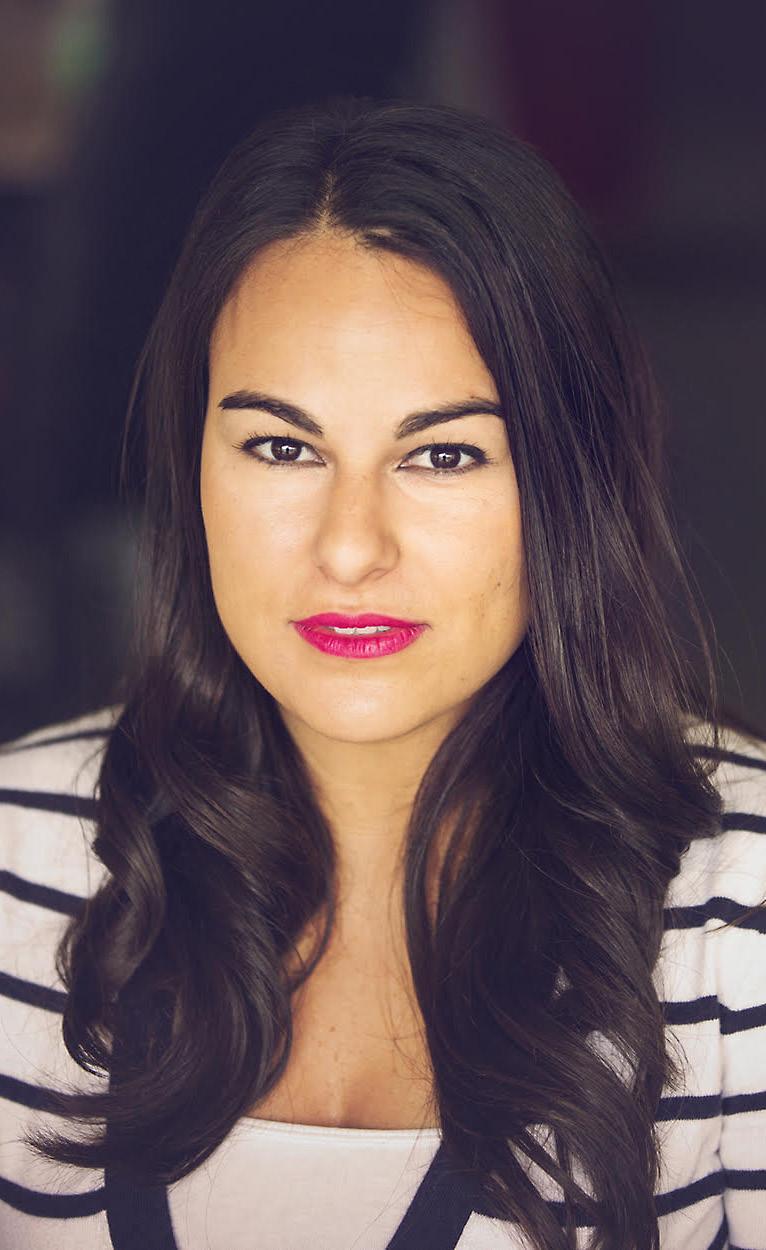
to support the individuals that operate our games, partnering with AEG and the tenant teams at Staples Center in creating a fund to support arena staff,” Khosravi says.
McCormack credits the IT department, under the leadership of Chief Technology Officer Rick Allen, with the swift transition to work-from-home set-ups within a matter of days, allowing for critical business continuity. He also credits the accounting department, led by AJ Harris, vice president of finance and accounting and controller, who pivoted to paperless and electronic banking.
During this period, Khosravi played a key role in the arena lease renewal and agreement. “We were dedicated to understanding every inch of the lease that had been signed and revised over the last twenty seasons,” Khosravi says. “We wanted to focus on enhancing the fan experience, growing revenues together, and really building a value-based partnership.”
Khosravi said the negotiation was viewed much more as a collaborative partnership with AEG and all parties worked to achieve value collectively. “There was a lot of data collection and interpretation, and that was all Christina,” McCormack says. “Every
other week there was an entirely new set of information to dive into and question.”
Shen agrees, highlighting the qualitative expertise Khosravi was able to bring—especially in viewing through the lens of how other teams navigate their lease agreements. “While we rely on Christina for the numbers and data,” she says, “the research and additional context she brings really elevates her contributions.”
For Khosravi and her team, a season without fans in attendance did not distract them from both short-term and longterm goals. “We revamped our tech stack, transitioning to new partners with custom products best suited to our business needs,” Khosravi says. “We prioritized our loyal and dedicated fan base, diving into better understanding preferences and touchpoints with the short-term goal of being able to welcome them back seamlessly to Lakers games this season.”
Cross-department collaboration was key as the business analytics and strategy team leveraged a close partnership with IT and legal. This initiative will continue to pay dividends in the long term as the Lakers consider the enhanced fan experience for seasons to come.
Kyle Dewitt“We wanted to focus on enhancing the fan experience, growing revenues together, and really building a value-based partnership.”
CHRISTINA KHOSRAVI





TPS is proud to have served as the Lakers’ Financial Advisor in the Lakers and Christina in the negotiations with AEG. This transaction will continue to power the Lakers leading NBA position in brand awareness, venue, TV, social media….and, of course, championships!
Stout is proud to help recognize Christina, Elaine, Joe, and the entire Lakers finance team as they continue to lead the evolution of sports finance.
Stout is a global investment bank and advisory firm specializing in corporate finance, valuation, financial disputes, and investigations. We serve a range of clients, from public corporations to privately held companies across numerous industries, including professional sports. For thirty years, our clients and their advisors have relied on our premier expertise, deep industry knowledge, and unparalleled responsiveness on complex financial matters.
Stout and the Lakers share the belief that open minds, strategic collaboration, and the relentless pursuit of excellence on behalf of our clients is paramount to success. Like the Lakers, Stout has a meticulous track record of delivering results and maintains the highest client satisfaction rating in our industry.







“Over the years, the Lakers finance team has continued to impress us with their ability to address increasingly complex and diverse corporate finance issues in the ever-changing industry of professional sports, all while sustaining the unique culture that Dr. Buss instilled.”

—Tim Cummins, Managing Director “Data analytics has the power to unleash new insights for innovative organizations such as the Lakers. Christina’s expertise has led to great benefits for the organization and will undoubtedly drive continued innovation and future success.”
—Jeff Mordaunt, Managing Director



What may be hard to illustrate is how much all three of them reference each other and the wider Lakers organization throughout the conversation. From Lakers CEO Jeanie Buss and the wider Buss family to President of Business Operations Tim Harris to General Counsel Dan Grigsby, it’s clear that the finance team is impactful because of its collaboration and cohesion within an organization that is aware that it operates better when it’s on the same page.

This mindset may have been a contributor to the Lakers’ 2019-2020 championshipwinning season.
“I’m always reminded of something Tim Harris says,” Khosravi says. “‘We’re in the people business, and that’s not only for fans to build a relationship with the team, but for us to build relationships with each other.’ The value and importance of growing those relationships is clear in every conversation we have.”
“She’s right,” McCormack agrees. “Every year is a different challenge, but it’s the people here like Christina that keep this place strong and attract the kind of talent we have.”
“What really stood out for us was [Christina’s] finance experience and her passion for business analytics strategy and its ability to impact revenue streams.”
ELAINE SHEN
When Canadian tennis star Leylah Fernandez won her first Women’s Tennis Association title at the 2021 Monterrey Open, she did it in a pair of ASICS. Since 1949, the Japanese sporting goods brand has equipped and empowered amateur and professional runners, wrestlers, tennis players, and other competitors. Whether they’re training for the French Open or a local 5k, ASICS’ customers are pushing the limits to see what they can accomplish— and that’s exactly why Sean Condon joined ASICS in 2017.
Condon, a respected digital leader who has optimized online processes and led strategy for Fortune 100 companies and startups alike, was attracted by the opportunity to help ASICS break free from its traditional sales models. “Wholesale was always the predominant sales channel, and this iconic brand was set up to support a system that was changing,” he says. “We needed to shift to building one-to-one relationships with our consumers and enhance our direct-toconsumer marketing and capabilities.”
To succeed, Condon would have to apply a start-up mentality to an established global corporation. Like his company’s loyal consumers, he would have to push himself to the limits.
Leading large-scale initiatives that transform a company and change its culture is no easy task, but Condon thrives in a challenge. “I run towards the opportunity to build something from scratch or try something new because that’s where I can have the biggest impact,” he says.
The philosophy has been with Condon as long as he can remember. He was born and raised in New England, where an influential marketing teacher encouraged him to take risks and test his limits. He studied business administration and marketing, and eventually found his way to Brookstone. The company wanted him to build a new drop-ship business, and although he lacked experience in the space, he managed to find his first vendor and the new website’s first product.
Other deals quickly followed, and Condon had no choice but to learn on the job. He found an internal business analyst who was
“Wholesale was always the predominant sales channel, and this iconic brand was set up to support a system that was changing.”
SEAN CONDON
willing to help. “He gave me one question per day, and I was always afraid to waste it,” Condon jokes. The relationship was an important one because it taught Condon the power of data, which he learned to mine, interpret, and harness without relying on outside experts.
Next, Condon approached the marketing department and asked for an opportunity to learn something new. A receptive VP offered him the unique opportunity to take a small budget, pick one product to place on the website, and see what he could do to drive sales. Condon noticed a gap in the market and made his selection—a papasan chair.
He set budgets, created text ads, built partnerships, and leveraged Brookstone’s capabilities to market the chair. Condon’s exercise took the product from outside the top 150 best sellers to the top 50. He applied these skills to Brookstone’s drop-ship business, taking the endeavor from $0 to $42 million in less than five years.
In 2017, Condon was looking for a new challenge when the ASICS opportunity came along, and he jumped at the chance to help the company try something new. ASICS had just acquired Runkeeper, and Condon came on board to integrate products and reach loyal customers in a whole new and direct way. He built a small team of three to launch the business and create a webstore to sell into an existing user base.

In its first year, Runkeeper generated $1 million in sales and Condon was asked to join the larger ASICS brand to start advising on global business matters.
As vice president of omnichannel, e-commerce, and retail, Condon is implementing other innovative steps to help ASICS sell direct-to-consumer (DTC) in North America. Under his leadership, the brand has seen DTC grow from less than 25 percent to more than 45 percent of total sales thanks to key hires, strategic marketing moves, and putting the right technologies in place to build holistic and personalized experiences catered to each individual consumer.
Additionally, Condon and his team have upgraded infrastructure to support a high growth DTC business by upgrading their website, revamping its distribution center, improving back-end capabilities, and investing in one-to-one marketing. ASICS digital business finished 2018 with $48 million in sales in North America, which grew 46 percent to more than $70 million by the end of 2019.
The investments and changes would pay off the following year, when the COVID-19 pandemic changed retail business worldwide. With customers unable to visit brick-andmortar stores, e-commerce saw a boom like never before. While competitors scrambled to respond, ASICS was ready to reap the rewards. With critical back end and operational upgrades already in place, the brand could easily redirect retail and wholesale inventory to fuel sales through their DTC e-commerce website.
Still, innovation and quick action were key. ASICS noticed a spike in enrollments to its medical professional and first responders discount program. That’s when they formed a new partnership with SheerID to automate background checks and other steps in the enrollment process. ASICS attracted many new customers, and Condon says the demand and revenue generated from the program far exceeded expectations.
In the new normal where consumers are more likely to shop online, information and convenience are of critical importance. The digital leaders at ASICS have launched guided selling through their shoe finder experience, expanded the company’s return policy from thirty to ninety days, and revamped their entire customer service organization through their partnership with Global Response.
“Sean has such a great vision for the ASICS business,” says Wendy Shooster, CEO of Global Response. “With clear strategy, investments in the team, and a focus on execution, he is the consummate business partner.”
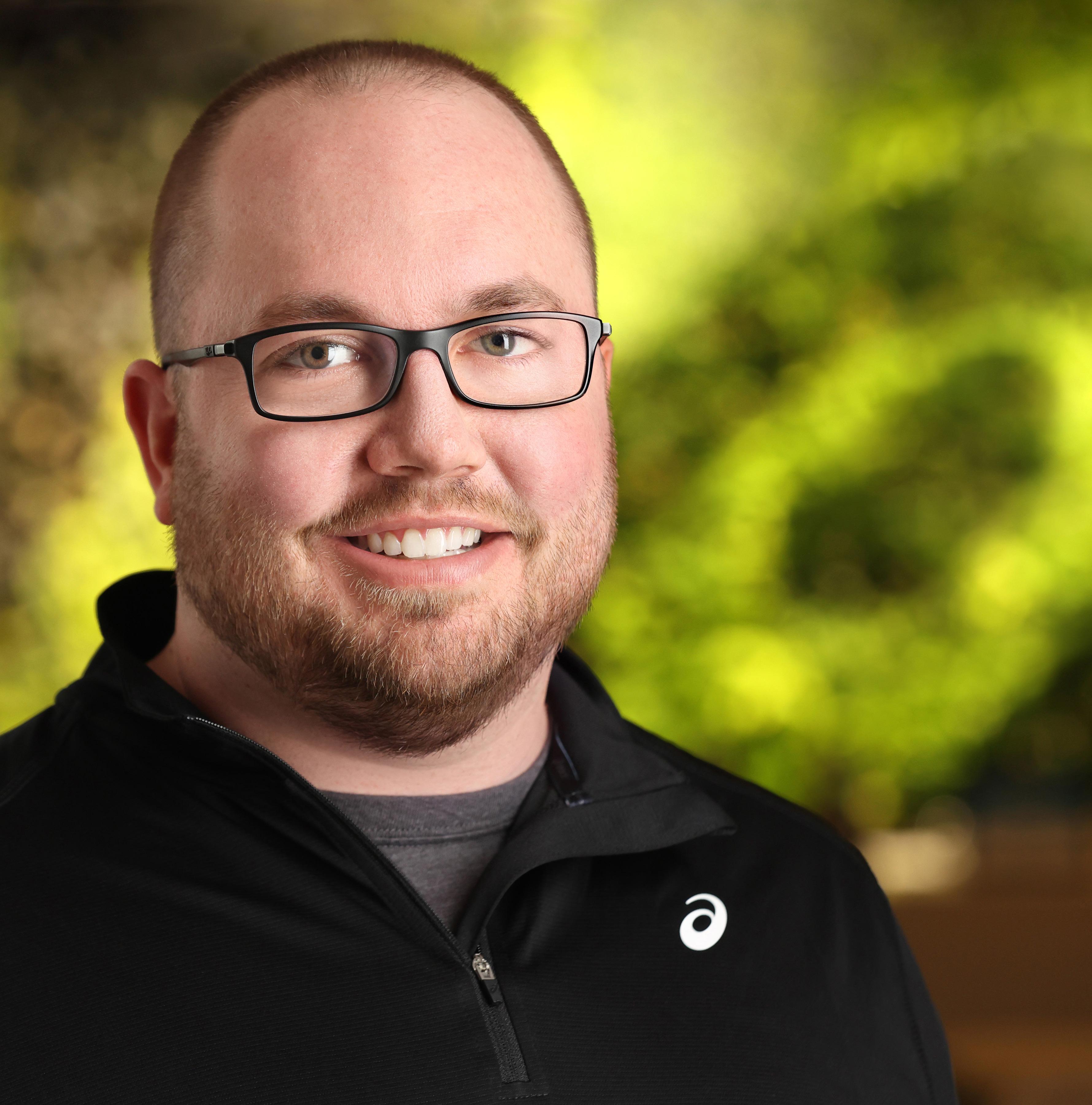
ASICS is also expanding omnichannel capabilities and building in more options. Customers can buy online and pick up at retail, ship items from a store to their home, or buy online and return in-store. Consumers in stores can also have access to a wider range of product assortment that is available through ASICS.com by utilizing Endless Aisle.




As Condon continues leading ASICS’ digital revolution, he’s looking to help everyone on his team learn and grow along with him. “I want to empower everyone to contribute because it helps the business and organization; it helps all of our associates and it helps me learn new things,” he says. “Today’s digital leaders have to understand the whole business and that means we have to maintain a willingness to learn from everyone.”

ASICS, like most retailers, still felt the negative impact of the COVID-19 pandemic. Total sales were down in 2020. Over the same time, however, digital sales rose 115 percent. Leaders expect that trend to continue as the company rebounds and continues to build upon the strong foundation in place.



SaleCycle have worked closely with ASICS for over six years. Throughout this time there has been a key focus on helping get the very best out of the user journeys across the ASICS site. The highly collaborative relationship is driven by seamlessly designed on-site retargeting and timely segmented/dynamic emails.

“Today’s digital leaders have to understand the whole business and that means we have to maintain a willingness to learn from everyone.”
SEAN CONDON
At Global Response, we are aligned with our partner ASICS’ commitment to both physical and mental wellness.
ASICS’ founding mission is to help everyone achieve a sound mind in a sound body. At the heart of this is an unrelenting belief in the power of sport to uplift the mind.

Now, ASICS is enabling everyday athletes to see the impact of sport on their own mind with ASICS Uplifter. To learn more, we encourage you to visit minduplifter.asics.com.
We are proud to partner with Sean Condon and ASICS in delivering the highest quality of customer experience.
www.globalresponse.com
Michelle Randall-Berry works for International Game Technology (IGT), a multinational gaming and entertainment company that produces slot machines, cashless payments, lottery and other gambling technology—but her job involves very little gambling. As IGT’s senior director of talent acquisition, Randall-Berry takes a holistic approach to find qualified employees and foster inclusive and equitable practices at the company.
“My role is to really look at the talent acquisition process and standardizing practices globally across the organization, but
also maximizing global best practices and thinking about what is leading practice when it comes to recruitment,” she explains. “My role [involves] thinking about our sourcing capabilities, but more importantly, looking at ways to build connections to different talent pools to support our businesses in terms of building capability for the future.”
While standardizing the talent acquisition process is an important part of Randall-Berry’s job, she also has to make sure that the operating model has some flexibility in order to adapt to the needs of IGT’s business units.
“Sometimes we need to pause and come up with a solution that’s specific to one
“You have to love the life cycle of being a recruiter, because while there are lots of ups, there are lots and lots of downs too.”
MICHELLE RANDALL-BERRY
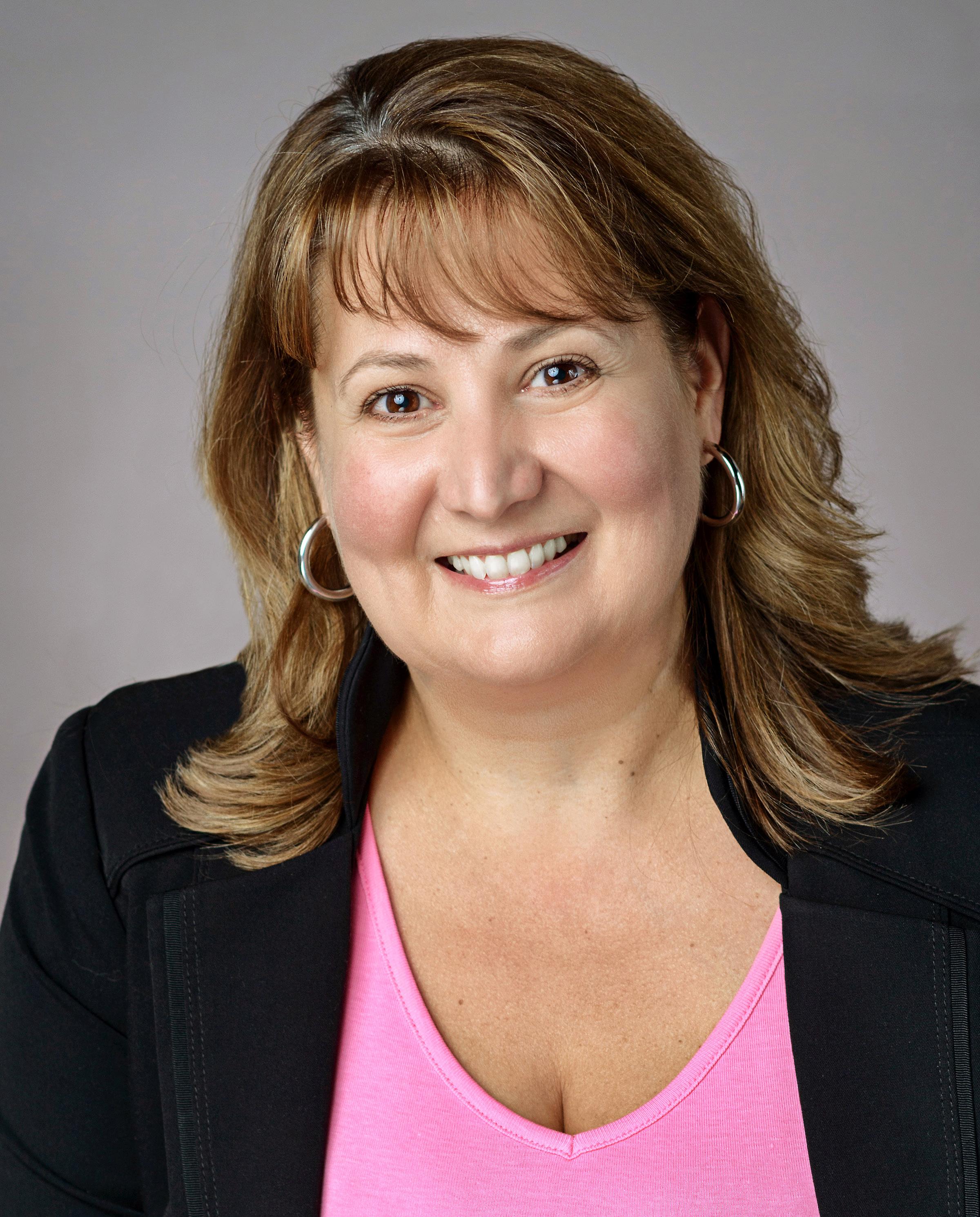 Michelle Randall-Berry Senior Director of Talent Acquisition International Game Technology
Michelle Randall-Berry Senior Director of Talent Acquisition International Game Technology
business unit,” Randall-Berry says. “It may not apply broadly, but we can get resources around it to ensure that we deliver and provide an excellent experience.”
Before joining IGT, Randall-Berry started her career in social work, then made the move to sales. She was then hired to sell recruiting services, which required her to learn more about the end-to-end recruitment process. She fell in love with recruitment, and she’s never looked back.
“This is what motivates me and what gets me up in the morning and I’ve just sort of stayed with it ever since,” Randall-Berry says.
She was actively recruited to join IGT. After learning more about the company, she was intrigued.
“What appealed to me about IGT is that it’s a company that was somewhat newly formed through the result of some acquisitions and is considered a leader in the gaming and entertainment space,” Randall-Berry recalls. “It was attractive to me in that it is a true global organization. It’s a role where I could look across geographies and really start putting together a talent acquisition center of expertise.”
In the two years Randall-Berry has been with IGT, she has helped to define the talent acquisition process and meet the expectations of the business leaders head-on. When
she thinks about how to attract talent from outside of the organization, she considers the company’s strengths and how candidates might fit in there.
“Leveraging our core competencies and our values as an organization is another great way to connect and assess our talent in terms of how well they are going to operate within our structure and within our culture,” she notes. “What makes someone successful at IGT is someone who is able take some time to learn about the company and understand how the organization came to be. We are always looking for the best talent.”
Assessing talent is also about forging connections. Randall-Berry notes that one thing she’s particularly proud of is that she and her colleagues have worked hard to embed equitable and inclusive practice into every step of the company’s recruitment process, including leveraging behavioral-based interviewing. She also relies on data and analytic tools to help her with hiring decisions, which IGT wasn’t yet doing consistently when she joined the company.
“Right now, we are working on strengthening our relationships with our DIGS (diversity and inclusion groups), looking at ways to leverage them to help us source and attract talent both internally and through the external channels of their
own networks and inviting them to come in,” Randall-Berry says.
For her own team, Randall-Berry looks for people who are not only passionate about talent acquisition but can also handle the roller-coaster ride of the job.
“You have to love the life cycle of being a recruiter, because while there are lots of ups, there are lots and lots of downs too,” she says. “You may get very excited when you think you’re close to an offer, but if something goes wonky, you could end up having to go back and start your whole search over again.”
The talent acquisition model is constantly evolving, and when Randall-Berry looks to the future, her thoughts turn to building workplace partnerships and pools where she is always recruiting.
“From a data and analytics perspective, what will be coming next is looking at and setting some KPIs with respect to how we’re looking at our hiring and candidate experience to ensure we are providing the best experience we can,” she says. “Something we are very passionate about is telling the IGT talent story and championing that in a way that’s meaningful—highlighting successes and accomplishments and making that more visible. We are a humble company in a lot of respects, but there are a lot of great stories we can tell.”
“Leveraging our core competencies and our values as an organization is another great way to connect and assess our talent in terms of how well they are going to operate within our structure and within our culture.”
MICHELLE RANDALL-BERRY
After years of declining sales, one of America’s most beloved brands was ready for a rebound. Veteran leader Denise Novey built a world-class tax function that helped breathe new life into the brand.
By ZACH BALIVADenise Novey didn’t panic when she finally saw the exact numbers. Although she was new to Tupperware Brands, the company’s challenges were known, and Novey understood throughout the hiring process the work she had to do to build a new corporate tax strategy. The company was in a leadership limbo. And there was a big need for the brand to make a change in how it does business to attract today’s consumers.
A number of factors sent Tupperware stock plummeting 40 percent, but Novey remained unfazed. After nearly thirty years in tax and accounting, she had seen it all before. As Tupperware’s new vice president of tax and government affairs, she was ready to help the iconic company rebound.
Six weeks after Novey started, Tupperware launched into a full-blown reboot. The board of the direct sales company named an interim CEO, board member Chris O’Leary, while the company performed a search for a permanent new CEO.
In April 2020, the board hired former Herbalife CEO Richard Goudis as executive vice chairman and hired past Avon President Miguel Fernandez to lead a turnaround as CEO and president. With the beginnings of a new executive management team in place,
Novey was asked to create a tax strategy to help the global company rightsize and chart a new path.
As the team huddled to develop new strategies, an emerging pandemic added to its problems. Tupperware relies on a network of two hundred thousand active sales members in North America and another three hundred thousand active worldwide to host the famous in-person Tupperware parties.
Novey and her colleagues immediately recognized the need to adapt and pivot. “We knew Tupperware was bigger than the results we were seeing, so we set out to strengthen our foundation and to do something new,” she explains.
Together, they decided to lead the way to expand consumer access to the Tupperware brand. First, the focus was on Tupperware’s passionate salesforce around the world and providing the innovative products and new digital tools its sellers need to build their personal businesses and succeed in the COVID era and beyond.
Second, the team began plans to extend the brand’s reach through new channels and new categories. Novey and her team worked with supply chain partners to ensure that the strategies the company was developing would cut down lead times and get products into customers’ hands faster while
“A hands-on tax executive has to bring value through the bottom line for the company and its shareholders.”
DENISE NOVEY
being financially efficient and driving value through the bottom line.
Her counterparts in IT and marketing helped promote virtual Tupperware parties. With more people cooking and eating at home, the company saw sales of its food storage containers and other products trend upward.
As engineers, designers, researchers, and marketers came together to modernize the brand, they decided to emphasize one important corporate value that appeals to today’s consumer—sustainability.
“We’re already helping customers transport food and reduce waste, but we wanted to take that even further by really leading in this space and doing more to limit the use of single-use waste and provide alternative, durable, long-lasting options,” Novey says.
In 2019, the company had started using polymers from recycled material to launch a product line called ECO+. In 2021, Tupperware became the first reusable plastic storage brand to partner with Loop, the zero-waste shopping platform.
As Tupperware evolves, Novey is resetting her tax strategy to align with the business. “A hands-on tax executive has to bring value through the bottom line for the company and its shareholders,” she says. “We have to retain funds we can reinvest in the business
Denise Novey VP of Tax & Government Affairs Tupperware Brands
and still be good corporate citizens by doing our part and paying taxes.”
It’s a balancing act, and one that Novey has mastered. She started as a tax analyst at Deloitte before moving to L3Harris. She spent more than twenty years helping the aerospace and defense company formerly known as the Harris Corporation grow into a global behemoth with fifty thousand employees and $18 billion in annual revenue. That’s where Novey learned how to build partnerships and thrive in uncertainty as she worked her way through numerous mergers and developed a mindset based on personal growth and constant improvement.
Partnerships are critical to success at Tupperware, and Novey had to rebuild her tax team from the ground up. Before Novey’s time at Tupperware, the tax department saw a period of time with no leader of the department. That, combined with the company’s challenges, led to talent turnover in the department prior to her arrival and created a decentralized team. Novey recruited regional leads, made hires in other key positions, and upskilled existing teams to give individuals the skills, support, and tools they need to be successful.
With the foundation of a world-class tax function back in place, she worked with finance, supply chain, and commercial business partners to roll out a new tax strategy and execute her part of Tupperware’s turnaround plan. Measures also included upgrading controls and implementing new, modern tools. “We can leverage technology to manage the daily work that happens in any organization of this size so we can be free to focus on value creation and strategy,” she says.
Part of that strategy lies in ensuring Tupperware is located and incorporated in the right parts of the world. After lengthy evaluations and months of talks with local governments, Novey advised the board to move its European headquarters to Lucerne, Switzerland. The move preserves Tupperware’s tax strategy, puts it close to the Zürich airport, and unlocks global talent pools.
It’s been two years since Novey arrived, and the numbers are looking much different. She’s reduced the company’s effective tax rate from 88 percent to 47 percent—and they aren’t stopping there, with plans for this year and next to be even more tax efficient as other pieces of the strategy plans are completed.

At the height of the pandemic, the company sold $146 million in North America alone and celebrated its best quarter in nearly twenty years. That momentum continued into the second quarter of 2021, when net sales increased 17 percent to $464.7 million and the tax rate was reported at a year to date of 35 percent.
By any measure, the Tupperware turnaround thus far has been a resounding success. The company continues to bring strategies to life to put the Tupperware brand in the hands of more consumers around the world to help them save time, money, and waste.
True Partners Consulting LLC: “I want to work with someone who is smart, fair and trusting—that’s Denise— and I really appreciate those qualities in her. Denise manages a complex department, large internal team and many outside consultants; all with grace. She is very deserving of this recognition. Congratulations, Denise!”
—Ron Tambasco, Managing Director“We can leverage technology to manage the daily work that happens in any organization of this size so we can be free to focus on value creation and strategy.”
DENISE NOVEY
When veteran human resources leader Jen Stoural shares words of wisdom with young professionals, she stresses the need to take calculated risks and pursue big dreams. In 2016, Stoural took her own advice. She left the Midwest, took a step down the career ladder, and moved into a new industry. She put it all on the line to join a brand called Smartsheet, and today Stoural is helping the high-tech software company focus on diverse and nontraditional talent as it pursues an aggressive growth strategy.
Stoural made the move in part because she was already a user and fan of the cloudbased Smartsheet platform, which allows employees and leaders to collaborate on teams, manage projects, and automate workflows. She was willing to go from a director of talent position in Omaha, Nebraska, to a recruiter role in Bellevue to work for a hot tech start-up poised to do big things in the Seattle market. Five years later, she’s the vice president of talent for Smartsheet.
Jen Stoural made a bold move when she left her industry to join a hot tech start-up—but the risk paid off, and she’s now helping Smartsheet thrive
Her background as an athlete helped prepare her to make the move. “I’m competitive, and I always want to be on a winning team,” she explains. “I saw Smartsheet doing great things in the software-as-a-service space, and I saw an opportunity to impact the talent and growth of the company.”
Smartsheet started in 2006 and introduced a key redesign in 2010 that helped attract more than one million users by the end of 2012. When Stoural arrived in 2016, she was employee 303; today, she has more than 2,300 colleagues and the company has more than nine million users.

A 2018 initial public offering (IPO) on the New York Stock Exchange put the company on a new path. Smartsheet raised $150 million in its debut, setting its stock price at $15 per share. While leaders had already opened a new office in Boston, the IPO brought Smartsheet greater attention and visibility. The company was the first in its category to
go public and its competitors took notice.
“We let others see our playbook while we were still running the play because we wanted to get out in front to gain an advantage,” Stoural says. The company later opened international offices in Sydney and London.
Today, Smartsheet is continuing its aggressive growth, but as the company matures, Stoural is adding discipline and structure to how her team of more than forty HR professionals attracts, hires, empowers, and engages new employees. She does that by letting the company’s newly defined values and competencies, like inclusion and continuous learning, guide her hiring process.
Smartsheet’s talent team will hire one thousand new people this year, and they’re taking a different approach from others in the space. “The war on talent is real, and it’s a candidate’s market. That means we have to know who we are as a company, and we have to rely on foundational talent,” she says.
“The war on talent is real, and it’s a candidate’s market. That means we have to know who we are as a company, and we have to rely on foundational talent.”
JEN STOURAL
While everyone in the space is going after the very top of the talent pyramid, Smartsheet is also focusing on attracting candidates from diverse and nontraditional backgrounds. “We want diverse talent to be our foundation to grow within tech and within Smartsheet,” Stoural explains.
The team works with leaders in all business functions to identify or create specific job functions where new, diverse, and nontraditional hires can receive special professional development opportunities. Important partnerships with community colleges, affinity groups, and organizations such as Computing for All and Power to Fly help Stoural and her teams build a more diverse talent pipeline.
In addition to making sure Smartsheet has the human capital it needs to reach its business goals, Stoural’s team is helping the company navigate the ongoing coronavirus pandemic. In the early days of COVID-19, she loaned recruiters to other teams and redeployed underutilized subject-matter experts to where help was needed most. She also pivoted to support a work-from-home model while introducing special features like “no red mic meetings,” where Smartsheet employees are encouraged to have authentic connections with one another.
While the pandemic has made things challenging for all businesses, Stoural has
found some new and unexpected opportunities in the midst of all the difficulty. Since interviewing and work have both gone fully remote, Smartsheet’s HR teams have removed the geographic parameters that once limited their candidate pool. The company can now consider candidates who were once excluded and thereby reach more diverse populations outside of its core offices in Seattle, Boston, London, and Sydney.
It’s been six years since Stoural came to the Pacific Northwest to help Smartsheet execute its plan. Since then, the company has gone public, expanded internationally, completed several major acquisitions, celebrated important milestones, and maintained its early momentum. Today, 80 percent of the companies listed on the Fortune 500 use Smartsheet’s products and services, and the company is recognized as being among the best employers in all of its active markets.
TalentReach knows your time is valuable in this challenging hiring environment. We invest in relationships with candidates and employers to create perfect matches between sales and tech talent and job opportunities in Puget Sound. From startups to the Fortune 500, your first step begins at talentreachnw.com. Talent is your company’s most valuable asset—invest in the best.
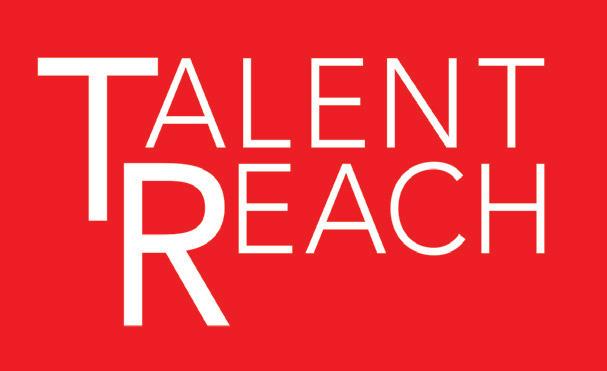
“I’m competitive, and I always want to be on a winning team. I saw Smartsheet doing great things in the software as a service space, and I saw an opportunity to impact the talent and growth of the company.”
JEN STOURAL
If you found yourself donning a trucker or newsboy cap in 2004, you’re probably already familiar with Brixton. The southern California-based apparel brand that was founded in the same year (named after the Clash’s song “The Guns of Brixton’’) was first put on the map by its headwear and partnerships with skate and surf companies Active Rideshop and Surf Ride
After expanding into flannel, jackets, and other apparel and accessories, Brixton was eventually acquired by Altamont Capital partners in 2014 with other big names in the skate and surf industry, like Billibong’s surf and Dakine’s windsurfing brands.
The strictly e-commerce and wholesalebased business opted for a refresh seventeen years into its existence with the creation of brick-and-mortar locations as well as a complete rethinking of its product line. In September 2020, Brixton relaunched its website, introducing new lines that include a “premium” brand utilizing premium fabrics.
Brixton’s first physical location was opened as a “test store” in Sydney, Australia, in 2019, and its success was followed by the opening of a store in its hometown of Oceanside, California. Two more stores came online in skate capital Encinitas and Long Beach, respectively, in 2020 and 2021.
“I always liked the fact that the brand felt like Southern California, but it didn’t feel like a surf brand or a skate brand,” CEO Raphael Peck told San Diego Magazine. “It felt like an Americana lifestyle brand. I love that differentiation, that toughness, that durability it had. There was a tremendous opportunity to get back to our roots, and I thought, ‘What does the physical manifestation of our brand look and feel like?’”
Peck has been looking for new ways to develop the brand, and along with finding a way to physically embody the Brixton brand, the brand itself has gone through its own evolution.
A new line called Crossover will be geared toward men’s technical wear. Another label, Reserve, is an elevated version of the brand’s Americana image (further underlined by key pieces of the line being crafted in the US).
With brick-and-mortar locations and multiple product lines, Brixton is more than just “that hat company”
By WILL GRANT
Brixton’s increasing interest in sustainability has led to the potential use of recycled fibers and hemp in its products. Select hats that include wool meet the Responsible Wool Standard for sustainability.


Brixton hats have been spotted on celebrities like Katie Holmes, Gigi Hadid, and Kaia Gerber, but the brand has pursued more formal partnerships as of late. The company collaborated with the Fender guitar company as well as the estate of Joe Strummer from the Clash, to whom the company owes its namesake.
The high-profile collaborations continue a trend of brand partnerships in the 2020s and have helped aid Brixton’s evolution from a purely skate and surf culture brand to a go-to for the casually fashion-conscious.
In addition to what Peck calls “friendly unions,” the company has further and multipronged plans for growth. Headwear still accounts for half of Brixton’s entire sales, split evenly between men’s and women’s fashion. On the apparel side, only 20 percent of sales are women’s fashion.
“But half of the consumers who visit our web site are women,” Peck told WWD. Focusing on that conversion will be a priority for the company, with additional emphasis on marketing to that segment.


If it seems like the guns of Brixton are firing on all fronts, that’s exactly the case. Perk says that there is no benefit to not growing both its wholesale partnerships with companies like Zumiez, Tilly’s, and Nordstrom as well as its direct-to-consumer plans. While stores continue popping up on the West Coast, the CEO sees opportunities to continue to grow its wholesale channel along the East Coast.
The outlook is good regardless of whether you’ve been a Brixton ride-or-die since 2004 or have only just discovered the brand. The company is determined to make sure they’re well-represented in the closets of both devoted skaters and the wanderlust-prone from here on out.





Innovative solutions. Engaged collaboration. Forwardlooking perspectives. It’s how Moss Adams bring West to business to help companies strategically navigate change and plan for what’s next. Discover how our industryfocused services can help move your business forward and seize emerging opportunity.

Guest Editor Susan Pikitch reflects on the evolving CFO role and the importance of being an advisor and educator to company leadership
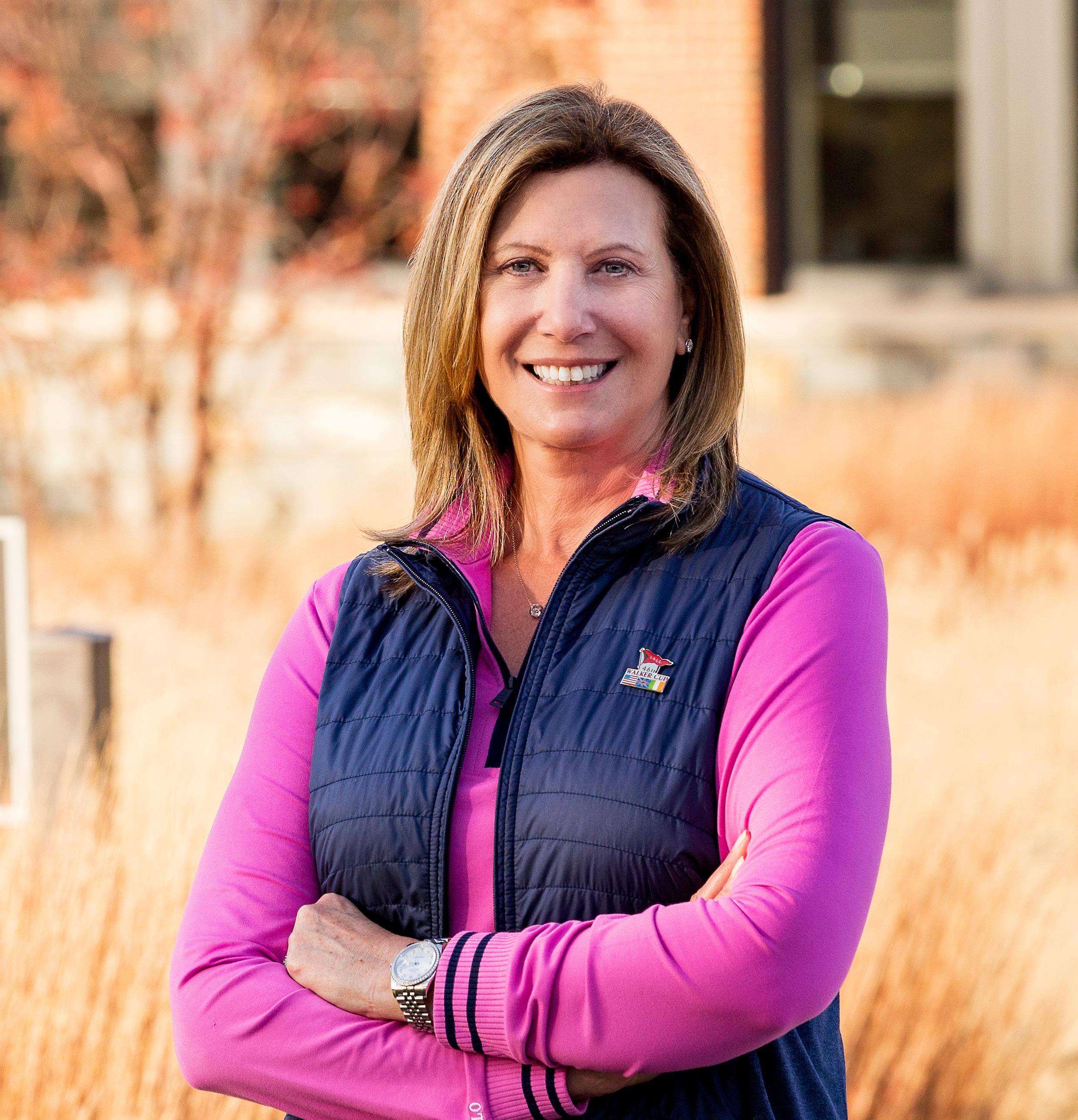 By BILLY YOST
Jonathan Kolbe/USGA
By BILLY YOST
Jonathan Kolbe/USGA
When Profile spoke to Susan Pikitch in late 2020, her year had already been turned entirely upside down. The COVID-19 pandemic had severely impacted many of the United States Golf Association’s (USGA) main revenue drivers for the year, with the organization having to postpone the US Open and the US Women’s Open and hold its championships without spectators. In addition, the USGA had to cancel ten of its fourteen national championships.
The chief financial officer has helped shepherd the USGA through one of its most complicated and stressful periods which allowed the nonprofit to support and grow one of the few sports that was safe to play during the pandemic, continuing to inspire and engage players and fans, both young and old.
Pikitch spoke with Profile in late summer 2021 about the evolution of the CFO role, the USGA’s ability to pull together in a crisis, and how providing sound numbers just isn’t enough anymore.
Having grown from an audit perspective, what has led to your evolution in financial experiences throughout your career?
Early on, I was really focused on precision and accuracy and what amounted to spending a lot of time looking in the rearview mirror.
One of the reasons I wanted to leave the audit function and take on more analytical roles
was that I wanted to be a bit more forwardlooking than reporting what happened in the past. I wanted to have the ability to positively influence the future.
Ultimately earning a role as the CFO of an organization, I’ve found that it’s more of an advisory position. There’s a huge importance around understanding the business and its core products and services, helping to shape strategy, and determining what the financial targets are.
When you’re assisting in whatever you’re doing—be it a budget, a forecast, a fiveyear plan, or strategy—you’re helping the individuals achieve [for example] that growth in revenue within the expected time frame and targets.
It’s not just about the numbers. It’s about achieving the objective in a way that you’re achieving the strategy while also having a financial mindset.
How has the evolution of the CFO role played out in your own career?
Earlier in my career, I think the finance function was viewed more as command and control. It felt like I was the “CF-No” as opposed to the CFO, because people would always expect you to say no to everything. You are almost a parental factor there.
Now, I’d rather be thought of as the “CFGo” and help figure out how to move the organization forward, as opposed to the
“Finance people are really great at identifying an issue. . . . But put yourself in the shoes of the people you’re trying to help.”
Susan Pikitch
“CF-No.” How do we enable the business to achieve its strategies, targets, and, in our case, our mission as a nonprofit organization? It’s even more important to not just keep our finances in order but also make sure that we’re deploying our funds and our investments in places that really have an impact outside of just what our internal targets are.
I’ve also seen my role evolve to be more of an advisor to the CEO and the executive leadership team. I try to act as an advisor and educator as opposed to a reporter. That’s just another filter I think about when I’m trying to provide input into a discussion.
What does it mean to be more than a “numbers reporter” for an organization?
Early in your career, you’re more focused about being precise and accurate and fulfilling your financial duties. But as you progress and grow through your career, those become table stakes. Everyone expects that to happen.
So how are you going to add more value than just providing a clear picture of where the numbers stand? It’s about helping the business understand why they should care by providing insights into the data. Make it
easier for nonfinancial people to interpret the data. Don’t just say, “the revenue was x.” That’s table stakes. Explaining why it was x and recommending actions to improve revenue or highlight risk is where you can add more value.
Finance people are really great at identifying an issue. We need more revenue, or we have to spend less, or you missed your budget. But put yourself in the shoes of the people you’re trying to help. How do I help you achieve your goal? I know you’re trying to maximize revenue, but you can’t spend more than the revenue you’re bringing in. So how can I help you think through a way that will get you the results you want, but you’re also achieving the financial targets of the organization?
What are some of the challenges of adding value to a nonprofit like the USGA at such a difficult time?
The key words that come to mind are agility and flexibility. We had prepared a budget— but then March 2020 came and it became clear that that’s not what was going to happen. Being able to do on-the-fly scenario planning and work through all the new complications was critical.
We are traditionally a very well-oiled machine, but we had to rethink a lot of our approaches. How do we hold our championships safely and differently under this environment? Leadership had to be flexible, and finance had to provide support, and really roll up our sleeves and help figure out new solutions. I’ve never seen our leadership team pivot so hard and work so well together than I did during the pandemic.
Most of our revenue is event-driven, and we were only able to hold four of our twelve championships. We had financial reserves and insurance policies that we had the foresight to secure years ago, which could sustain us, but we also wanted to be able to continue to carry out our mission of championing and advancing golf through programs that grow the game and make it more accessible to everyone no matter their background.
We also didn’t want to let our championship entrants down. Qualifying to play in a USGA national championship is a difficult feat and can be life changing. We wanted to help keep people’s dreams alive during such a difficult time. With solid planning, we were able to fulfill these goals and keep our core stakeholders happy and afloat during an otherwise trying time.
“I’d rather be thought of as the ‘CF-Go’ and help figure out how to move the organization forward, as opposed to the ‘CF-No.’”
Susan Pikitch
 Susan Pikitch
CFO
United States Golf Association
Susan Pikitch
CFO
United States Golf Association
Stephanie Lepori has established an exceptional career for herself in the gaming industry, her path began with a pretty safe bet.
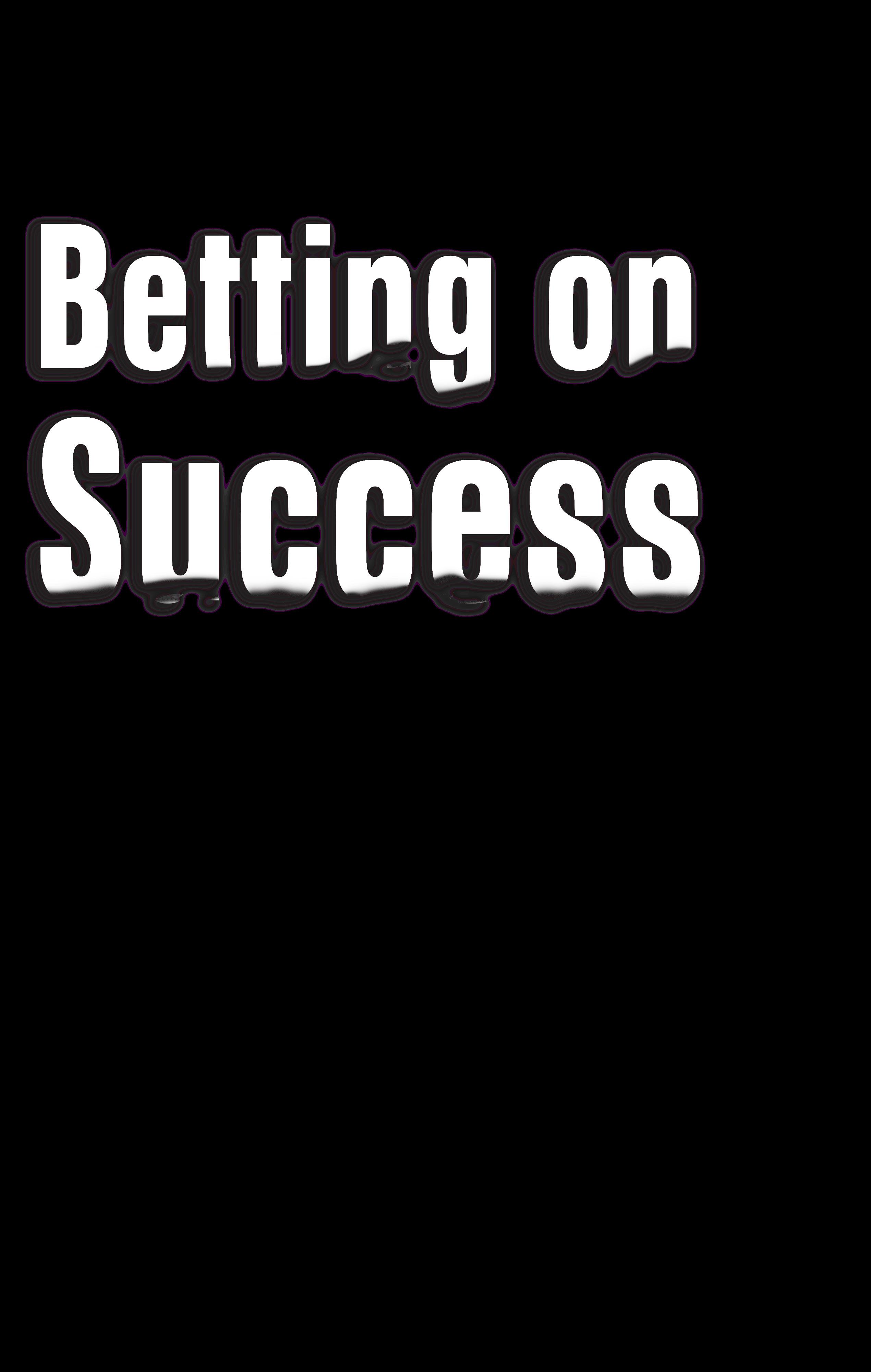
Lepori grew up in Reno, Nevada, and headed for California to attend the University of Southern California. She considered

Lepori encouraged her passion for accounting, and she graduated with the goal of joining one of what were still known then as the Big Eight accounting firms. “Which tells you how old I am,” Lepori jokes. “They were heav-
office in Los Angeles after graduation, but it was her experience growing up in Nevada, where gaming is a major contributor to the economy, that helped her find her area of expertise.
for people who were interested in gaming and had experience. The Vegas office was growing quickly. While I got hired in LA, I started spending time in the Vegas office. A lot of partners were moving there, and they asked

Accounting has turned out to be the ideal path and passion for Lepori, who notes that accounting has elements that a lot of people don’t realize when they embark in the profession.

nal customers and working together to add value to the operations.”
In 1995, Lepori joined Eldorado Resorts during the beginning of its joint venture with Circus Circus in building Silver Legacy

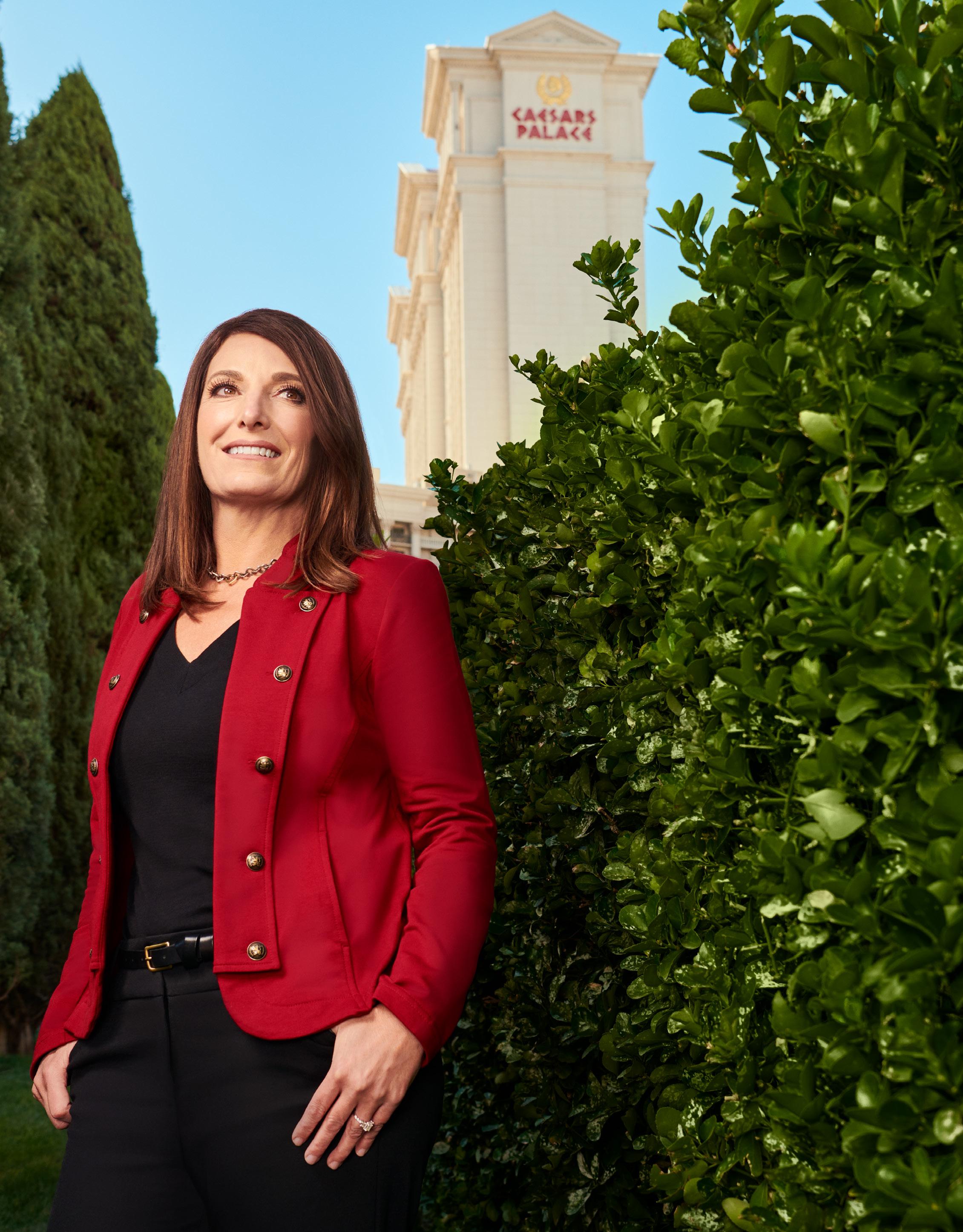
“[Accounting is] really about understanding the business and your internal customers and working together to add value to the operations.”
Stephanie Lepori
Stephanie Lepori Chief Administrative & Accounting Officer Caesars Entertainment
Casino Resort in Reno. That gave her the opportunity to work on a project from the ground up, and she had experience with both companies as she had worked with both Eldorado and Circus Circus during her tenure at Arthur Andersen.
“At that point, I was appreciating the mountains and all that Reno has to offer, the ease of commute, housing, the lifestyle, great location to raise children,” she remembers. “So I moved back up to Reno and have been with the company ever since. It’s been an extraordinary growth story we’ve had for over the past seven years since going public in 2014.”
She has played a pivotal role in that growth, including during Eldorado’s acquisition of Caesars Entertainment Corporation, which was completed in 2020 during the pandemic and has led to her current role as chief administrative and accounting officer at Caesars Entertainment. When she started with Eldorado, the company had one and a half properties. That number now stands at fifty-five with the Caesars acquisition.
“Stephanie is an exceptional leader who we have had the pleasure of working with for over a decade,” says Ryan Cupersmith, global gaming industry leader and managing partner at the Ernst & Young Las Vegas office. “She is the consummate professional and an amazing asset to both Caesars Entertainment and the gaming industry.”
One project she has been involved with is the implementation of new human capital systems.
“What was interesting with the Caesars acquisition was that we thought we’d be walking into this amazing environment of technology and very mature, robust systems,” Lepori says. “While they’d been on a great journey with the Oracle platform, they hadn’t fully implemented their human capital systems. Today, we’re on a project plan to go live January 1, 2022, with one full integrated human capital management system all across the enterprise.”
That, she explains, provides better visibility into management of the workforce, better reporting, and a much-improved team member experience.
Juergen Lindner, senior vice president and global marketing leader for ERP at Oracle,
“We think there’s pent-up demand from customers who have been stuck at home and want to get out, and gaming, combined with all of the amenities our properties have to offer, is a great option for entertainment.”
Stephanie Lepori
That’s because 70% of Las Vegas Strip hotels and casinos use Oracle Cloud ERP to innovate and drive growth. Learn more at oracle.com/gaming





notes that Lepori is a stand-out chief accounting officer at Caesars. “Stephanie’s guidance continues to be essential to ensure a successful integration between Oracle Cloud ERP and cloud HCM solutions,” he says. “With her track record, my bet is on Stephanie.”
Lepori has a lot of experience in mergers and acquisitions, but 2020 presented an interesting challenge. “Obviously, it’s been a roller coaster for us,” she observes. “Every casino and business unit in our enterprise was shut down beginning in March [2020].”
The COVID-19 pandemic was especially impactful on casinos, which are 24/7 businesses. “It was shocking and created a lot of stress for everyone involved and then you throw in the work related to a huge acquisition in the midst of that,” she adds.
Lepori says the company’s focus was on keeping customers and team members safe while navigating the different rules each state implemented regarding openings, masks, and social distancing. She adds that Caesars also learned things from the pandemic that will benefit the organization long-term.


“We’ve learned to become more efficient. We, along with our vendors and regulators, have become a little more nimble and creative. Everyone has been great partners in getting where we are,” Lepori says. “We think there’s pent-up demand from customers who have been stuck at home and want to get out, and gaming, combined with all of the amenities our properties have to offer, is a great
option for entertainment and doing all those things people haven’t been able to do for quite some time.
“We’re excited about where we’re going, although there are still some challenges,” she continues. “But I think we’re on the back end of it with the vaccines coming out.”
One aspect of business that is becoming more common is moving toward a cashless environment, because the pandemic encouraged people to try to new technologies.
“To the point of innovation, some parties were a little hesitant before to adopt new technology,” she notes. “But now I think everyone, whether it’s the manufacturers or regulators or operators, everyone is excited about cashless opportunities. While it may have been accelerated due to the pandemic and efforts to avoid touching cash, it’s a more efficient way to operate and customer friendly.”
Lepori is dedicated to giving to others by sitting on the board of the Boys and Girls Club and to supporting organizations that encourage women in the accounting and other professions. “Those are the two areas that are near and dear to me,” she notes. “Children because they’re our future and then organizations that provide support and access for women that might not otherwise be there.”
And Lepori certainly has the experience and knowledge that can inspire other women to reach the heights of the accounting profession.
I can relate to Stephanie Lepori’s story and also see similarities in many of features in this issue. Acquiring an accounting and/or auditing background early in your career lays such a solid foundation for so many future roles, both in and outside of the pure finance track. If you want to be effective as a business leader, understanding the business fundamentals is essential. And the numbers tell the story. If you are intellectually curious, as Stephanie is, you get underneath the numbers to understand the key business drivers. Next, you put in systems, processes, and teams that are necessary to create efficiencies and enable analysis and workflow that are leveraged by the entire organization.
Michael Rudin/Caesars Entertainment Jennifer McCalman Chief Accounting Officer The Hershey Company
Jennifer McCalman Chief Accounting Officer The Hershey Company
There’s always room for improvement at the Hershey Company. In Jennifer McCalman’s eyes, that’s a good thing.
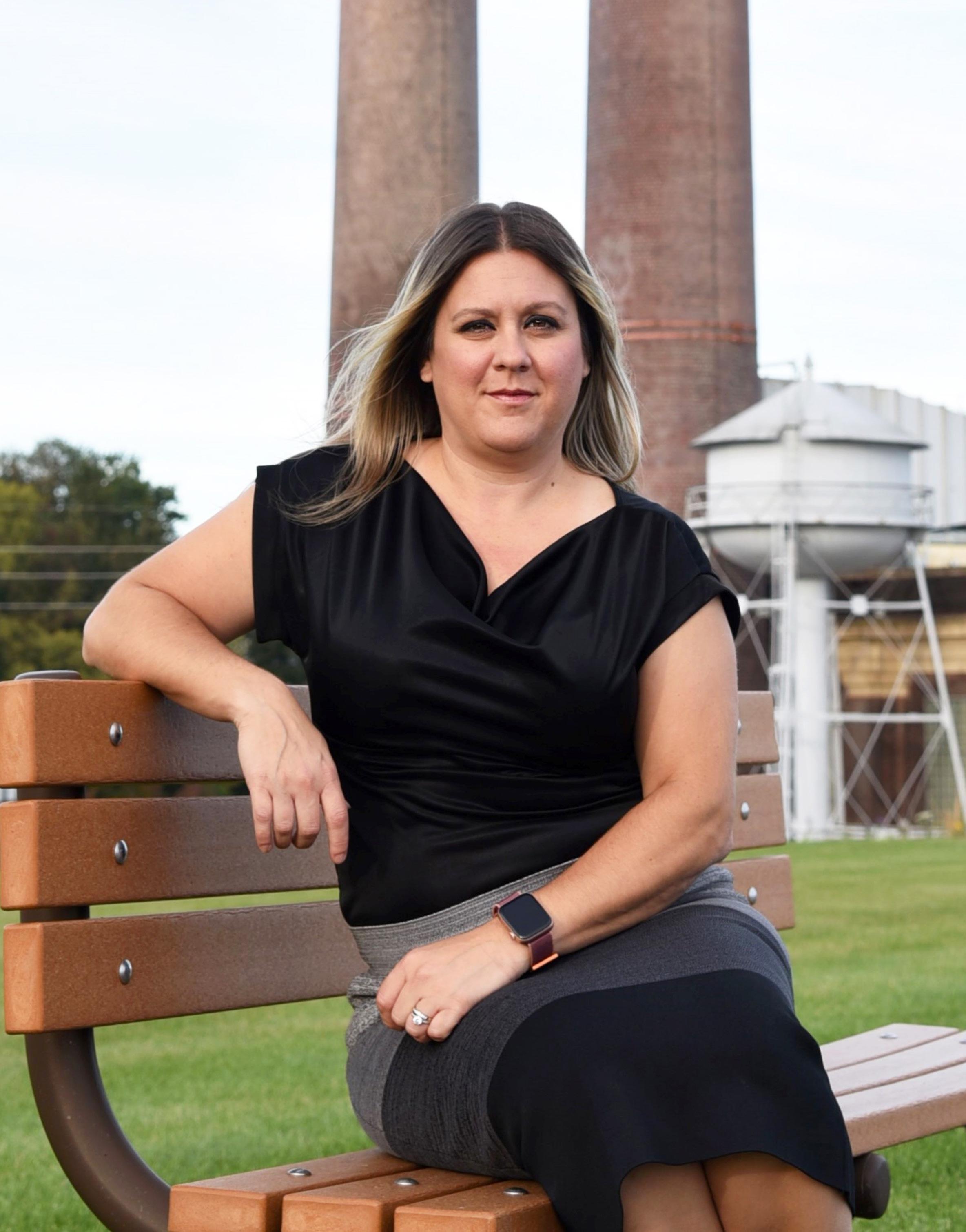 By NATALIE KOCHANOV
Brandon McCalman
By NATALIE KOCHANOV
Brandon McCalman
With an accounting career that has taken her from company to company and state to state, Jennifer McCalman is no stranger to adaptation. Her comfort with change is just as apparent in her passion for process improvement.
“It’s foundational,” she says of the practice. “For someone to be in a role within accounting or finance or almost anywhere these days, you have to be thinking process improvement. And that’s because the world is continuing to evolve.”
McCalman keeps her sights set squarely on the future in her current role as chief accounting officer at the Hershey Company. She aligns new initiatives—from the implementation of enterprise resource planning (ERP) system SAP S/4HANA to a total finance function transformation—with the chocolate manufacturer’s broader vision for strategic growth.
Even as she heads up years-long projects, however, McCalman makes a point of maintaining close contact with her team and other colleagues across the organization.
It’s her personal way of fostering a company culture where people come first.
Like many accountants, McCalman got her start in public accounting, in her case at PricewaterhouseCoopers out of Pittsburgh. She became a certified public accountant and gained practical experience in the audit space before relocating to Georgia, where she joined Scientific Games, a company specializing in gaming and lottery products.
Not long into her tenure, she facilitated the transfer of functions and responsibilities from a Delaware office down to her local office—an endeavor that taught her how to interpret and recreate processes.
During her seven years at Scientific Games, McCalman developed as a finance professional, as a leader, and as a person. Outside of work, she married her now husband and started a family. “I was getting promoted while I was six months pregnant,” she says. “I felt really supported at that company.”
McCalman’s husband was, and still is, another source of support, especially when
“For someone to be in a role within accounting or finance or almost anywhere these days, you have to be thinking process improvement. And that’s because the world is continuing to evolve.”
Jennifer McCalman
it comes to taking care of their two children. Her husband took care of the home front, and she didn’t have to worry about those tasks when she came home. “I never felt like work was cutting into family time, and it allowed me to enjoy that time and balance everything,” says McCalman, who has been able to thrive in her career.
In late 2011, the family moved to Vermont so that she could take an assistant corporate controller role at Green Mountain Coffee Roasters, now part of Keurig Dr Pepper Inc.

“I had to figure out what my role was in that organization and how I was going to be able to create value. I found that the more I paid attention to what people’s goals were, the more I could lean in and help them achieve those goals,” she says. “Over my time there, I learned to embrace process improvement and process optimization. I was always looking for ways to make things easier for the team members.”
McCalman carried that mentality with her to Hershey, where she is currently in the midst of a major ERP system upgrade to SAP S/4HANA. “It’s one of our biggest projects in quite some time. I’m leading our finance
team through it, so I’ve been able to dig into all the various areas that affect our financial results,” she says.
“Workiva is proud to help leaders like Jennifer McCalman simplify finance transformation initiatives,” says the team at Workiva. “Teams can connect data from systems like SAP S/4HANA directly to reports, freeing up time for higher-value tasks and supporting high-velocity decision-making.”
Through her digging, McCalman identified further areas for improvement, such as a complex web of legal entities that is also undergoing simplification. But that’s not the only change that she initiated.
“Early on in the S/4HANA program, I realized that there was an opportunity for us to transform our finance organization along with this project. The focus is to lean into our operating model and our organizational structure around finance to make sure that we’re setting ourselves up for our growth plan and our strategy as an organization,” she explains.
For the finance transformation project to succeed, talent development efforts must scale to match the project’s demands. Fortunately, Hershey prioritizes employee train-
ing and education as part of its people-first culture, which McCalman believes shines through in the company’s high engagement levels and longstanding emphasis on diversity and inclusion.
“It’s been an initiative of the Hershey Company for a really long time to put people first in the way that the organization operates,” she confirms. “From our CEO down, everybody in this organization understands that we would not be where we are without the talent that we have.”
For her part, McCalman contributes to the collaborative environment at Hershey by building strong relationships with her colleagues at all levels and remaining accessible by way of frequent one-on-one conversations. “I really enjoy getting to know my team members, and I like to empower them as well,” she says.
At the heart of this empowerment, as with every other aspect of McCalman’s work, is the idea of process improvement. “Process improvement is a critical mindset and a critical skill set, and it’s something that you really only get through experience,” she says. “I want my team members to come up with ideas and put them into action.”
Jennifer McCalman leveraged her accounting and audit background and vast work experience to identify bottlenecks and inefficiencies and to implement new processes and systems. She’s also empowered her teams and demonstrated the importance of relationship-building. This is the formula to be an outstanding business partner, as well as building future business leaders.
“Process improvement is a critical mindset and a critical skill set . . . I want my team members to come up with ideas and put them into action. ”
Jennifer McCalman
Workiva Inc. (NYSE: WK) simplifies complex work for thousands of organizations worldwide. Customers trust Workiva’s open, intelligent, and intuitive platform to connect data, documents, and teams. The results: improved efficiency, greater transparency, and less risk across financial and regulatory reporting, management reporting, ESG disclosures, financial planning and analysis, and governance, risk, and compliance. Our hardworking platform automates repetitive tasks, orchestrates workflows, and turns your data and reports into reusable assets. Leaders rely on Workiva to radically transform the way work happens across the organization. Learn more at workiva.com.

“From our CEO down, everybody in this organization understands that we would not be where we are without the talent that we have.”
Jennifer McCalman
Brandon McCalman
Shift4’s CEO Jared Isaacman was off earth for a few days. In a collaboration with SpaceX and in efforts to raise over $200 million for St. Jude Hospital, the thirty-eight-year-old founder (who already set a world record for circumnavigating the earth in a light jet in 2009) set his sights a little higher. Literally.
As mission commander, Isaacman and three other members of the Inspiration4 team (including childhood bone cancer survivor Hayley Arceneaux) became the first all-civilian crew to ever orbit the earth on September 15, 2021. They landed safely in the Atlantic Ocean three days later.
Stephanie Jo
“Jared [Isaacman] wants to test limits. It’s just who he is.”
Gail MillerGail Miller Chief Accounting Officer Shift4
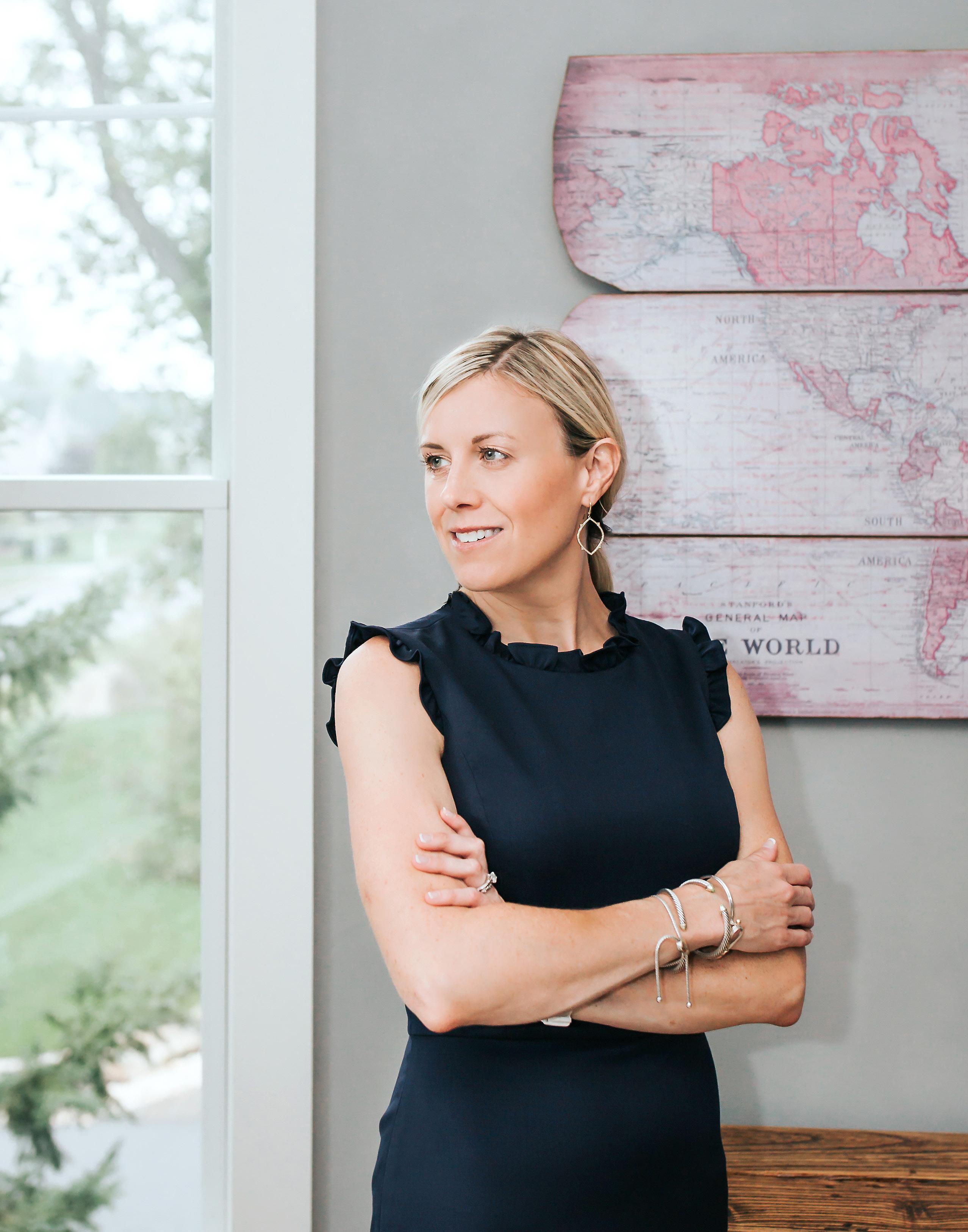
We
When
Because,
“Jared wants to test limits. It’s just who he is,” says Gail Miller, chief accounting officer at Shift4. “This company has an amazing story, and it just keeps growing.”
Shift4 was founded by Isaacman in 1999, when he was only sixteen years old. The provider of integrated payment processing and technology solutions now helps power over 350 software providers across industries including hospitality, retail, and gaming.
The company has grown through multiple acquisitions and went public in June 2020. It has continued an unprecedented expansion that, Miller says, is at the heart of the Isaacman’s desire to ultimately take on mainstay financial and digital product and service payment companies like Stripe, Adyen, and Toast.







But before the incredible expansion, Shift4 had to learn how to grow.







Miller had amassed significant previous experience at Rodale and had helped Western Union spin off from First Data, but she needed her entire accounting prowess to help align Shift4’s vision with its reality.
“I knew I was entering a hypergrowth company, but the reality was that we were on QuickBooks with very little defined processes or controls,” Miller recalls. “We needed to implement a formal accounting system with clearly defined processes for balance sheet reconciliation and flux analysis.”


As Shift4 continued its rise, the ground was laid for an IPO, but COVID-19 required significant tinkering. “I don’t think I slept for two months,” Miller says, laughing but quite serious. “It was all hands on deck, and that’s just Jared. It’s not surprising because it’s just a sign of how driven and motivated he is to grow this company he’s created.”
Coming out of a monstrously successful IPO, most companies would try to get a lay of the land before proceeding forward, but not Shift4. The company went forward with two follow-on offerings, two debt offerings, and two acquisitions within months of going public.
In just five years, Miller’s team went from three people to nearly thirty.
“As Shift4 evolved, Gail strategically aligned her team to be in position to achieve the overall growth goals of the organization,”
At Centri, we're advisory experts who will help you navigate the financial needs of your business, as we work alongside your team to enhance the finance and accounting functions of your organization.


“I want to give people opportunities, whether that be managing other teams or moving them into different areas they’re interested in.”
Gail Miller
says Tori Jancovic, director of accounting and audit support practice at Centri Consulting. “She is an empowering leader and earns her team’s respect by providing opportunities for professional growth, and consistently leading by example.”
Widening the Outlook
Miller says the hypergrowth and acquisitions necessitated a very serious reorganization that wasn’t just the product of recent acquisitions but also the growing pains of a company.
The management team had begun switching out with more talent from public companies prior to its IPO. After a new CFO was installed, Miller was promoted to chief accounting officer. “I want to say that I wouldn’t have gotten here without Brad [Herring],” Miller says. “He recognized what I was bringing to the table and pushed for me to be here.”
Following the acquisitions, Miller describes an essential reorganization that required everyone to reinterview for their jobs. “To be frank, there were some highly paid individuals on my team that were not high performers,” she explains. “Letting
one person go freed up room for multiple positions to get some fresh blood here.
“I can’t tell you what it’s done for this team,” she continues. “It was a very tough position to put people in, but I knew that it would ultimately benefit everyone that is here.”
Miller’s push for new and diverse talent isn’t new. Her passion for diversity and inclusion is informed by the fact that she’s the sole woman on Shift4’s executive team. Being the sole woman at the table can certainly provide feelings of isolation, but Miller says the growth the company has undergone in prioritizing more diverse prospective talent has been profound.
“There are five qualities I look for in my team,” Miller explains. “Humility, empathy, self-awareness, hunger, and intelligence. They’re all interconnected but are so vital to being successful on this team. I want to give people opportunities, whether that be managing other teams or moving them into different areas they’re interested in.”
“It’s been a wild ride and it is just getting started,” she adds, “and I’m so happy where we are right now after the last five years.”
One of Gail Miller’s passion projects at Shift4 is the philanthropic arm of the company, Shift4 Cares, which has benefited large organizations like St. Jude Children’s Research Hospital as well as local nonprofits in Shift4’s own backyard in Pennsylvania’s Lehigh Valley. Miller’s friend runs the Blessings in a Backpack nonprofit that provides weekend meals for foodinsecure children who might not have access to full meals until they return to school the following week.
“We’ve talked about potential fundraisers and events we can have, and I’m excited to move forward because it’s something I’m so passionate about,” Miller says. “I’m working with our HR team to figure out how we can get fully aligned to better support organizations like this that are doing such valuable work in our own communities.”
Thoughts from Guest Editor
Susan PikitchGail Miller exemplifies the importance of high-performing talent, especially in a company experiencing “astronomical” growth. First, her talent was recognized and leveraged, which gave her the platform to put a solid foundation in place for the company to grow. Second, she realized early on the importance of building a passionate and diverse team that was up for the challenge—and exiting those who weren’t. Third, she continues to provide challenges and opportunities for her team to grow. Keep it up, Gail!

Jason Vlacich, with his hospitality accounting expertise, proved to be Target Hospitality’s key ingredient to increasing capitalization via an IPO for the small cities that it builds
By RUSS KLETTKEJason Vlacich, chief accounting officer of Target Hospitality, is in the business of hospitality services. His company, which provides vertically integrated specialty rental and comprehensive hospitality services including catering and food services, maintenance, housekeeping, grounds-keeping, security, health and recreation services, overall workforce community management, and laundry service , is done on a massive scale and generally not in proximity to traditional municipal services.
“We build small cities in the middle of nowhere,” says Vlacich of the business, based in Woodlands, Texas, near Houston.










The chief accounting officer keeps an eye on cost structures and revenue streams, as well as how to build, run, and potentially move a temporary city at a profit. Target Hospitality completed a successful version of an IPO (an initial public offering, done via a reverse recapitalization) in 2019 that not only helped the company grow, but also met one of Vlacich’s career goals.





His background in accounting followed a somewhat nonlinear path that had him cycling in and out of a Big Four accounting firm and alternately working on the client side of things. At Target Hospitality, this résumé has proven helpful.
Understanding what Target Hospitality does explains its attractiveness to investors. The company sets up mini cities that it


refers to as its “lodge network.” The largest example of these is a cluster of roughly nineteen communities in the mostly rural areas of west Texas. With more than six thousand beds across these communities, the company provides a turnkey operation for companies that need to attract skilled workers who come from somewhere else. A similar network is concentrated in North Dakota.

These kinds of developments are built quickly, but go beyond providing simple shelter. Target Hospitality offers its customers a more thoughtful and strategic approach that prioritizes occupant health and well-being. This includes connectivity (i.e., dependable Wi-Fi), wellness (healthy foods and recreation), community (common areas for dining and sports), and various hospitality services. The net effect is higher employee retention and a more productive workforce.
The company also provides facilities to support humanitarian aid efforts— including one with four thousand beds—as part of a lease and services agreement with a leading national nonprofit organization, backed by a committed United States government contract, to provide a suite of comprehensive service offerings in support of their humanitarian aid efforts.

Vlacich previously worked in a hospitality investment and management company for six years, which expanded his experience in




“With exciting growth in this business, and the diversification, we can also make continued improvements on the accounting side processes.”
Jason Vlacich
that sector of the industry. With locations distributed around the US and Europe, Vlacich had approximately two hundred site accountants and approximately sixty corporate accountants ultimately reporting to him. He was able to retire an antiquated accounting system, engaging the Oracle Fusion Cloud to modernize and streamline the operation.
That was in preparation for a planned IPO, but the company ultimately didn’t go public. “This is when I decided to join Target Hospitality,” Vlacich recalls. “It looked more likely they would do an IPO.”
That was in 2018, and by 2019 Target Hospitality went public by way of a reverse recapitalization, also known as a SPAC IPO: the acquisition of a private company (Target Hospitality) by an existing public company (Platinum Eagle Acquisition Corporation).
Vlacich says shareholders of the parent company, which has been renamed Target Hospitality Corp. and is listed on the NASDAQ exchange, approved it for several reasons.

“There were a number of hedge funds involved,” he says. “They are sophisticated investors who were attracted to the merger [due to] our cash flow, our margins being about double of those of traditional hotels, [us owning] the assets (compared to other managed only hospitality companies), our high growth rate, and [our] impressive management team with long tenure in the business.”
Vlacich cites his streamlined accounting function as his value to the company, which keeps various external and internal stakeholders informed with timely, responsive, accurate, and complete financial information delivered with high efficiency. The pivot from a manual to cloud-based system helped match Target Hospitality’s growth and automated many processes; the close to full reporting process dropped from more than thirty days to fewer than ten.
The company now outsources certain mundane and repetitive tasks—such as accounts payable, journal entries, reconciliations, and cash application of accounts receivable—to vendors. “This helps our core team to focus on review and analytics,” Vlacich observes.
Having financial information at the employees’ fingertips and being able to perform those analytics in a nimble fashion mirrors the flexible and adaptive nature of Target Hospitality’s business overall. The ups and downs of the industry can sometimes demand it—allowing those remote facilities the ability to be dismantled and moved elsewhere—while emerging needs for remote comprehensive hospitality services offer new opportunities.
“I enjoy hospitality services,” the accounting chief says. “With exciting growth in this business, and the diversification, we can also make continued improvements on the accounting side processes.”
Timely and actionable reporting and analysis in a distributed, cloud environment is a key ingredient in the hospitality business, and Jason Vlacich put in the processes, efficiencies, and infrastructure to make it happen in a world-class way.
“[Streamlining accounting has helped] our core team to focus on review and analytics.”
Jason Vlacich
It’s an incredible time to be at RingCentral. As businesses, companies, and enterprises reimagine the workplace, communication takes center stage as the bridge that connects humans to one another. By offering multimode cloud communications and collaborations solutions, with its industry-leading MVP (Message, Video, Phone) offering, RingCentral is at the forefront of this transformation that enables anyone to truly work from anywhere. The opportunity to join a purpose-led organization in addition to the potential for hyper growth is what brought Senior Vice President and Chief Accounting Officer Vaibhav Agarwal to RingCentral. In his role, he leads the global accounting and finance
“I am here because people gave me opportunities. I want to make sure that everyone who works with me gets the same opportunities I did.”
Vaibhav Agarwal
operations and plays a key role in setting the company’s strategy and priorities.
Agarwal believes that leadership comes only with a change in the status-quo mindset and his personal experiences influenced his strategy of building a scalable finance function.
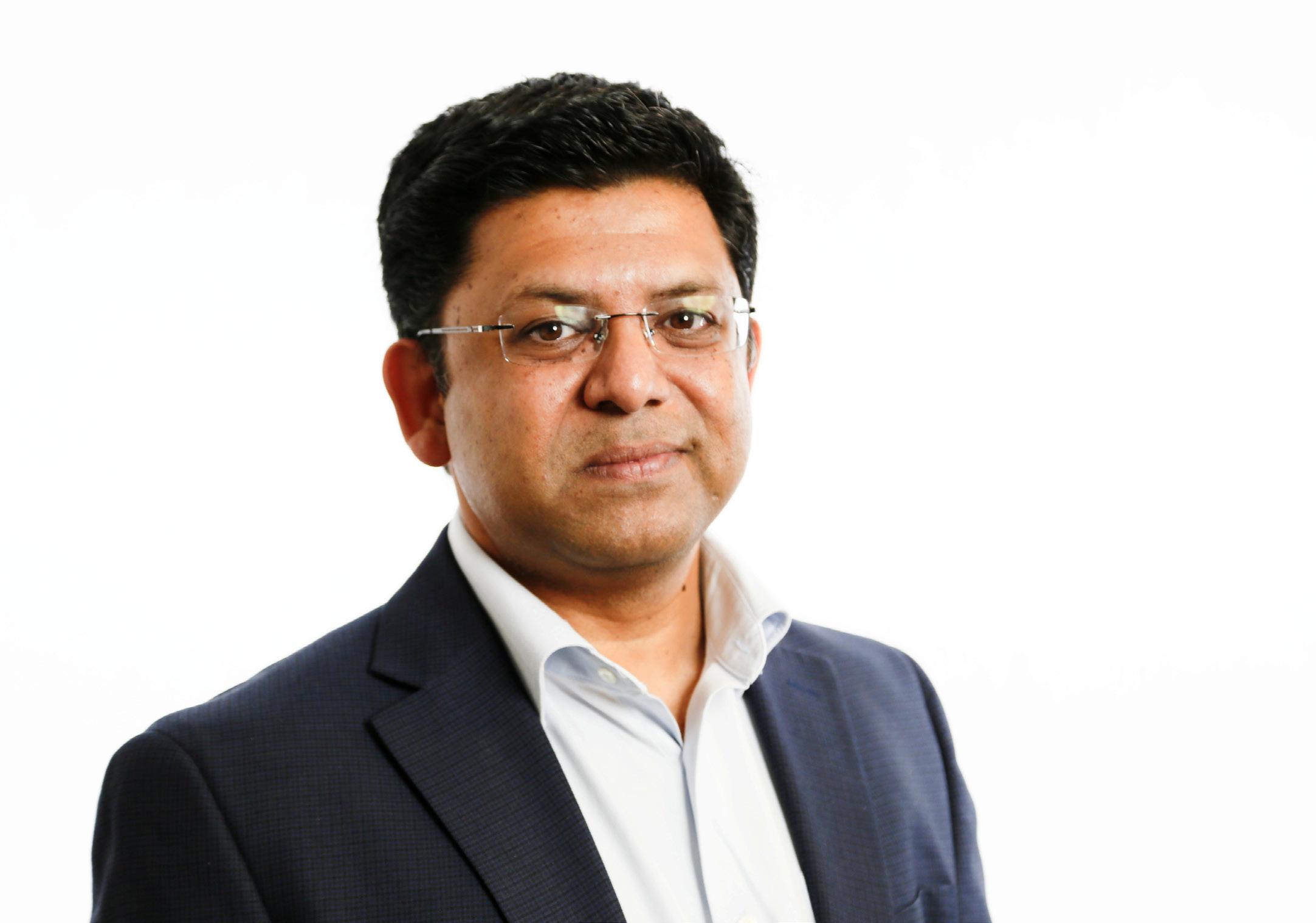
“As Simon Sinek would say, ‘You don’t hire for skills; you hire for attitude. You can always teach skills.’ This seemed to explain my approach to hiring,” Agarwal says. “We focus on hiring people with a shared vision and growth mindset. We want to hire people with relevant experience, people who can grow and scale the company, who will have
problem-solving skills and the passion to drive outcomes.
“Once you hire the right people, it’s also about empowering them to do their job right,” he continues. “As a leader, the best thing you do is unleash them and help remove roadblocks. You let them shine and the business outcomes take care of themselves.”
Building and maintaining a highperforming finance team in the Bay Area is about as competitive as it gets. But Agarwal says it’s the opportunities and flexibility at RingCentral that have helped set a standard for forward momentum in the space.
“We are laser focused on helping people grow and develop in their careers at
RingCentral. I want RingCentral to continue being a place where people can come in and do their best work while still learning and having avenues for growth,” he says.
The chief accounting officer recounts several examples of finance professionals who wanted more experience in different areas and were able to thrive in roles that would have been hard to come by in other organizations.
“I am here because people gave me opportunities,” Agarwal explains. “I want to make sure that everyone who works with me gets the same opportunities I did. People are not motivated by money alone—they also want to work in an environment where they feel acknowledged for their work and feel a sense of accomplishment.”
Additionally, Agarwal says, it’s imperative to recognize great performance. “I believe very strongly in letting people know that they’ve done great work and giving credit
where credit is due,” he notes. “In my mind, there is no greater motivation for people than recognition.”
Agarwal’s last piece of advice is an adage, which he truly embodies but it still seems like the hardest to follow for most of corporate America. The role of a leader is very simple: hire people with a great attitude, set direction, and then move hurdles. “Often, leadership can result in a paradox,” Agarwal says. “To lead, you must, at times, be led by your people.”
Finance at the Table
Agarwal says part of his own success at RingCentral can be attributed to the company’s intentionally prioritizing finance in larger strategy and planning. Agarwal attributes this to CFO Mitesh Dhruv, who has provided finance a more prominent seat at the strategic table than he was typically used to.
His own leadership is a vital part of finance’s success at RingCentral and why the team is so valued at the company. “I believe it’s called ruthless prioritization,” Agarwal says. “You have to identify where you can make the greatest impact for the company and approach it with a laser focus on execution.”
“The level of engagement here is very different,” he continues. “We’ve cultivated a reputation as strategic enablers, and not the clichéd ‘naysayers’ reputation that lands on a lot of finance people.”
Since Agarwal came to RingCentral, its market cap and revenues have increased tremendously. RingCentral now has revenues of more than $1.5 billion and is helping chart the next definition of “going to work.” It’s an extraordinary time to be a leader at RingCentral, and Agarwal wants to make sure that his team is growing in as many new ways as RingCentral itself.
“I believe very strongly in letting people know that they’ve done great work and giving credit where credit is due. In my mind, there is no greater motivation for people than recognition.”
Vaibhav Agarwal
Thoughts from Guest Editor Susan Pikitch


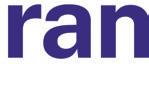
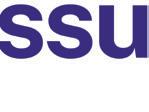





























You are not just given a seat at the table; you must earn it. And Vaibhav Agarwal has. He challenges the status quo and advises leadership, not only on what to do, but also, what not to do. His strategic mindset, coupled with a keen eye for talent and a laser focus on execution, has given the finance organization at RingCentral a valued seat at the table.
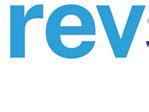
Synthesis Systems: “Vaibhav is a visionary and a critical constituent in our engagements with RingCentral. It was great to experience firsthand his collaborative leadership style and ability to develop transformational ideas to effortlessly deliver value throughout the company. He’s a true partner advocating for both RingCentral’s and Synthesis’ mutual success.” –Ravin
Checker, CEO“You have to identify where you can make the greatest impact for the company and approach it with a laser focus on execution.”
Vaibhav Agarwal

Maura Mizuguchi, the chief accounting officer at Cetera Financial Group, has no desire to talk about challenges she’s faced as a person of color or a woman in a space that often lacks representation. The Hawaiian native of Asian descent instead chooses to look at her own accomplishments through a much different lens.
“I couldn’t have gotten to where I am today without being unique and different,” Mizuguchi says. “I never wanted to fall into the trap of feeling like I was some kind of ‘other.’ I am different, but I was always looking for ways
to adapt rather than expecting the world to adapt around me.”
Mizuguchi’s journey, one that has encompassed at least thirteen different roles over a long career, is one of welcoming chaos to bring order. The delight and passion she finds in implementing everything from ERP systems to new processes and procedures is as pointedly apparent as her matter-offact approach.
While a first impression may be of someone who gets to the point, she places a tremendous amount of value in cultivating rela-
tionships across Cetera and streamlining an organization to the best of its ability.
“A Little Bit of Kapono in Everybody”
The graduate of UCLA’s Anderson School of Management refers to a much more personal experience when asked what has helped cultivate her skills as a chief accounting officer: motherhood.
“In order to climb the ladder to a much broader leadership role, you find yourself getting further away from the technical parts of your role, which are still very important,”
As chief accounting officer, Maura Mizuguchi leans into her passion for streamlining processes and the value of cultivating relationships as a leader
Mizuguchi explains. “What taught me the most about leadership is experiencing it in the home.”
Mizuguchi has raised two sons and the younger, Kapono, was diagnosed with autism and required a completely different set of standards than her first son. “You have to find a way to speak and connect in a different way,” Mizuguchi explains. “I found that after learning various techniques and therapies that I started bringing those to the workplace.”
A colleague who was writing a book which analogized one’s career to raising a child spoke with Mizuguchi for his chapter on special needs. “I said that there is a little bit of Kapono in everybody,” Mizuguchi says. “If you realize that, you figure out how to adjust your style to adapt to bring out the best in everyone.”
The chief accounting officer sees the applicability of the approach as virtually universal. Everyone has behaviors and personalities that might make interaction complicated at some point. A good leader is able to harness the best of someone’s skills and mitigate the pain points. It just requires an investment in understanding and valuing the people around you.


At Cetera, Mizuguchi has played host to numerous deals over the past nearly five years. One of the most notable was the February 2021 acquisition of Voya Financial Advisors.
The deal includes roughly nine hundred independent financial professionals serving retail customers with around $40 billion in assets.
The continued acquisitions, Mizuguchi says, have been made with the objective of continuing to create scale. While industry experts have weighed in with great interest about privately held Cetera’s future plans, Mizuguchi says there are numerous directions the company can go, but she’s just enjoying the process.
While the Voya transaction was a high-profile deal, Mizuguchi says her approach during her career has remained, in many ways, the same.
“We had a celebration dinner the other night and were talking about all the different transactions coming down the pipe,” Mizuguchi recalls. “But it doesn’t matter how big the deal is; you still have to go through the same processes. I’m going to break it down into some sort of format and process to make it easier to deal with. I’ve always had that orderly, zen approach.”
Mizuguchi came to Cetera in a much different environment in early 2017. The company had just changed ownership and had been unable to close its books for over a year. It was Mizuguchi’s favorite song: a situation in need of process tools and a workforce that needed help finding a new cadence.
As Cetera enters its next great growth period, Mizuguchi is excited by the challenge of streamlining the company’s growth and bringing order to whatever disorder she can find.
“I am different, but I was always looking for ways to adapt rather than expecting the world to adapt around me.”
Maura Mizuguchi
We’re thrilled to call MAURA MIZUGUCHI a client, colleague, and friend. Her leadership, passion for family, and how she empowers others to make an impact is inspiring to all who cross her path.Susan Pikitch

I love that Maura Mizuguchi has leveraged both her personal and professional experience to be a better leader, stressing the importance of diversity not only in heritage but also in thought and practices. What works for one individual or situation doesn’t always work for others. Being able to flex and adapt her approach based upon the situation has clearly made her an outstanding leader. While she always employs a solid process, the action steps vary. I like the example that no two acquisitions are alike, but it’s the same process regardless of the size or nature of the business.
Maura Mizuguchi’s passion for bringing order to the accounting space is rooted in finding what truly motivates her: healthy stress. “Healthy stress gives me the energy to wake up and go,” Mizuguchi says. “If I ever get to a place where I feel like I’m just going through the motions, I think I become a bad employee. You need that fire in your belly.”
Finding one’s fire isn’t always easy, but Mizuguchi says that parenting has shown her that if given the chance, regardless of expectations, one will eventually find their path. You just have to be open to the journey.
“It doesn’t matter how big the deal is; you still have to go through the same processes. I’m going to break it down into some sort of format and process to make it easier to deal with.”
Maura MizuguchiThoughts from Guest Editor


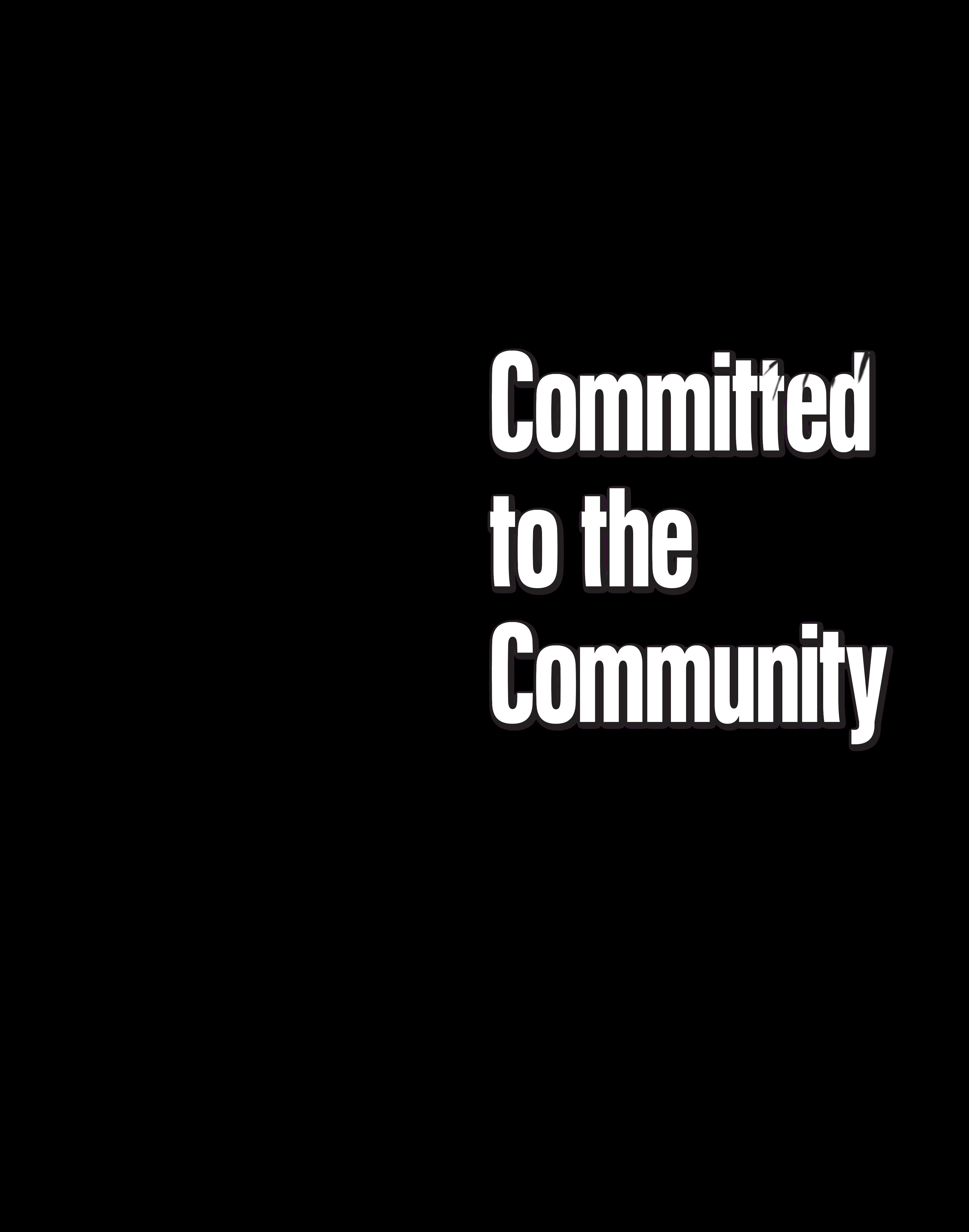

When COVID-19 hit, Airbnb and its CFO David Stephenson invested in hosts, guests, and employees to create value and emerge from the pandemic stronger than ever
ZACH BALIVA
Airbnb’s leaders posted a memo on January 21, 2020. The optimistic update pointed to important progress in the past and set a hopeful tone for the future. Hosts sharing their homes had earned over $80 billion. The company had made significant investments in its tech platform. It was ready to expand Airbnb Experiences, Airbnb Luxe, Airbnb Plus, and other exciting offerings.
“In 2020,” the note reads, “we are looking forward to supporting our Hosts and helping travelers access even more amazing places to stay and things to do.” Hours after the memo went live on Airbnb’s website, the Centers for Disease Control confirmed the first US coronavirus case. In the days following, CEO Brian Chesky and others watched as governments restricted air travel and declared public health emergencies. In less than eight weeks, Airbnb’s business fell by 80 percent.
When David Stephenson came to the company a year earlier, he never thought he would be the CFO of a travel company during a pandemic. After ten years at Procter and Gamble, he joined a little online bookseller in 1999. Stephenson stayed two decades, helping the company—Amazon—develop global payments, web services, and the other key systems that helped it grow and scale.
Stephenson accepted Chesky’s invitation to repeat his success at Airbnb because he was attracted to the company’s culture. “Airbnb takes a stakeholder approach and does what it can to support guests, hosts, communities, employees, and shareholders at the same time,” he explains.
Stephenson spent the final months of 2019 working diligently to complete the daunting S-1, the initial registration paperwork required by the Securities and Exchange Commission. Unlike some of its competitors in the sharing economy, Airbnb hadn’t yet gone public, and all eyes were on Stephenson and his colleagues as they prepared to issue stock.
But then COVID-19 hit. Stephenson put the S-1 on the shelf and helped his leadership team develop a rapid response plan.
A traditional CFO would have focused on cutting spending, boosting productivity, and prioritizing cash flow, but Stephenson is anything but traditional. “The CFO can influence how a company responds in a crisis. Like our other leaders, I knew that the best choice was to think long-term and focus on the core elements that make Airbnb different,” he says.
to a more functional structure to eliminate redundant capacity and prepare core offerings for an eventual post-pandemic rebound.
By May, the US had emerged as the global leader for COVID-19 related deaths and the World Health Organization renewed a prior emergency declaration labeling the pandemic a global health crisis. Layoffs were unavoidable, and Airbnb made the hard decision to release 1,900 employees, totaling 25 percent of its workforce. Stephenson worked to arrange generous severance packages that included fourteen weeks of base pay, twelve months of healthcare, and help finding new jobs.
Stephenson says he’s proud of how Airbnb handled the difficult situation. “People in finance say they are long-term oriented when they really aren’t. It would have been easy to approve the bare minimum because our team needed every dime to survive, but that is short-term thinking,” he explains. Stevenson says he believes the move will pay off and help the company attract and retain employees in the future.
Hosts also felt the impact as guests canceled bookings at unprecedented rates. Unlike other platforms, Airbnb allowed the cancellation. In response, the company developed “Go Near,” a campaign that promoted safe, local getaways for those needing a break from their homes. Enhanced cleaning protocols were developed and instituted as part of Go Near to restore confidence to the marketplace.
Airbnb is unique because it provides connection. Guests come to the company for a place to stay but enjoy personal experiences in the homes of four million hosts around the world. Prior to the pandemic, Airbnb had set up a divisional structure. The company was expanding into transportation, hotels, luxury sites, and cleaning services. Stephenson and his peers halted those projects and pivoted
The company also sent $250 million from its own accounts directly to hosts. “We wouldn’t have our business if it wasn’t for our hosts, and we knew we had to support them,” Stephenson says, adding that he raised $2 billion in straight debt to fund the initiative and other recovery activities.
Finally, in summer 2020, the world began reopening. Stir-crazy travelers wanted to avoid large hotels and book intimate stays close to home. Because Stephenson,
“We wouldn’t have our business if it wasn’t for our hosts, and we knew we had to support them.”
David Stephenson
Chesky, and others had supported the host community, Airbnb was ready for a rebound. As bookings increased, leaders realized the time was finally right for Airbnb’s hotly anticipated initial public offering. Stephenson dusted off the S-1, reconstructed it to reflect the company’s return to the core business of hosting, and submitted the form. Airbnb went public on December 10, 2020.
Airbnb’s IPO was anything but ordinary. The company embedded its values into the event by looking beyond the usual suspects of investment banking. Stephenson involved minority banks and worked with the Rainbow PUSH Coalition to identify twelve woman-, minority-, and veteran-owned firms to act as underwriters.

Perhaps the most noteworthy addition was the formalization of Airbnb.org, a nonprofit that provides temporary stays for people in times of crisis. Before 2020, Airbnb helped hosts respond to events like the Pulse nightclub shooting and various natural disasters.
Now, Airbnb.org partners with resettlement agencies to fund temporary stays—most recently, in response to the Afghan refugee crisis, Airbnb.org made a pledge to house up to twenty thousand Afghan refugees in need of temporary housing. Hosts can participate by offering free or discounted stays.
Airbnb did more than simply survive a pandemic; the company is thriving. On February 22, 2021, its founders posted another memo.
“Our responsibility to our stakeholders will continue to guide how we operate,” it reads. “These are the ideas at the core of Airbnb: our community is based on connection and belonging, our creativity allows us to imagine new possibilities for people, [and] our responsibility is to all of our stakeholders.
“In the end, they all share a common thread—a fundamental belief that people are good and we’re in this together. This is what makes Airbnb, Airbnb.”
Dave Stephenson highlights the importance of strategic investing, even during the darkest of times. While CFOs are often thought of as “cost cutters,” he is proof of the value we provide in understanding the whole business, and protecting what is important to remain a thriving, going concern. In Airbnb’s case, it’s all about the relationships with its hosts as well as employees, even when they are on their way out.
“The CFO can influence how a company responds in a crisis. Like our other leaders, I knew that the best choice was to think long-term and focus on the core elements that make Airbnb different.”
David Stephenson
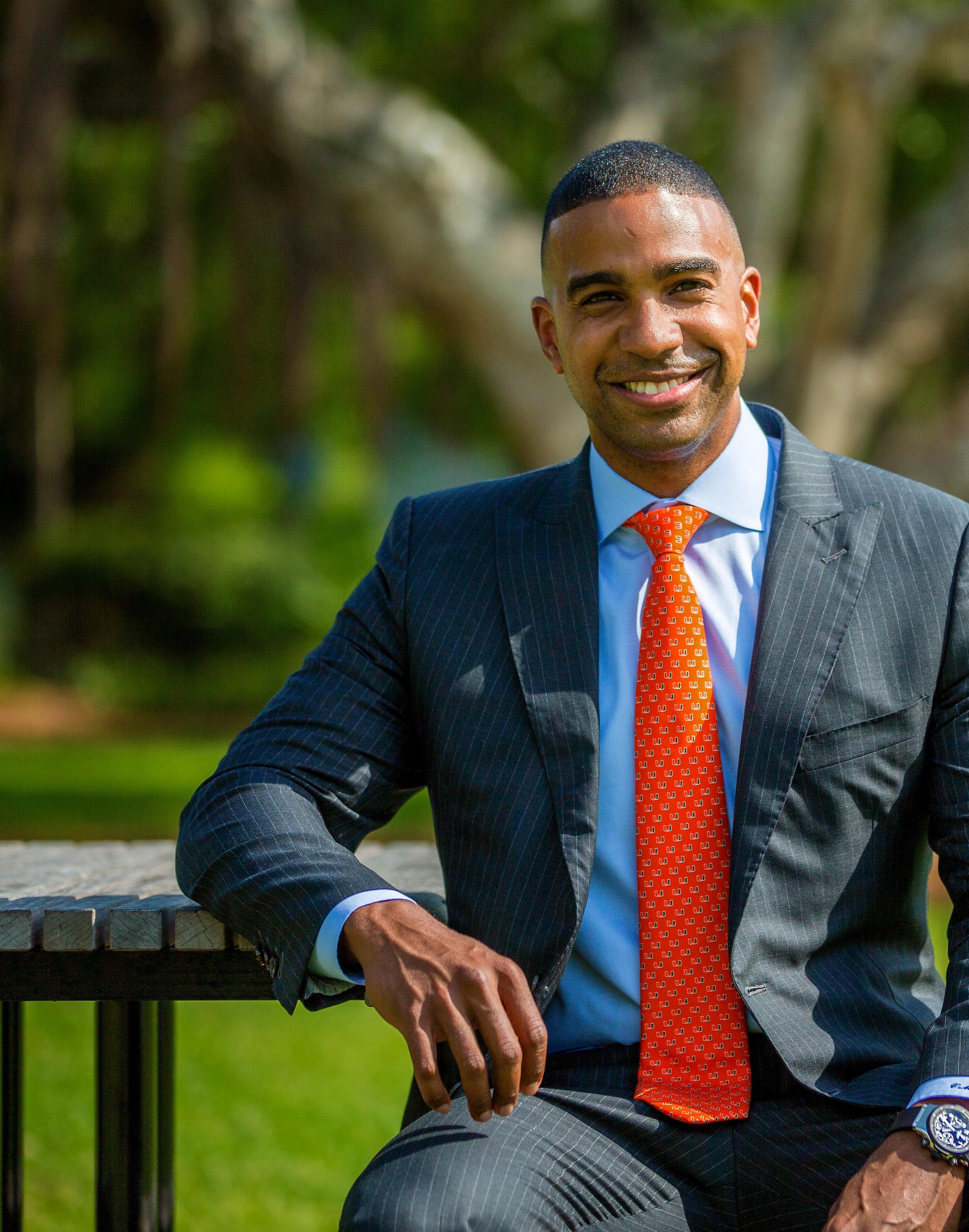
Charmel Maynard may be one of the youngest university chief investment officers, but he’s not letting that slow him down. He’s revamped the University of Miami’s asset portfolio and helps students thrive.
 By ZACH BALIVA
By ZACH BALIVA
Browse the Instagram account of Charmel Maynard, and you’ll quickly notice a theme emerging. The feed isn’t filled with pictures of cats and food but is instead full of notices about his speaking engagements and virtual coffee hours. Students and community members are invited to join Maynard, University of Miami (UM)’s chief investment officer (CIO) and treasurer, at a Delta Sigma Theta event, meet him at a local Big Brothers Big Sisters chapter, or tune in to a CIO Conversations podcast episode.
Maynard is leveraging his status as one of the youngest university CIOs in the nation to accomplish two big goals—he wants to build a world-class investments office and find
unique ways to help UM’s students thrive.
The inaugural edition of “Coffee with Charmel” covered the importance of mentorship as a minority in corporate America Maynard tries to connect university students with mentors because he knows firsthand how powerful those relationships can be.
Maynard grew up splitting time between Trinidad and Georgia before attending prep school and studying political science at Amherst College. He landed an internship at JPMorgan Chase with an offer to return full time upon graduation. Maynard excelled as a student, but he noticed something different when he returned to the firm as a professional.
“I was surrounded by excellent people, and it was hard to stand out because everyone there was a motivated, competitive, hard-working person from the top of their class,” he recalls. Maynard needed someone to help him navigate the professional world, avoid proverbial landmines, and unlock new opportunities.
Maynard found that person in a senior partner who became his personal mentor. After they bonded over sports and Maynard’s borderline obsession with LeBron James, Maynard was invited to attend leadership meetings, participate in important deals, and even play on the corporate basketball team.
Soon, Maynard was thriving in his role. “I still preach the value of mentoring because it was of incredible importance in my own career,” he says. “The mentor-protégé relationship is crucial for anyone starting out in corporate America.”
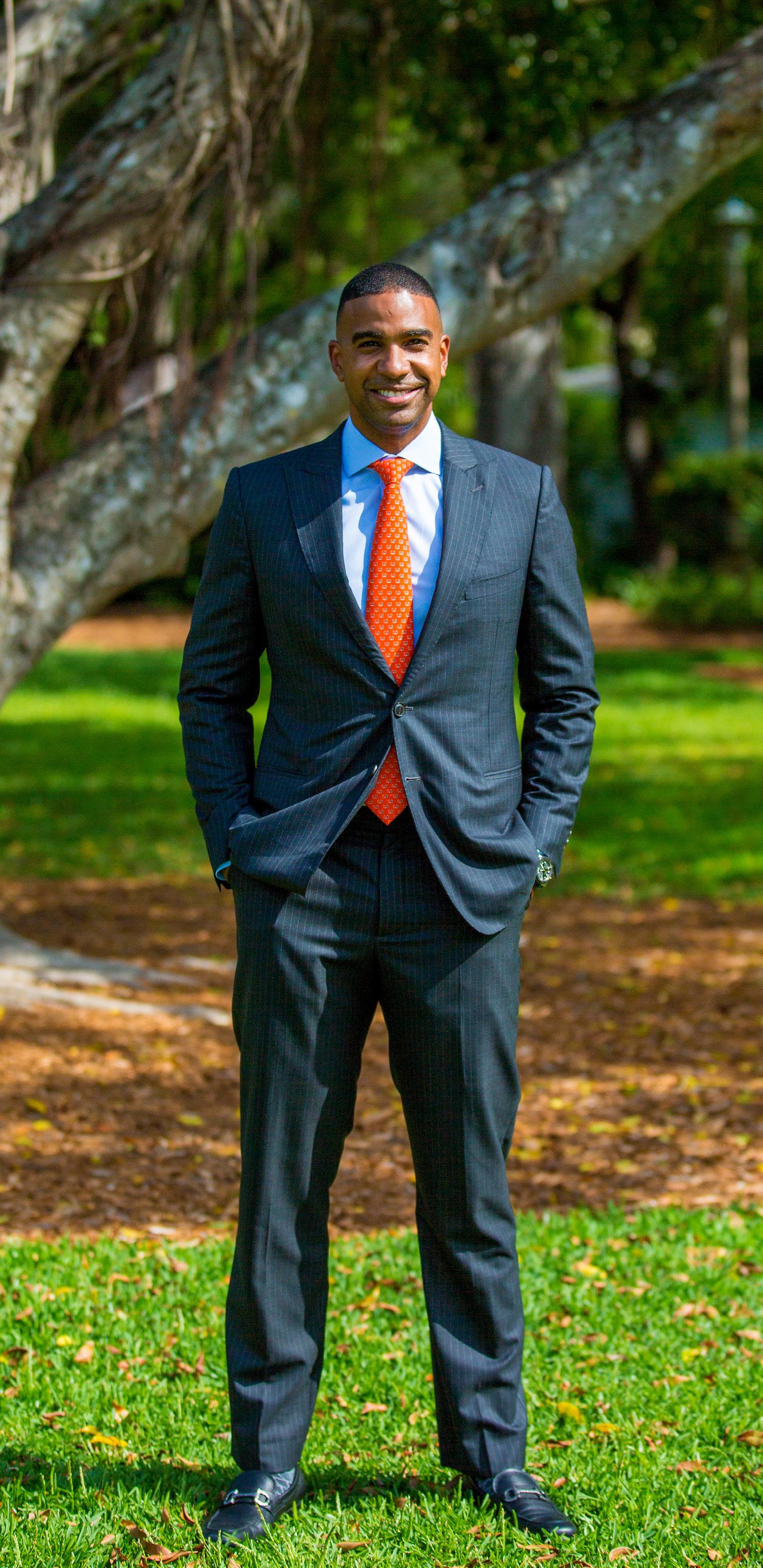
When Maynard’s mentor left JPMorgan for the treasury role at UM, Maynard followed. A year later, that mentor left and recommended someone else for the job— Maynard. At just thirty-two years old, he was managing capital structures and investments totaling $6 billion.
It’s a big job for anyone, but Maynard felt extra pressure as a young Black man. “If you look around the industry, you don’t see many people like me in the top investment role at a university,” he says. “That motivates me to succeed so we can create more opportunities for people of color and other minorities.”
To do so, Maynard had to perform and learn to interact with deans, boards, and investment committees, which are often filled with veteran leaders who have been making shrewd financial deals for decades. Maynard relied on friends, mentors, and counterparts to support, encourage, and equip him as he stepped into the role.
“Young leaders feel like they have to pretend like they know everything,” he says. “I will never know everything, but I learn as I go and ask questions every day so I’m always getting better at my job.”
Maynard has two main responsibilities. He manages the university’s capital structure and invests its assets. In doing so, he found an opportunity to turn his young age into an asset. Today’s venture capital
Bank of America is proud to support the University of Miami. Congratulations to Charmel Maynard on your well-deserved recognition.
industry is led by dynamic fund managers, many of whom are millennials. Maynard formed essential relationships with these new industry leaders and diversified UM’s portfolio.

In early 2020, the university rewarded Maynard’s performance by adding the title of chief investment officer to his role. Although Maynard was already performing the duties, the official recognition formalizes his appointment and gives him the credibility to move forward in creating an elite investments office and treasury team that will fund scholarships, university projects, and other important endeavors.
As he executes the vision, Maynard has his eye on increasing diversity. He’s already completed a holistic review and revamped the university’s strategy by overturning 80 percent of its assets. After social justice issues took center stage in 2020, UM’s Investments Committee set a specific goal of more than doubling the amount of minority owned funds in its portfolio by the end of fiscal year 2022.
It’s not hard for Maynard to see the impact of his work; all he has to do is look out his office window. He can see the new about $200 million residential village and a $40 million indoor practice facility his office helped finance. He also recognizes many of the students he’s helped develop soft skills or connect to internships and job opportunities.
Now, Maynard is focused on fortifying UM’s balance sheet and ensuring the university has access to liquidity to navigate the COVID-19 era. His work is making a difference. Since he took over the role in 2017, UM’s endowment has grown by 65 percent. At 33.6 percent, its most recent one-year investment return was the best in university history. Those proceeds go back to the university to fund professorships, scholarships, research, and capital projects.
Maynard has made an impact and built the foundation of a program that will impact students and staff for generations to come—and he’s done it all before his fortieth birthday.
Charmel Maynard demonstrates the importance of the mentor-protégé relationship. He had an influential mentor early on who provided advice and advocacy, both personally and professionally; someone who validated his talent and brought him into important deals and meetings that might have been otherwise closed to him. What I really admire is that he is giving back, mentoring students, and stressing the importance of diversity in money management, as well as the need to focus on social responsibility in investing.
Although Charmel Maynard is making a difference at one of the nation’s leading private research universities, he’s always looking for new opportunities to give back and create opportunities for people of color.
In 2021, he joined Landed’s board of directors. The fintech company based in San Francisco is on a mission to address wage inequality through home ownership. Maynard provides strategic advice to the group as it partners with teachers, nurses, and others to provide down payment assistance so essential workers living in some of the nation’s most expensive housing markets can realize the goal of home ownership.
“If you look around the industry, you don’t see many people like me in the top investment role at a university. That motivates me to succeed so we can create more opportunities for people of color and other minorities.”
Charmel Maynard
“Being at the stock exchange the morning we were ringing the bell just felt a bit surreal, like maybe this really isn’t happening,” says Bill Fullerton, global controller and chief accounting officer at Endeavor. But it did happen. Fullerton and the rest of the Endeavor team succeeded in taking Endeavor public on the New York Stock Exchange (NYSE). Despite a previous failed attempt and a pandemic, Fullerton motivated his team to persevere by tapping into his years of experience.
Fullerton spent twelve years of his career working at PricewaterhouseCoopers (PwC) after earning his accounting degree from Boston College. Shortly after making partner at PwC, Fullerton made the unusual decision to leave public accounting and broaden his
experience at Lucent Technologies and then subsequently at Interpublic Group (IPG).
While he was at Lucent Technologies, Fullerton saw firsthand that he could face challenges that came his way. “I was at Lucent during one of the most trying times in its history with its spin-offs, a restatement and SEC investigation, and Lucent’s stock price driving to an all-time low,” he says. “We worked through all that.”
It was his work at both Lucent and IPG that gave Fullerton the foundation he could build on at Endeavor, a global leader in entertainment, sports, fashion, and content whose subsidiaries include WME, IMG, and UFC. The company, which operates in more than thirty countries, specializes in talent representation and management, brand
strategy, media sales and distribution, and event management.
Endeavor may seem like a big shift in industries for Fullerton, but the opportunity to take the company public was the major draw.
“I think it was the intrigue of going to a pre-IPO company with nearly $4 billion of revenue,” says Fullerton on his decision to join the team at Endeavor. “The company represents some of the top actors, athletes, and models in the world, coupled with such diverse other businesses like the UFC, Professional Bull Riding, and the IMG Academy. I thought it was an exciting opportunity.”
Fullerton knew he was prepared to handle the challenge, thanks to great mentors. “I’ve worked with some tremendous people over the years and have had some terrific
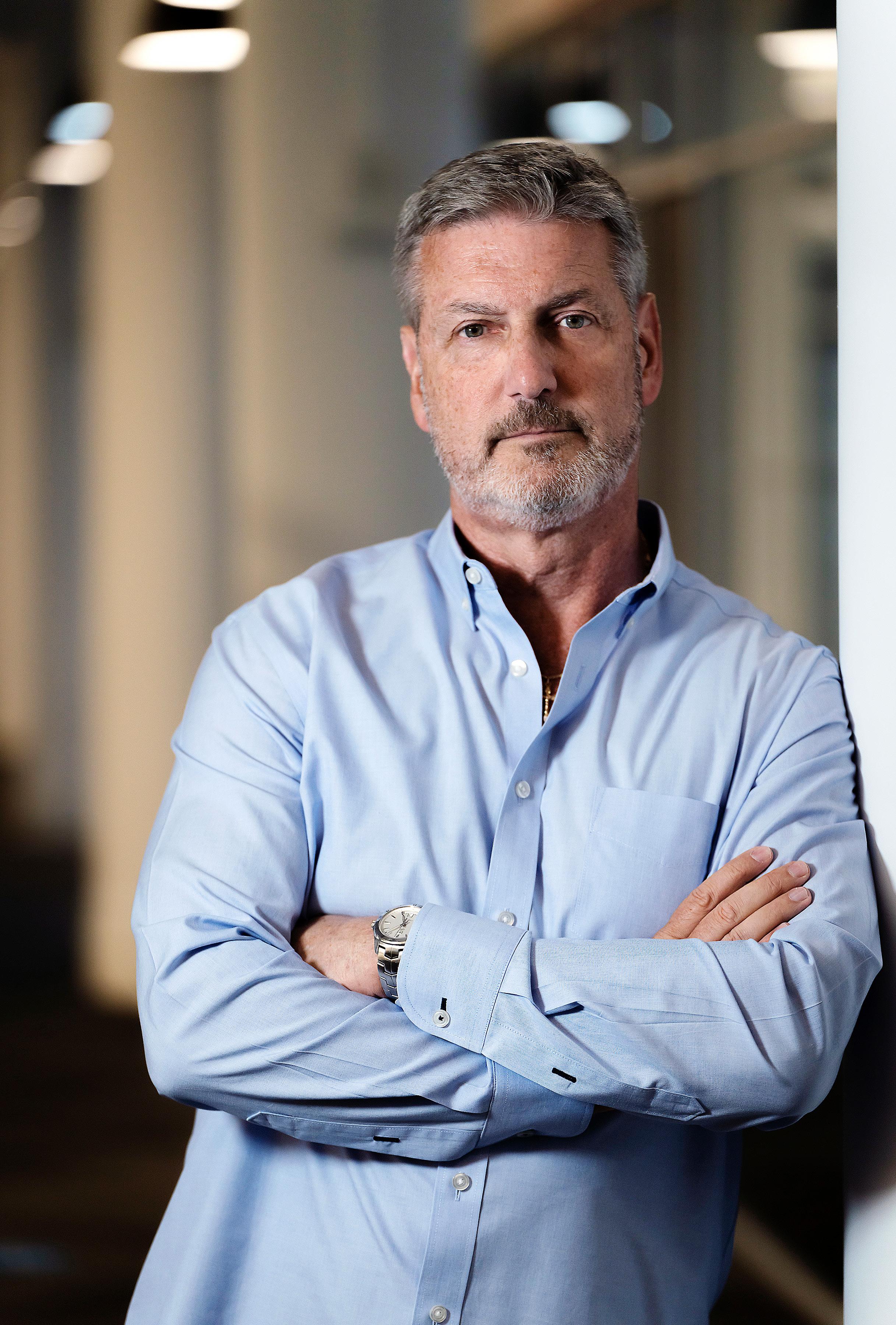
mentors,” he says. “And when you surround yourself with really good people, it improves your odds of being successful.” He met that challenge with the successful IPO on April 29, 2021.
Endeavor’s initial attempt at going public was canceled in September 2019, on the eve of ringing the bell on the NYSE. Fullerton had led his team through the IPO process up until that fateful day when they pulled the IPO.
A year later, Fullerton faced his team that again needed to commit to the long hours and arduous process of going through another IPO attempt. “Motivating people to push ahead and do it again was a bit of a challenge—even personally—after getting that close and having it pulled for various reasons,” he notes.


The timing of it all added increased stress as the COVID-19 pandemic struck less than six months after the first attempt at an IPO. “COVID added to the challenge,” Fullerton says. “It has certainly proven that we can get a lot of things done even remotely, and it speaks to the team we have.”
Fullerton motivated his team by keeping them focused on the objectives and encouraging good communication. “I told them this time was going to be different because we were better positioned to be successful,” he says.
He credits his leadership during this time to his ability to bring the public company experience to the table through the expertise he built at Lucent Technologies and IPG. “There are a number of people at Endeavor that had never been a part of a public company,” he says. “I was able bring that experience to the team.”
Since Endeavor’s successful IPO, Fullerton says his role has shifted to meet the expectations of a public company. “Now you’re a public company you have to be a public company—Form 10-Qs, disclosure committees, press releases, earnings call scripts,” he explains in his June 2021 interview. “That’s all been new to a lot of people here. Now we’re in the process of closing Q2, and on a real public company reporting timeline.”
I’ve always contended that you learn more when faced with difficult situations than in good times, and Bill Fullerton is a perfect example of that. Working at Lucent during its most trying time gave Bill the experience and fortitude to ultimately take on a new and exciting challenge at Endeavor. Even then, their first IPO attempt was aborted at the eleventh hour, but Bill hung tough and was finally able to see it through successfully. He gets to demonstrate his adaptability and fortitude once again, pivoting from a private to public company environment at Endeavor and all that is involved from financial reporting and disclosure perspective.
“When you surround yourself with really good people, it improves your odds of being successful.”
Bill Fullerton
With thirty years of accounting and financial experience, John Gordon is helping Howard University educate tomorrow’s top leaders
By ZACH BALIVAHe’s created an internal audit function at a broadcaster with 350 television stations and prepared a cable channel for a $3 billion sale. Now, he’s streamlining accounting operations at a renowned university with twelve thousand students. Most people like to make little improvements, but John Gordon lives to make big things better.
How does he do it? By applying the expertise in finance and accounting he’s developed over the past thirty years. Today, Gordon is Howard University’s controller and chief accounting officer. He says he enjoys the role because he can use his aptitude for budgets, numbers, and patterns to make a real difference at the historically Black university.
By now, it’s simply second nature. In fact, Gordon can’t remember a time before his skills emerged. High school counselors noticed he excelled in math. He took a bookkeeping course and enrolled to study business administration and accounting at James Madison University. That’s where a dedicated faculty member mentored Gordon and helped him realize his potential.
He got his CPA license and then his Global Chartered Management Accountant license. Soon, Gordon was working as a staff auditor and senior auditor at Price Waterhouse (now PricewaterhouseCoopers), one of the biggest and most famous accounting firms in the world.
Gordon performed work for major clients and had the opportunity to join the team that handled PwC’s audit for the World Bank. Although the role helped him develop key professional skills, it also made him realize that he didn’t want to build a career as a partner at an accounting firm.
“I wanted to be more strategic and add value in a different way than as a partner,” he explains. “I wanted to be part of a team that looks at a business and tries to break it to put it back together in a new way. I wanted to brainstorm new ideas and put them in place.” As Gordon scanned his brain for clients and entrepreneurs who would share his vision, one name came to mind—Robert Johnson. Johnson had started Black Entertainment Television (BET) in 1980. Gordon joined the company as a director of operations and im-
mediately had the chance to suggest and implement new ideas as Johnson was creating, buying, and selling businesses.
“The accounting and finance people were instrumental in making Johnson’s vision a reality,” Gordon says, adding that he gained valuable experience and exposure as he closed important BET deals.
At just twenty-five years old, Gordon was setting up whole structures and entities to move magazine and publishing businesses from New York City to Washington, DC.
After four years, Gordon left BET for PBS, where he created new audit programs, advised leadership on financial matters, and worked directly with the large nonprofit organization’s board of trustees. In 1999, Gordon returned to BET for an important assignment.
Johnson was about to sell his company to Viacom, but he needed an accounting wizard to fix his finances ahead of the massive deal. He knew Gordon was just the person to do so. Viacom wanted to pay twenty times earnings. Johnson wanted a $3 billion sale. When Gordon worked to demonstrate that BET had a $150 million EBITDA, the deal closed at Johnson’s figure.
Although he had intended to move on to another challenge, Gordon stayed at BET another thirteen years. In 2013, a former colleague told him about an open position at Howard. The university’s finance department had a poor reputation with auditors. Faculty and staff viewed the department as an obstacle. Accountants took months to close the books each fiscal year.
In short, leadership needed someone to make it better. That someone was Gordon.
Gordon has found that life and service in higher education is difficult and slow, but he’s spent the past eight years gradually improving an intricate system. “Howard University is a large business masquerading as a nonprofit, and its structure makes implementing improvements a challenge. But it’s a challenge we can tackle together,” he says.
The university is the fourth-largest landholder in the District of Columbia. It operates nine residence halls, a hospital, a radio station, a newspaper, and a library. Faculty members research for NOAA, NASA, and other partner organizations.
That very structure adds layers of complexity to Gordon’s job. He revamped his staff, made key hires of people with the right professional backgrounds, earned the trust and engagement of his peers and counterparts, improved controls, and worked with the external auditors to increase communication and fix problems. When Gordon arrived, teams took months to close books. Now they accomplish the task in just one week.
In 2013, auditors cited twenty-three material weaknesses and significant deficiencies
“I wanted to be part of a team that looks at a business and tries to break it to put it back together in a new way. I wanted to brainstorm new ideas and put them in place.”
John Gordon
related to Howard’s reporting. Gordon and his team have that number down to six. Now, he’s a key part of the team implementing a new ERP software designed to introduce automation and bring greater efficiency to all the financial and accounting processes.

At Howard, Gordon invests in young professionals the same way others invested in him. His fraternity mentors students, and he’s encouraged members of his staff to get licenses and earn advanced degrees through a tuition reimbursement program.
Over the years, Howard has produced Supreme Court justices, Oscar-winning actors, vice presidents, mayors, governors, senators, doctors, novelists, journalists, and poets. Gordon thinks about those students as he walks the campus affectionately called “the Mecca.”

“People here are doing important work,” he says. “And we’re making things better for them so they can fulfill their dreams.”
Working hand in hand with the CEO of a growing, entrepreneurial company, John Gordon was just the person to bring new practices and thinking to Howard University. While higher education works slower and has its own set of norms, John was able to adapt and slowly implement changes to show what “good looks like.” His peers and counterparts liked what they saw, and now John has the trust and support to move a little faster and make meaningful improvements.
“Howard
is a large
masquerading as a
and its structure makes implementing improvements a challenge. But
a challenge
can tackle together.” John
How leaders cultivate inclusive environments that allow both employees and companies to thrive
Pablo Brizi, Hilton Grand Vacations P118
Anna Jackson, Gigamon P122
Michelle Labbe, Toptal
Van Zorbas, Deloitte Canada P128
As Hilton Grand Vacations’ CHRO, Pablo Brizi puts team members at the heart of the company’s policies to facilitate a culture of belonging
 By ABIGAIL SUTTER
By ABIGAIL SUTTER
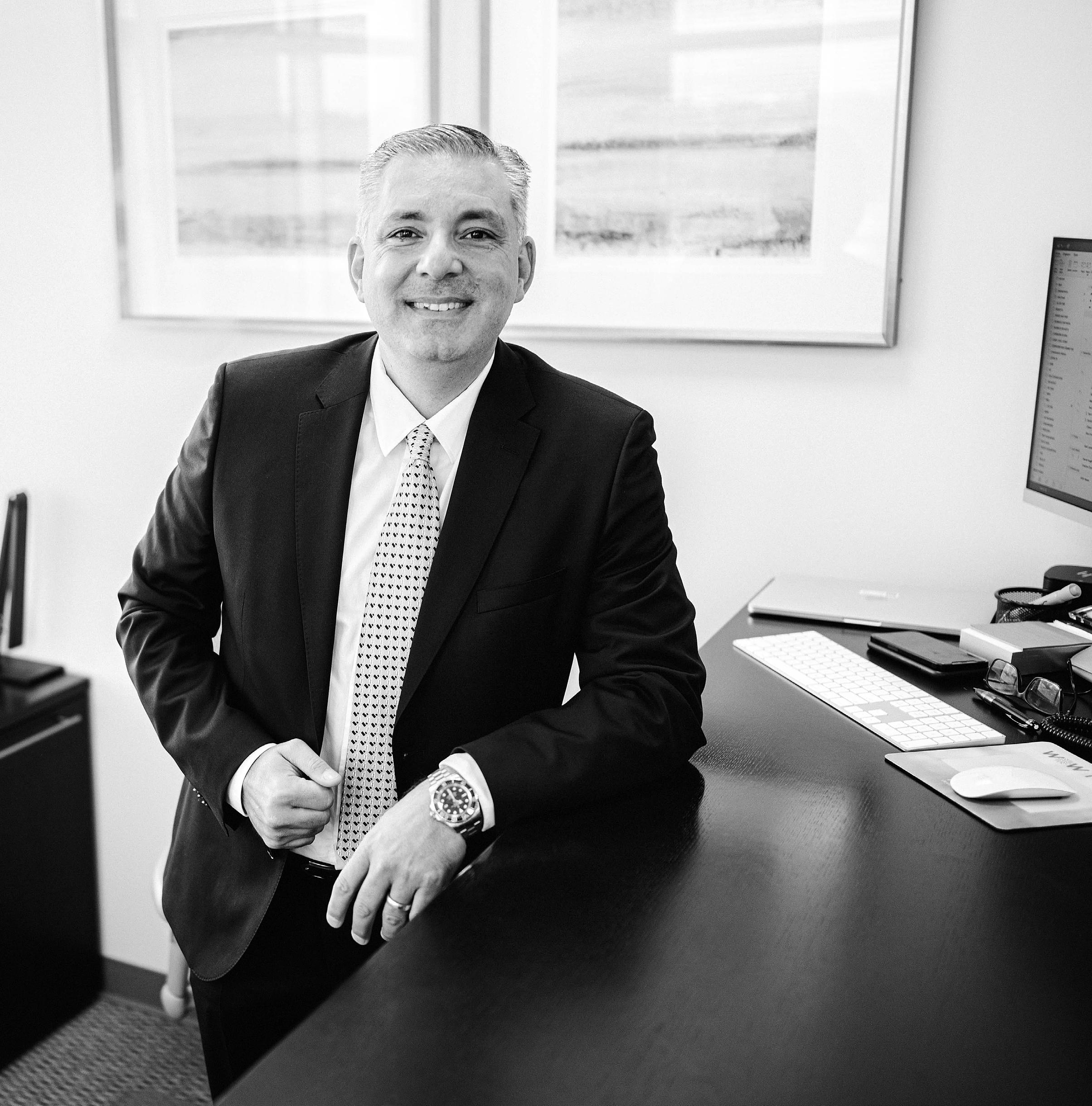 Pablo Brizi CHRO
Pablo Brizi CHRO
Growing up in Argentina gave Pablo Brizi not only the work ethic but also his passion for diversity, equity, and inclusion (DEI) that would carry him throughout his career. He describes the country as amazing and quite different from the upbringing his own children are having in the US.
While attending college in Argentina, Brizi was working twelve hours a day, attending classes after his shifts, and getting roughly six hours of sleep before doing it all over again. It was his father who had marked him with his work ethic and dedication to two things: family and work. These early experiences instilled in him a sense of entrepreneurship and flexibility surrounding his career journey.
“You have to be open to doing different things, learning from experiences and taking professional detours. It’s more fluid in a way—it’s not so rigid or specific as it is here,” he notes. “You basically have to be a generalist on all things, regardless of which department you work in.”
Brizi was originally interested in finance, with his sights set on Wall Street, but he found a home in HR for the past 27 years after he obtained his first HR position through one of his career detours. He now works as the chief human resources officer at Hilton Grand Vacations (HGV) overseeing all functions in HR, from “hire to retire”: talent acquisition, compensation and benefits, talent
management, leadership development, succession planning, team member engagement, culture and recognition, and DEI.
Starting a new job during the COVID-19 pandemic wasn’t something Brizi thought he would ever do. Expected or not, the flexibility he learned early on came in handy and allowed Brizi and his team to continue their operations successfully.
“I’m pretty easygoing, and one thing that Argentina gave me was the drive to overcome obstacles. You just don’t get too hung up on things. You just make it happen,” he states, simply.
He estimates that he will have met most of the people and visited most of the properties by the end of 2021, even as the pandemic continues.
“I’m always looking at the glass half full. I like to talk about things that are positive,” he says.
For Brizi, there is no shortage of things to be positive about. In March 2021, HGV announced that it would acquire Diamond Resorts, which will more than double the size of the company when the deal closes. Brizi and his HGV team, which he calls “the guardians of our culture,” are excited for the opportunity to integrate the new team members into the company.
It is HGV’s culture that drew Brizi to the company in the first place. The company, he explains, prioritizes diversity and inclusion at all levels of the company and puts its team members first.
“It is critical for companies to foster and encourage a sense of inclusiveness,” he says, adding that the executive team uses the equation “two ears and one mouth” to listen to their team members in both formal and informal channels.
DEI is something that is embedded into the company’s culture. Forty percent of HGV’s top-of-the-house management identify as women or minorities, and its CEO, along with two of seven directors are women and people from diverse backgrounds, including Brizi himself.
“These are the core of what we stand for. It’s who we are,” says Brizi, noting that the company’s mission is to “put people first to ensure team members become family, guests become owners, and owners become part of everything we do.”
Brizi accomplishes this mission by constantly fostering an inclusive culture of belonging for all HGV team members.
In addition, the company has six team member resource groups: African American, Asian and Pacific Islander, Hispanic/Latino, LGBTQ and friends, military, and women. Each group is sponsored by a senior executive who helps drive initiatives across the business. Brizi has also recently hired the first DEI vice president for the company, an exciting new addition to the team.
“Diversity, equity, and inclusion is something that is being discussed a lot lately,” Brizi says. “These conversations require action, and I believe prioritizing a
“I’m pretty easygoing, and one thing that Argentina gave me was the drive to overcome obstacles. You just don’t get too hung up on things. You just make it happen.”
PABLO BRIZI
sustainable and supportive workplace and culture is critical.”
Despite the diversity already apparent within the hospitality industry, Brizi explains that it’s crucial for companies to continue to have dialog in order to make widespread change.
It’s especially important, Brizi adds, to look at diversity at the management level at companies. There may be a lot of diversity at the lower levels of a company but looking at how committed a business is to DEI can truly be seen in their senior management positions.

For his part, Brizi is incredibly grateful for the opportunities he was given by mentors in those higher-level roles. “Never in my wildest dreams would I have thought that I would be where I am today,” Brizi states. “I grew up in Argentina, and you don’t think those things are possible for you. It’s been very humbling.”
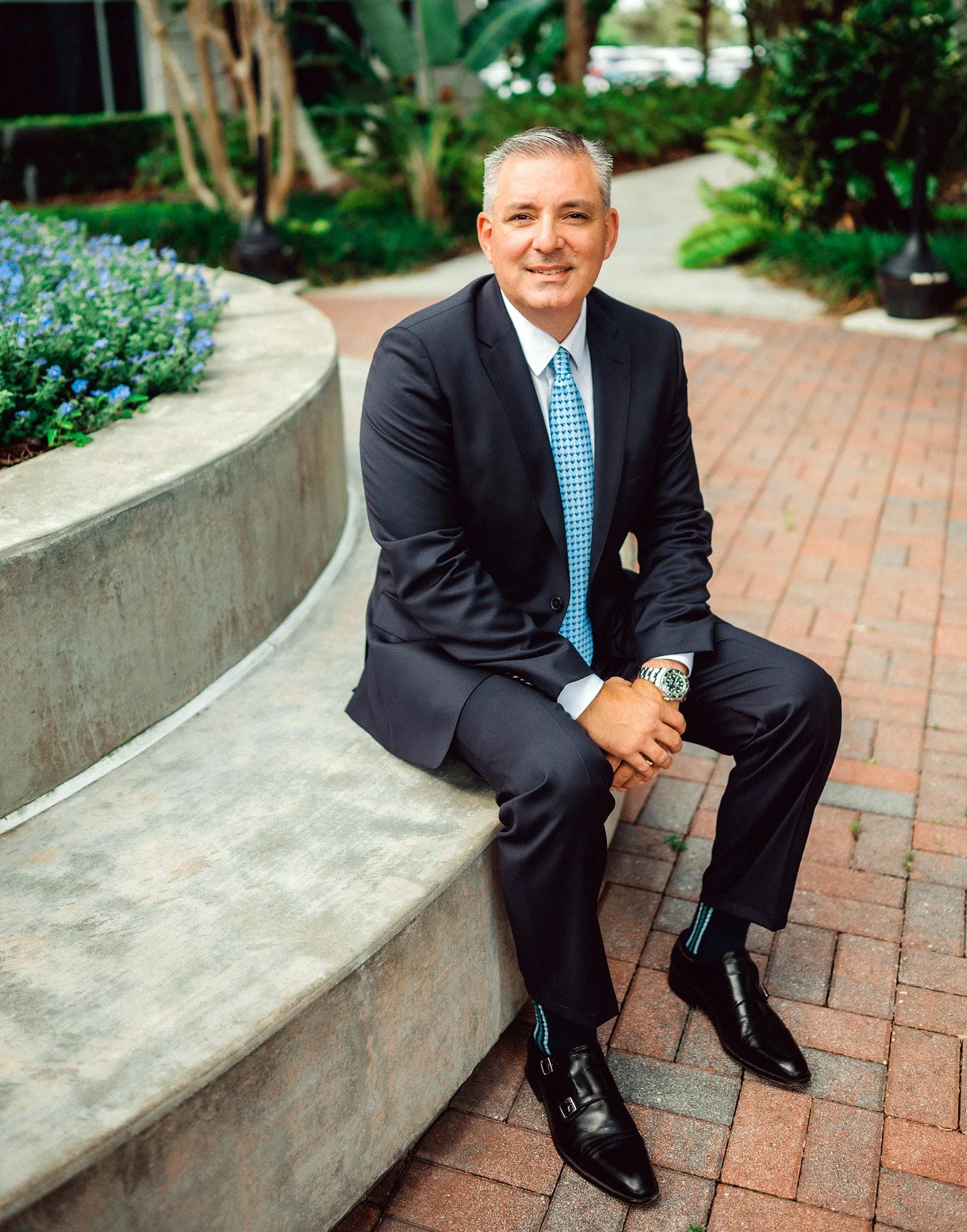
“Never in my wildest dreams would I have thought that I would be where I am today. I grew up in Argentina, and you don’t think those things are possible for you. It’s been very humbling.”
PABLO BRIZI
VP of HR Anna Jackson details how Gigamon differentiates itself by expanding its diversity, equity, and inclusion initiatives and supporting its remote employees
By MAGGIE LYNCH“Technology moves fast, and in the HR function, it is speed, it is execution, and continual evolution of how you’re positioning yourself as a company in an incredibly tight market space,” says Anna Jackson, vice president of human resources at Gigamon.

At Gigamon, a leading cloud visibility and analytics technology vendor, Jackson leads her HR team to differentiate the brand from other technology companies and create an inclusive and innovative culture.
“Most industries have a technology slant to them now, but when you’re working with engineers and those dealing with cybersecurity, you really have to differentiate yourself and create an environment where people say, ‘I’m proud to work here,’” Jackson explains. “The culture aspect of every organization is vital to both recruiting and retention. Human resources, as the voice of our employees, plays a profound role in tech companies based on our ability to ensure the continuity and growth of our corporate culture.”
With the responsibility of differentiation and creating an inclusive environment on her shoulders, Jackson leans on what she has learned throughout her career to become an effective leader in human resources.
“A leader in HR must have two critical objectives. The first is focused on how HR helps the business achieve its goal. How can we provide programs, partnership coaching, advice, and support to our teams that can help drive the focus and creativity needed to achieve our long-term goals?” Jackson says.
“The second is employee well-being,” she continues. “Our employees are the most important assets at my company, and I believe their physical and mental well-being should be at the forefront of every HR decision. My team is focused on how we can best work with employees at every level to ensure a harmonious environment, as well as create an inclusive atmosphere for everybody to work in a productive and positive space.”
Under the guidance of her mentors, and with a wealth of experience under her belt, Jackson has taken on those components in stride as she leads diversity, equity, and inclusion (DEI) initiatives at the company.
Jackson credits the success of her team’s initiatives to executive-level support of their approach to these challenging issues in addition to leading the organization through the pandemic.
Gigamon has just over 950 employees, all of whom are important in developing and evolving DEI initiatives that are easily shared and enacted across functions and regions.
VP“Our role has matured into coaching and supporting employees on productivity, with a focus shifting to the individual from the group and with mental health also moving to the forefront.”
ANNA JACKSONAnna Jackson of HR Gigamon Courtesy of Gigamon
“When you’re a thousand-person company,” she explains, “it’s harder to move the needle on major initiatives because of time zones and resource constraints. We’ve taken the approach of really pushing on the internal awareness aspect.”
Establishing this awareness has rested in part on blog posts and the establishment of a Culture Club. Together, these initiatives have taken steps to highlight Pride Month, Black History Month, and International Women’s Day. Gigamon also built out a calendar to celebrate all walks of its employees’ lives.
The company recently added more diverse recruiting measures that are focused on sourcing women to fill typically male-dominated roles. Additionally, these measures focus on ensuring representation across all the roles within the company.
To help ensure broad awareness, Gigamon training now includes unconscious bias awareness. The company has also established an inclusive language program, “to essentially change any offensive or outdated language to be more inclusive because we know words matter,” Jackson says.
Jackson worked with her team to roll out these initiatives while the pandemic forced the company into a new normal. “One of our first steps was to ensure that everyone could take their equipment home to get set up remotely,” Jackson says. The company also provided reimbursement for highspeed internet to ensure that every employee has the additional bandwidth needed to remain productive.
Gigamon went even further and instituted a quarterly Global Down Day, in
which all employees are highly encouraged to set aside work to spend time with loved ones, enjoy some fresh air, or just enjoy some quiet time. The company has sent out care packages for the whole family, and worked to allow for a new level of flexibility and updated the frequency of global communications.
Jackson states that all these initiatives are “part of a strategic effort to drive authentic communication within the company so that people could be open and honest about what they were going through as they absorbed the shock of their new normal. These efforts have helped us evolve as a company as we continue to navigate the changing corporate work environment.”
The work put in by Jackson and her team embodies what she believes the future of HR will look like in a post-pandemic world. “HR will have an elevated role,” Jackson says. “People previously wouldn’t bring their entire self to work, whereas now they are and we are ready to support them.
“Our role has matured into coaching and supporting employees on productivity, with a focus shifting to the individual from the group and with mental health also moving to the forefront,” Jackson adds.
With the hybrid-model work environment becoming a more permanent aspect of corporate life, Jackson believes that HR has the expertise to provide guidance in a way it hasn’t before. “Now, HR is at the forefront and has the ability to guide companies through this change, and we are excited about the positive outcomes we can help drive,” she concludes.
“The culture aspect of every organization is vital to both recruiting and retention.”
ANNA JACKSON
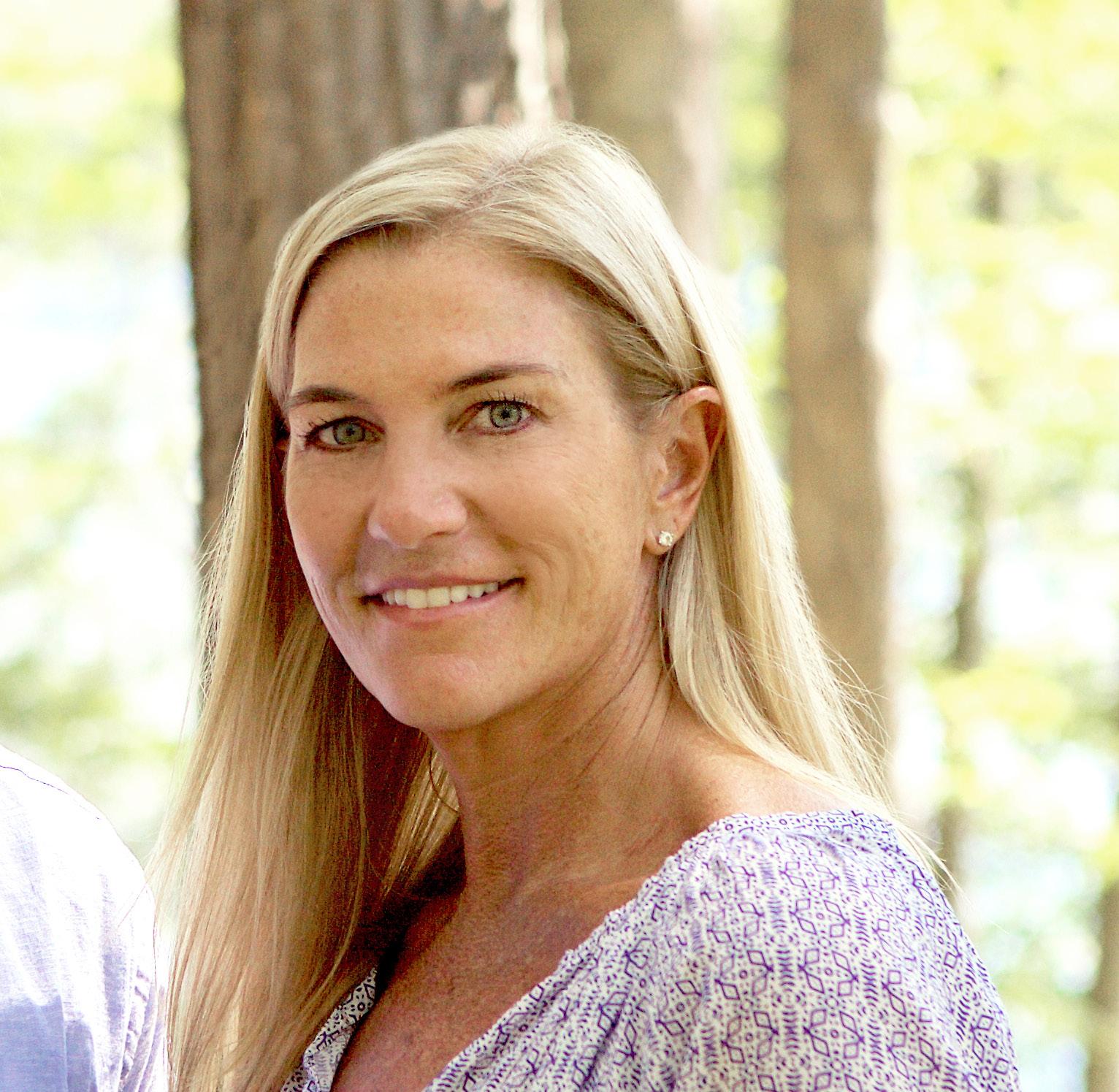 By PAMELA BLOOM
By PAMELA BLOOM
The first thing you’ll want to know about the international freelance network Toptal is how to pronounce it. “It’s Toptal, as in Top Talent,” says Michelle Labbe, chief people officer of one of the largest, completely remote, global freelance networks.
Labbe’s core team alone contains almost a thousand associates—recruiters, salespersons, marketers, engineers—all who support up to five thousand freelancers across 158 countries. That means numerous time zones, conflicting cultures, competing currencies, even political upheaval—all of which could spell trouble for the Toptal People team.
But in the capable hands of Labbe, who joined Toptal in 2018 after a twenty-year career in HR, the company faces those
challenges head-on. And the takeaways have proved prophetic.
By the time the pandemic hit in 2020, Toptal had already scored ten years of carving out the digital nomad lifestyle. Panicked clients whose employees refused to come into the office were calling Labbe and asking how to successfully go remote.
Toptal had the answers. Its “Suddenly Remote Playbook,” created at the top of the pandemic and available for free online, proved immensely popular.
At the core of the US-based company’s success is transparency—and that starts during the interview process. Applicants are rigorously tested on their core skills as well as their ability to speak and write English. They are also given customized assessments to show how they would approach their role.

“We’re looking for the very best in each field,” Labbe explains. Her talent network includes engineers, software developers, designers, finance experts, and product managers, with more verticals being planned.


Not everybody is cut out for the digital nomad life. Reading Toptal’s culture page, a declaration of remote-work values, tends to help the real digital nomads to self-separate from the confirmed office workers.
When Toptal reached out to Labbe, she had always worked in-house. “I didn’t even know what a remote People function would look like, but I was intrigued.” At the time, Toptal, led by CEO and Founder Taso Du Val, was looking for someone with growth experience in start-ups as well as agency and
customer service. With executive positions in Silicon Valley, including C-level stints at ICR, Deloitte, AOL’s Patch, and Razorfish, Labbe fit the bill.

From the get-go, she took command by changing the corporate language. “I wouldn’t even let them call us People Operations,” she says. “We aren’t administrative; we are people and talent. We are part of the business.”

That attitude has allowed Labbe to integrate her almost preternatural sensitivity to human nature into nearly every segment of the business. Even though she works from her Connecticut home, Labbe’s days are highly structured. She starts the day talking to team members in Russia and ends with Seattle.
Between juggling twelve to fifteen Zoom calls a day, she holds team meetings, advises mentees, joins executive calls, attends monthly performance calls, and onboards new hires. Lately she has been involved in helping restructure the marketing team.
With such a large global staff, the problems confronting Labbe are diverse and challenging. “I’ve had people in the Ukraine say, ‘I may have to leave and go fight for my country.
She’s had staff in Argentina and Romania not able to leave the house due to COVID-19 restrictions. Then there are couples who must split their workday because of childcare. In the end, she says, “It’s all about training our managers to stay current and aware.”
At Toptal, even sexual harassment training, a staple of HR, had to be adapted to global terms. In certain countries, for
“I’ve always been a people person. People know I care and listen. But I also want to push and challenge my teams and give them the opportunities to grow.”
MICHELLE LABBE
See how Toptal and 1,000+ other customers train their employees 62% faster with Lessonly at lessonly.com/profile
example, there isn’t even a word for sexual harassment; it’s called “Code of Honor” or “Code of Conduct.”
Labbe’s confident, open, and straightforward style is a perfect fit for Toptal, where team members rate each other openly during annual reviews. But most important to Labbe is the bimonthly happiness poll she watches.
Feedback from the survey has inspired her to create programs for rewards and recognition, and high-potential team members. It has also spurred her to encourage folks to join the Watercooler, with channels focused on book clubs, happy hours, pet lovers, cooking, and even a year-end music video. Recently, her team produced a Jimmy Kimmel-like video in which parents ask their children what Toptal is. “In a virtual community,” she says, “it’s so important to help folks find their like-minded community.”
Used to being a “psychiatrist” to her childhood friends, Labbe thrives on keeping the motivation high at Toptal. Virtual perks for staffers have included LinkedIn Learning, Udemy, Slack, the Calm app, and more.
Since she joined Toptal, Labbe has seen her team quadruple in size. She notes, however, Toptal is not for everybody. “Some people don’t like the direct culture, but I love it,” Labbe says. “I’ve always been a people person. People know I care and listen. But I also want to push and challenge my teams and give them the opportunities to grow.
“And they know I’m right there with them,” she adds. “I wouldn’t ask anyone to do anything I wouldn’t do.”
Where does everybody’s problemsolver go for help?
Recently, Michelle Labbe joined Chief, an elite private membership network dedicated to supporting and connecting top female executives. In addition to workshops, members can enjoy power talks by leading figures such as lawyer Amal Clooney, writer-director Tina Fey, and real estate magnate Barbara Corcoran.
In one of Labbe’s recent breakout groups, the topic was burnout. “One of the things that came up was taking time out for ourselves because we are so busy taking care of everybody else,” she says. The group was tasked to take two hours in the coming week just for themselves. Labbe chose to spend those rare downtime hours in the pool.
“I wouldn’t ask anyone to do anything I wouldn’t do.”
MICHELLE LABBE
In his fourteen years with Deloitte Canada, Van Zorbas has managed to continually challenge himself, branching out into unfamiliar territory and teaching himself new skills. It’s a testament to both the company’s commitment helping its people grow and Zorbas’s willingness to grow and build an amazing team to support his efforts.
Zorbas, now the chief culture and people officer for Canada and Chile, says his enduring belief in the power of people dates back to observing his father, a soccer coach at Laurentian University in Ontario, Canada. “I just remember watching him and learning about how he got people motivated,” Zorbas remembers. “He was an authentic and caring coach, and he treated his players like family.”
His father’s team won thirteen provincial championships in the twenty-eight years that he coached, despite the university’s small size. With a student body of around for four thousand, Zorbas jokes, Laurentian shouldn’t conceivably have had a soccer team at all. When his father decided to step down,
As chief culture and people officer at Deloitte, Van Zorbas believes in the power of people
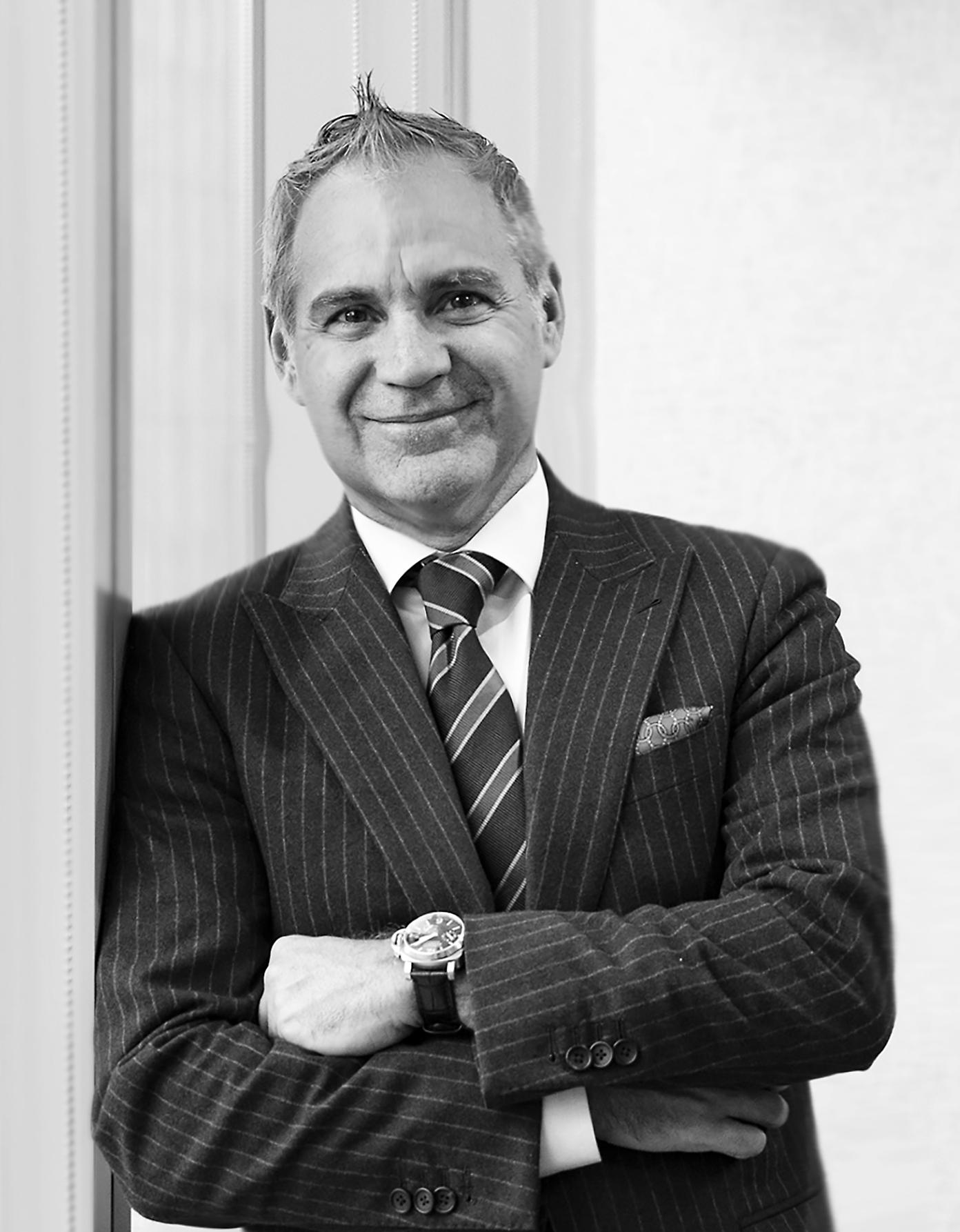
on this recognition of your leadership and people-first culture-building.
We are a technology-powered talent acquisition firm specializing in recruitment at all levels.
Through two distinct brands –Caldwell and IQTalent Partners –we leverage the latest innovations in AI to offer an integrated spectrum of services delivered by teams with deep knowledge in their respective areas.
he challenged his son to take over the team for a year.
“These were people I had partied with the year before,” Zorbas says, laughing (he’d attended Laurentian as a student). “All of a sudden I had to take on the responsibility, the leadership, and the accountability. I learned early on that I relished that accountability. Some people rise to the occasion, and others don’t want it. But I loved it.” The team finished fourth in the nation that year. Zorbas had found his calling—though it wasn’t in soccer.
Zorbas’s main interest, he discovered, was in people. He says that his path, while not a straight line, makes sense to him because he’s continually sought new ways to build and lead teams. His leadership is about building authentic teams who feel like family, just like his father did, Zorbas says—from the time when he moved across the country to take on his first leadership position, through his work in human capital, technology, risk, and strategy at Deloitte, to his current HR role.
Moving into the HR space has come with its share of challenges. Just after Zorbas assumed his leadership position, the pandemic immediately shut the world down. Through each wave, Zorbas says he’s been incredibly heartened by the company’s
intentional shift away from being a profitled firm to a people-led one. Sixty percent of Deloitte leadership took a voluntary pay reduction to ensure that the company would have to part with as few employees as possible.


“It has saved so many jobs as we were going through so much uncertainty,” Zorbas says. “We were in survival mode, just trying to forecast one week out at a time, and we saw the taxation of people being stuck at home with kids in the house and working nonstop, unable to shut off.”
Deloitte responded with remote wellness seminars, nine extra days off, and “Zoom-free” Fridays, among a whole host of resources to help its people truly disconnect from work during their time off.
A silver lining to the shutdown, Zorbas says, is that there will be a great opportunity to embrace a hybrid working model and welcome workers who previously were unable to commit to a full forty hours a week.
“I can’t tell you how many amazing mothers I have met who have left great jobs to take care of their kids,” Zorbas says. “These people could do amazing things at twenty hours a week, and I think we’re doing ourselves a disservice by not finding a way to make that work.”
Zorbas is committed to helping his people bring more of themselves to their work, and finding new and diverse voices to include in the conversation. “I continue to challenge my chief of staff and my team around me to make sure we’re looking for people who think differently, because it just fosters more growth,” Zorbas says. “I want to make sure I leave Deloitte a better place for my daughter, and that there are no glass ceilings as she goes forward.”
Zorbas was also on the board of directors for the Calgary Women’s Emergency Shelter for seven years, president for one year, before moving to Toronto. His wife was the victim of an abusive father, and Zorbas is committed to helping other women who find themselves in similar circumstances.
“I treat it as a privilege to be close to someone who has had to experience this, and I’ve tried to use what I’ve learned to continue to help advance the careers of women who have continually been held back by systematic issues that still exist,” he says.
“I’ve tried to use what I’ve learned to continue to help advance the careers of women who have continually been held back by systematic issues that still exist.”
VAN ZORBAS
Leaders highlight successful outcomes of initiatives, whether within their companies or the communities they serve
Anthony Jones, MoneyGram International P132 Jacqueline De Souza, Lennar Corporation P136 Virginia Lazala, Novartis P141“I’ve been given a piece of clay and it’s my job to mold it into something that’s sustainable, prevalent, and lucrative,” says Anthony Jones, head of global disputes and escalated collections at MoneyGram International. The piece of clay he’s referencing, in this case, is his team.
MoneyGram’s global disputes and escalated collections team was formed in December 2020 out of necessity. “Before the
team was formed, disputes were handled in a variety of ways by a variety of individuals within MoneyGram’s legal organization,” Jones explains. “The executive leadership team saw a need to bring these matters under one umbrella to form a specialized team that would specifically handle the task of managing disputes and escalated collections. They asked me if I was up for the challenge, and I jumped at the opportunity.”
Today, Jones leads a team of six specialists—two in Minneapolis and four in Rome.
 Anthony Jones
Former Head of Global Disputes & Escalated Collections
Anthony Jones
Former Head of Global Disputes & Escalated Collections
Together, they manage litigation disputes and escalated collections matters across the more than two hundred countries MoneyGram operates in.
As part of overseeing his team, Jones manages MoneyGram’s global credit recovery and collections litigation docket as well as its domestic and international commercial plaintiff and bankruptcy litigation. He reports to the deputy general counsel.
Despite the challenges of tackling both a newly created position and team, Jones says his six years at MoneyGram, along with his twenty-five years of litigation management experience, has allowed him to step up to the plate—and succeed.
Jones was originally recruited to MoneyGram by Deputy General Counsel Cory Feinberg in 2015. He has served as senior legal specialist, legal affairs manager, global litigation manager, and global disputes and legal operations manager before landing his current role. Prior to MoneyGram, Jones honed his litigation management expertise at various noteworthy financial institutions, including QBE North America, the Doctors Company, and State Farm Insurance.
Since joining MoneyGram, Jones has worked with legal leadership and the
executive team on initiatives to fully optimize the legal department—for example, streamlining operations by cross-functionally aligning global in-house counsel. Taking it a step further, they modernized the department by creating individual leadership positions with separate teams, all of which report to Feinberg. They are also implementing a new CRM system utilizing tools that provide better reporting and analytics.
Now, Jones says, the legal department, under its current leadership, is as synced and as organized as it’s been since he joined MoneyGram.
Jones has also worked to streamline operations for his direct reports. “One of the first things I did when taking over the team was to create a conduit email box protocol that introduced a more efficient way to receive and handle legal service requests,” he says.
By doing so, Jones explains that it better enables his team to take a “one voice approach”—that is, a clear and cohesive voice that eliminates any room for confusion between both internal and external business partners.
As part of his management style, Jones coaches by taking a back-seat approach, which challenges his team to take a lead role
in each case. “By focusing on a coaching style that involves me staying in the background on newly assigned cases, I’m able to provide my team with the necessary training to handle future cases,” he says. “It also provides them with credibility and an opportunity to know that they’re being seen as knowledgeable, competent, and valued members of the team.”
While his team is less than a year old, Jones is proud of the progress they’ve made thus far. “We’ve defined exactly what our team does, what our goals are, and the protocols and practices to follow in order to get the job done,” he says. “We’re moving in a positive direction.”
Outside of the legal department, a recent MoneyGram accomplishment Jones is quite proud of is his contribution to the success of MoneyGram Online (MGO). MGO is a mobile app that allows users to send currency transfers on the go, check exchange rates, estimate fees, and pay bills. Jones says that over the past three years, they’ve seen rapid growth and adoption of MGO. Even through the course of the COVID-19 pandemic, MGO experienced triple digit growth in the digital space. “This represents a shift in how we obtain customers,” he explains. “We’ve been able to build and grow a new business
“By focusing on a coaching style that involves me staying in the background on newly assigned cases, I’m able to provide my team with the necessary training to handle future cases.”
ANTHONY JONES
without sacrificing our walk-in business in the process.” Jones played a pivotal role on the cost management component of this process.



Beyond MoneyGram’s customer initiatives, Jones is especially proud of its diverse culture. He was even asked to participate in the company’s first-ever Black History Month panel: an effort led by the company’s HR and D&I departments to highlight its diverse workforce. “I shared my personal experiences with diversity, equity, and inclusion, as well as my advice on how to handle inequity and unfairness in the workplace,” Jones says. “The panel was so successful that they’ve implemented additional plans for various other segments of our employee population.”

Looking ahead, Jones is ready for any challenge MoneyGram throws his way. He finds confidence in his ability to adapt to the task at hand and is excited to continue molding his team into something that’s sustainable and lucrative.
Editor’s note: A few weeks after his feature was completed in late summer 2021, Anthony Jones passed away. We are honored to have been able to share his leadership story and insights before he passed.
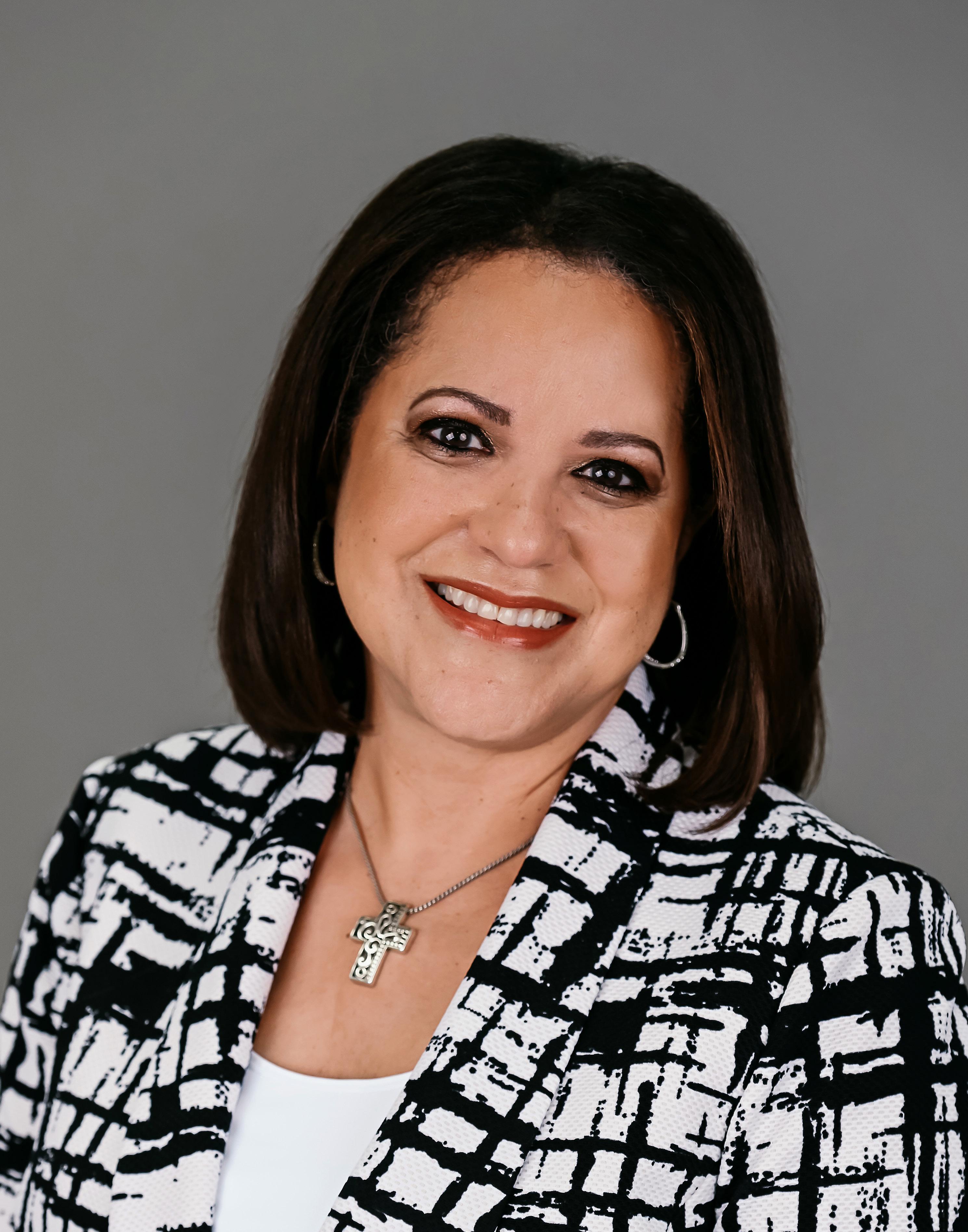 Jacqueline De Souza
VP of Treasury Lennar Corporation
Jacqueline De Souza
VP of Treasury Lennar Corporation
Since the start of Jacqueline De Souza’s tenure at leading homebuilder Lennar Corporation, the only constant in her work has been change. Fortunately, De Souza embraces the concept of continuous improvement—and she isn’t afraid to drive that change herself.
“Our company has a poem called ‘Scratchings From the Little Red Hen,’ which teaches us to move forward and seek out opportunities, rather than waiting for them to come to us. When times are tough and the worms are not on the surface, you have to go digging for them,” says De Souza. “We’re always looking for better and more efficient ways to do things.”
As Lennar’s vice president of treasury, De Souza has sought to increase efficiency without sacrificing the controls necessary to protect the company’s assets from fraud and other threats. Furthermore, she has struck a careful balance between introducing new technologies and leading the change process in a way that brings senior executives, external partners, and her teams in treasury
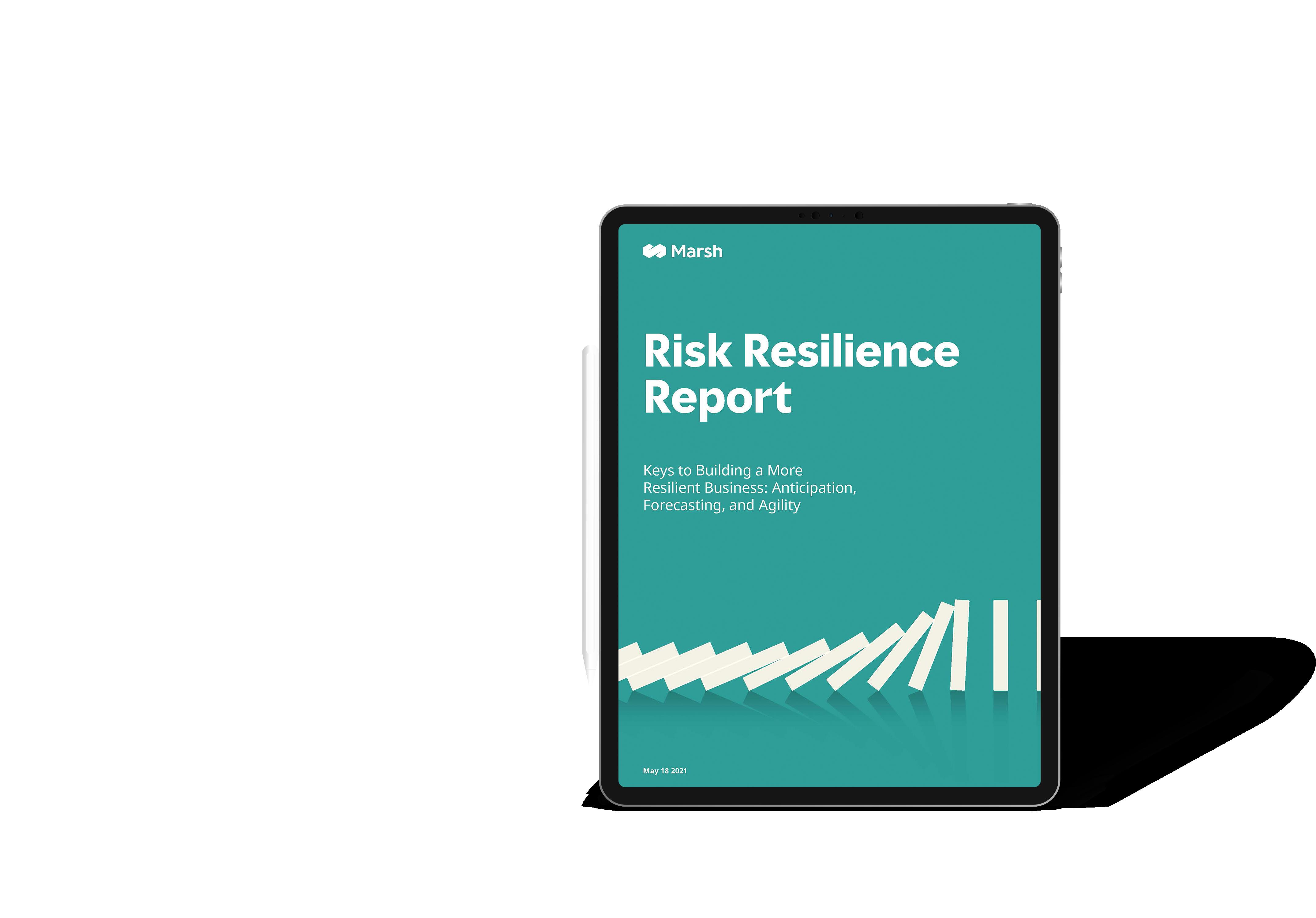
management and accounts payable (AP) on board for the transformation. Her leadership style also manifests in her emphasis—shared with Lennar itself—on team member training and career development.
After moving to the United States from Jamaica to obtain her MBA, De Souza honed her leadership skills and finance expertise at transportation and logistics company Ryder System, Inc. When Lennar approached her in early 2007 about joining the company as assistant treasurer, she saw the role as an opportunity to test her knowledge in a space where everyone was open to new ideas.
By 2008, De Souza had capitalized on that openness by rolling out a treasury management platform that consolidated all banking relationships under a single umbrella. She then moved to grow Lennar’s corporate card and purchasing card programs before adding a virtual card program in 2011.
Meanwhile, De Souza rose to the challenge of managing AP for the first time. AP is primarily about controls—paying the right vendor the right amount at the right time. She made fraud prevention a priority, with such success that Lennar has lost less than ten thousand dollars to wire fraud under her watch. “We independently validate any wiring instructions that are sent to us if we’ve never wired to that party before,” she says. “And no one person has the ability to send money out the door. One associate can enter and initiate a wire, but it takes another associate to approve and release it.”
De Souza considers technology a critical tool for increasing security and efficiency alike. In 2012, she implemented an ACH vendor payment program to bolster Lennar’s arsenal of electronic payment options. To ease the transition to digital, she launched a “Go Green” campaign in tandem with the shift to outline its upsides.

“In order for an initiative to be successful, you have to build partnerships with those who the initiative is going to touch. The success really depends on getting your different partners to understand how they are going to benefit and how their customers are going to benefit,” she explains.
De Souza has applied the same philosophy to her more recent projects, which include outsourcing check printing to one of
“In order for an initiative to be successful, you have to build partnerships with those who the initiative is going to touch.”
JACQUELINE DE SOUZA
Lennar’s banking partners amid the COVID19 pandemic. “We were able to make things more efficient for my team, all while making things more efficient for the company by having a disaster recovery plan inherent in the project,” she confirms.
COVID likewise prompted De Souza to rethink the deposit process for home buyers. “At the start of COVID, we rolled out a portal to collect deposits on our homes electronically,” she elaborates. “Our home buyers were able not only to look at virtual tours but also make their deposits online.”
Underlying Lennar’s ability to meet homebuying demand is the company’s ability to build homes in the first place—a process in which surety broker and longtime Lennar partner Marsh McLennan plays an invaluable part. “Many municipalities require us to post a bond as collateral for our development work. Marsh helps us accomplish what we need to do by helping us secure the surety lines necessary to post those bonds,” says De Souza. “Marsh also helped educate
me and my team about the surety program in general.”
“Jacqui emphasizes partnership, not only with her surety companies but also her broker,” says Sharon Potts, senior vice president at Marsh McLennan. “Her interactions with stakeholders are defined by a respectful and deep appreciation for the value that her partners bring to the table.”
The informal training offered by Marsh mirrors a broader commitment to education within Lennar itself. De Souza assists her team members in meeting company and career objectives by cross-training new hires and using a scorecard system to track performance. “I let associates know what is expected of them, give them the tools to accomplish those objectives, and then hold them accountable by giving both positive feedback and constructive feedback to help them continue to grow,” she says.
Among the tools available to fuel employee growth is an online management and leadership development program
offered through a partnership with Harvard Business School Publishing. Lennar offers its own program as well—Lennar Success University—through which employees can self-enroll in courses and complete them at their own pace. “Lennar is very big on training,” De Souza emphasizes, “and they’ve made it very easy for us to access because everything’s online.”
As a firm believer in continuous improvement, De Souza plans to keep the change coming in the future. “We’re always working to understand what new technology is available to us,” she says. “Currently, we’re partnering with our IT department and an external consulting firm on a financial transformation where we’re looking to streamline all systems and functional areas. We’re reviewing all of our processes, even if they’re electronic, and making sure that they’re as efficient as possible.”
Fourteen years after she first came to Lennar, De Souza hasn’t stopped digging for worms.
“I let associates know what is expected of them, give them the tools to accomplish those objectives, and then hold them accountable by giving both positive feedback and constructive feedback to help them continue to grow.”
JACQUELINE DE SOUZA
In the middle of a global pandemic, Novartis VP Virginia Lazala is shifting corporate culture to make sure employees care not only for cancer patients but also themselves
By ZACH BALIVA Virginia Lazala
VP and Legal Head of Latin America Canada Region
Legal Head of Oncology Global People & Organizations Novartis
Virginia Lazala
VP and Legal Head of Latin America Canada Region
Legal Head of Oncology Global People & Organizations Novartis
Few people know and understand the Novartis culture better than Virginia Lazala. The dynamic leader has developed a reputation for solving problems and driving growth. Time spent advising on strategy, managing litigation, creating training materials, and supporting human resources initiatives has given her an intimate look at all business units.
In the wake of the ongoing COVID-19 pandemic, Lazala is working behind the scenes to sustain, strengthen, and grow the culture that’s kept her at the $50 billion pharmaceutical company for more than twenty years.
Lazala, who now holds two leadership positions, can use her voice to make a difference. Not only does she lead legal strategy in Latin American and Canada (LACan), but she is also the head of legal for Novartis Oncology’s global people and organizations.
In LACan, Lazala helps her colleagues get oncology products to cancer patients in some of the most volatile parts of the world. The work matters, and Lazala is careful to remind those on her team that they are part
of a company that cares about its patients. “Oncology patients have greater access to lifesaving medicines because of what our associates do, and I like to make sure they know it,” she says.
COVID-19 has brought a measure of instability to the roles and to the overall organization, but thankfully Lazala is accustomed to working through uncertain times. Many countries in her LACan region have fluctuating economies, erratic governments, and unpredictable futures. She and her colleagues have learned how to leverage partnerships and manage complex systems to take care of patients and execute business objectives.
“If you were an inflexible person or someone who is obsessed with everything going exactly as planned, this wouldn’t be the job for you,” she says, adding that she and others at Novartis are constantly restructuring and pivoting to accelerate performance and development.
In early 2020, leaders at Novartis monitored developments as known cases of COVID-19 spread across the world. While Lazala was concerned about the impact it would have on her team, her mind went
“We may never go back to where we were before the pandemic, and that means that we need to change our culture to be something new without totally giving up who we are.”
VIRGINIA LAZALA
to densely populated and underdeveloped countries in parts of LACan.

“We knew our region would be hit hard, and we knew we would have to fastforward our response. Business had to go on as we moved to a fully remote culture,” she says. Lazala’s prediction came true. As the outbreak got worse, many individuals in LACan had limited access to the vaccine as their governments failed to order sufficient doses.
Early on, Lazala realized the ordeal could impact the teams and culture at Novartis. She also realized she had the unique opportunity to help people not only survive but also thrive. “We may never go back to where we were before the pandemic, and that means that we need to change our culture to be something new without totally giving up who we are,” she says.
For Lazala, that starts with communication and self-care. She asked her direct reports not to hold themselves to the same standard that was once appropriate. She encouraged everyone to prioritize their families and set boundaries. She told employees not to apologize if a screaming child interrupts a digital meeting.
While these measures may seem like simple steps, Lazala believes they are especially important at a company like Novartis. “The people I work with are top performers
who come here because they are the best in their field,” she says. “That usually means they’re competitive, driven people who want to work hard at all times.”
People at Novartis are trained to prioritize the needs of the patient, and while that is still of critical importance, Lazala is giving them permission to prioritize their own needs too.
It’s been almost two years since the pandemic interrupted life and business, and Lazala has noticed something interesting— all the work is still getting done. She may occasionally hear a dog bark in a MSTeams meeting or have to wait for a spotty Wi-Fi signal to return, but her teams are performing as well as they ever have before.
She thinks that’s because everyone on her team has permission to be a less than perfect version of who they were in a pre-pandemic world. “Empathy and understanding have a calming effect,” she says. “Maybe we were actually doing too much before.”
As the Delta variant and other factors delay a full recovery in 2021, leaders at Novartis are rethinking how customers want to engage in a new world that might not be as conducive to a traditional sales model where reps call on doctors in person.
Lazala admits that she doesn’t know exactly what lies ahead, but she knows one thing—her team is strong, energized, and ready to move forward together.
“Empathy and understanding have a calming effect. Maybe we were actually doing too much before.”
VIRGINIA LAZALA
We proudly support our friend and colleague Virginia Lazala on her accomplishments and leadership at Novartis Pharmaceuticals Corporation
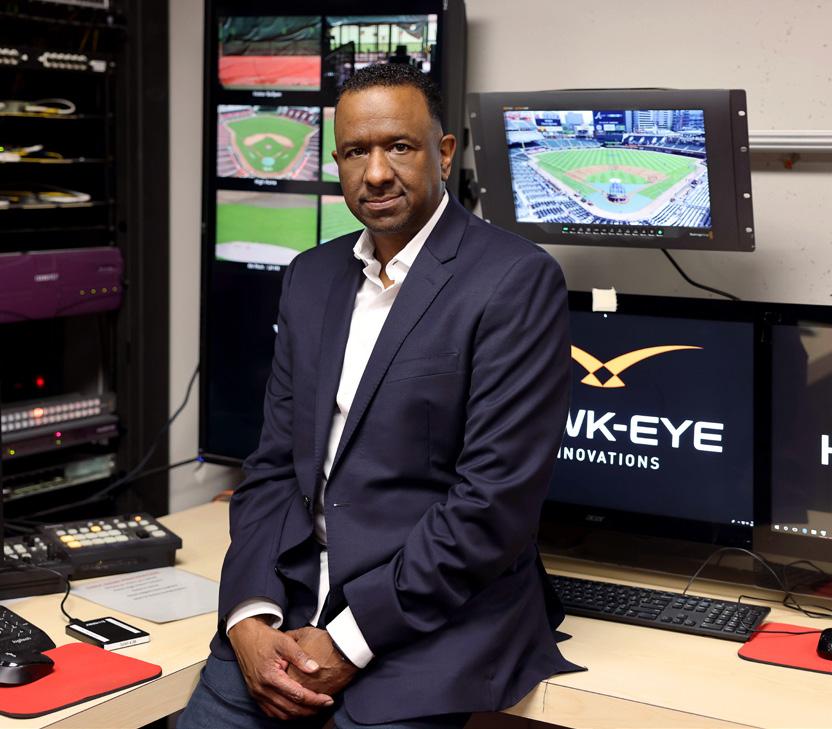
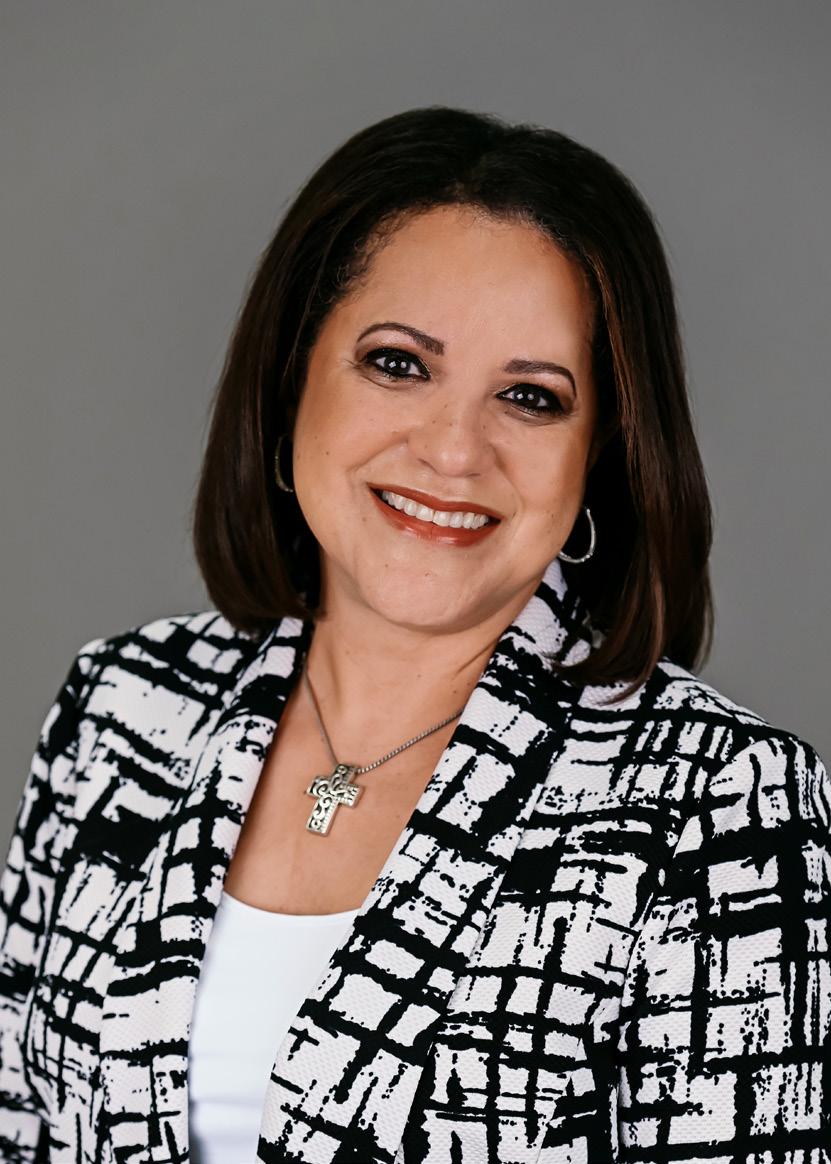
In October 2021, McKinsey & Company released new research showing the evolution of the CFO role and the importance of finance leaders reasserting themselves as strategic partners and digital enablers. How many of these ring true for your organization?
Greater
CFOs

